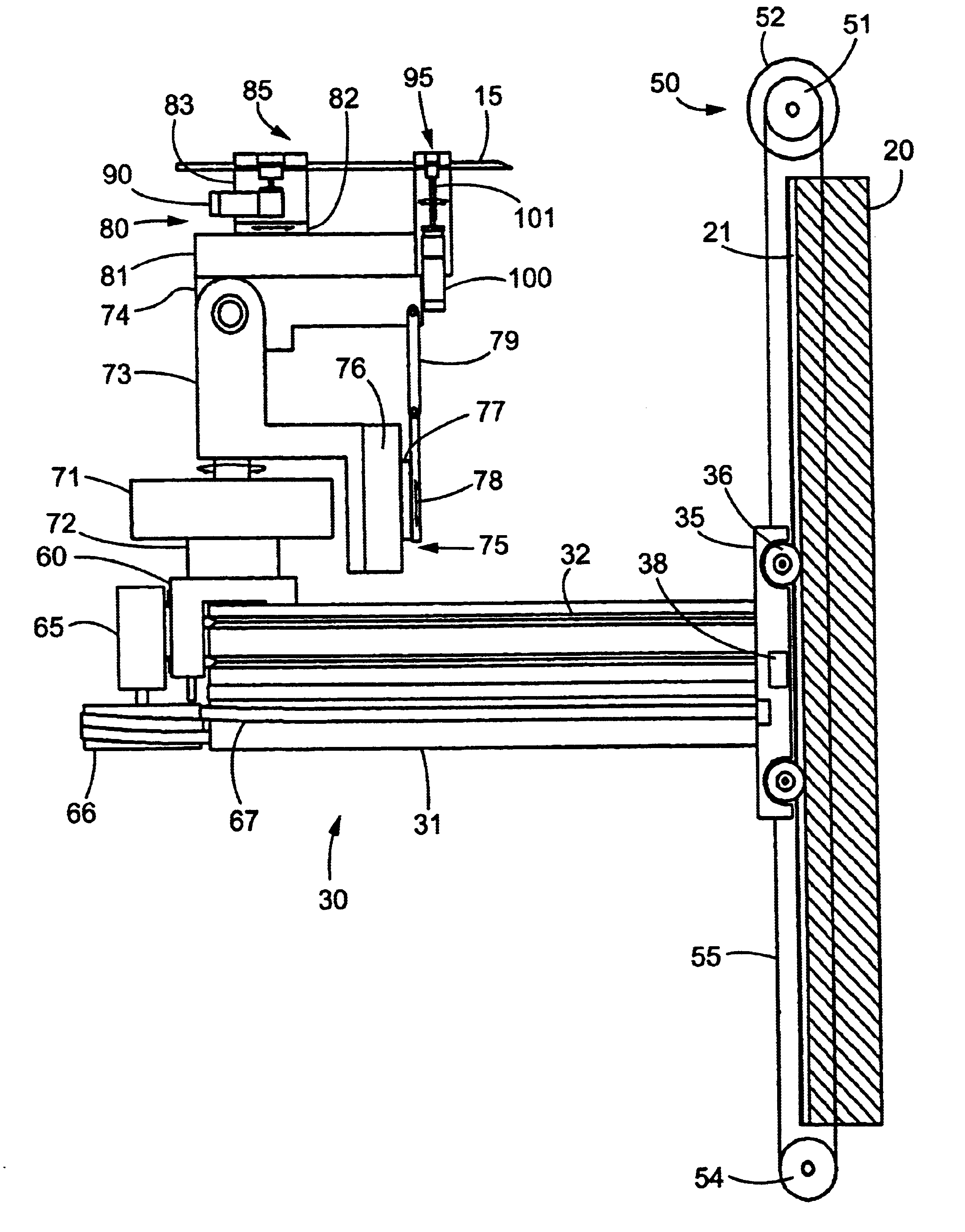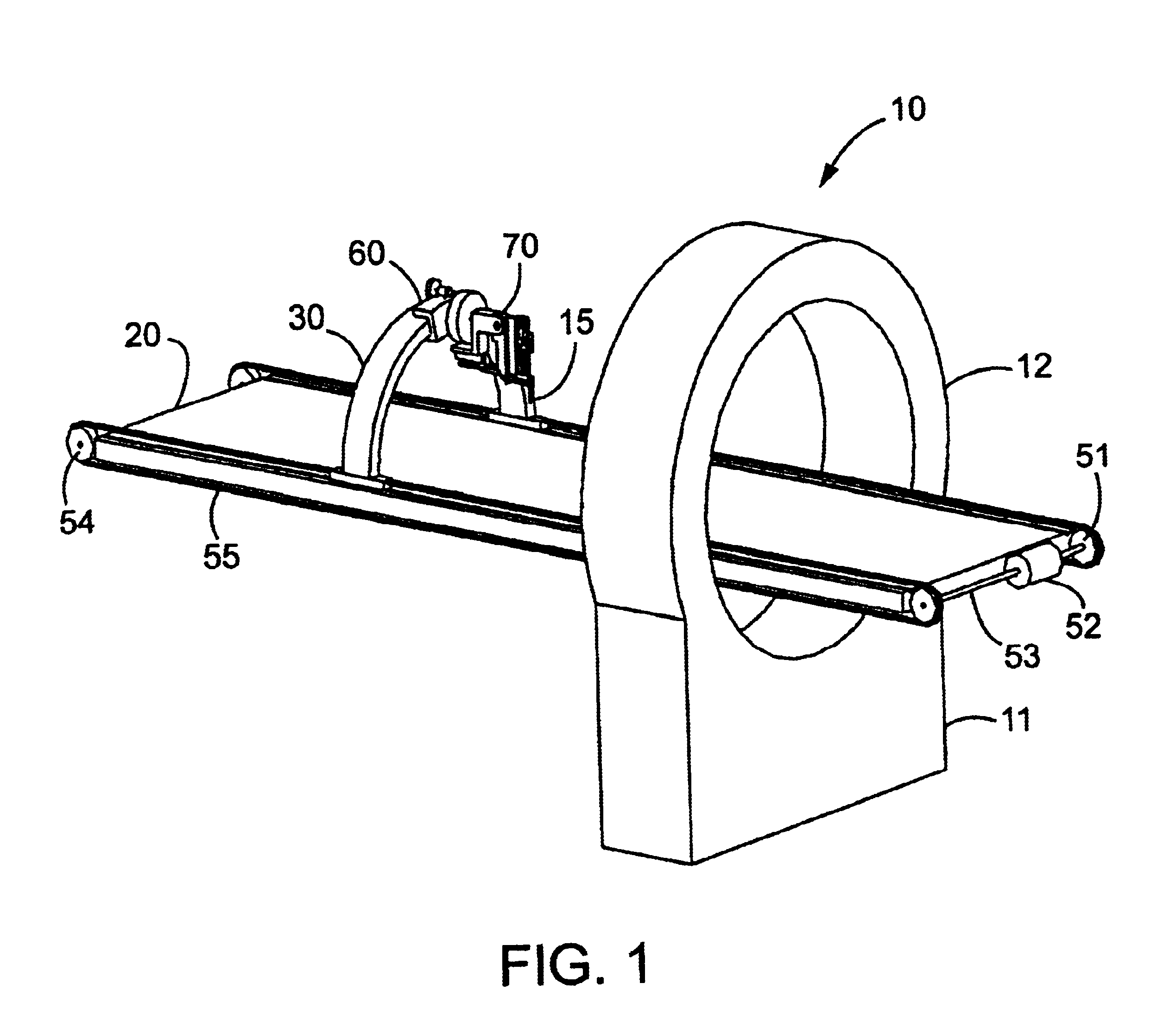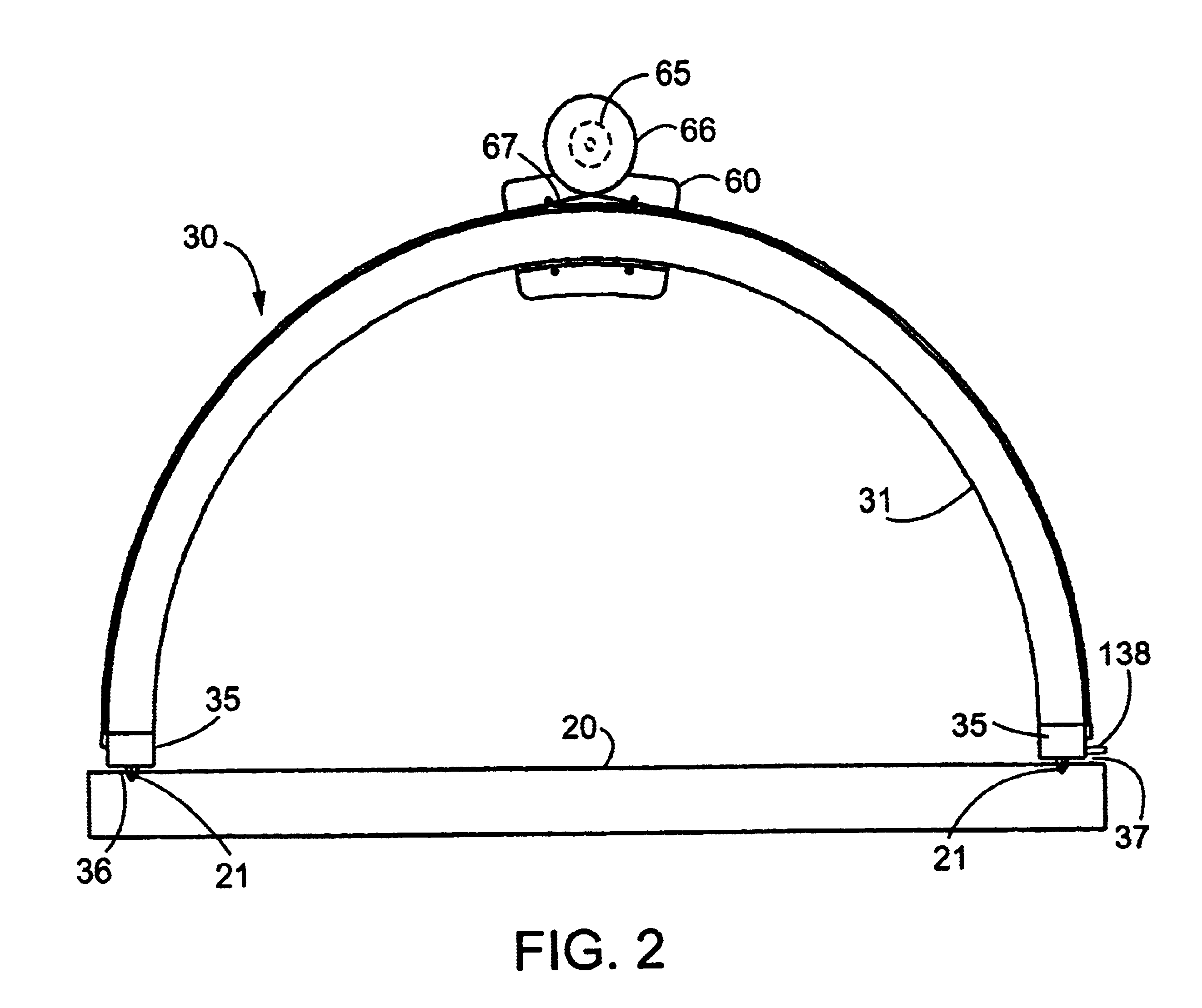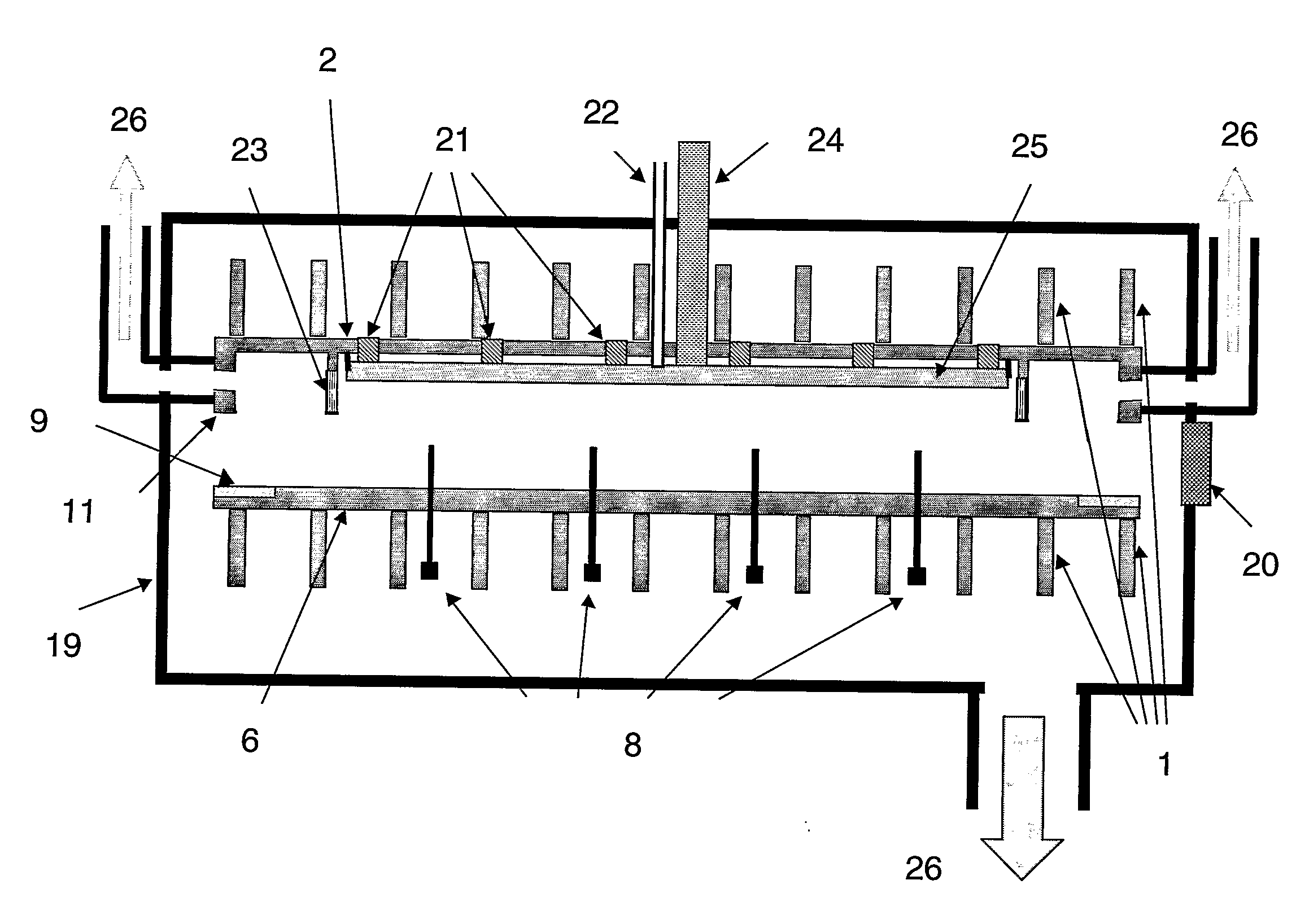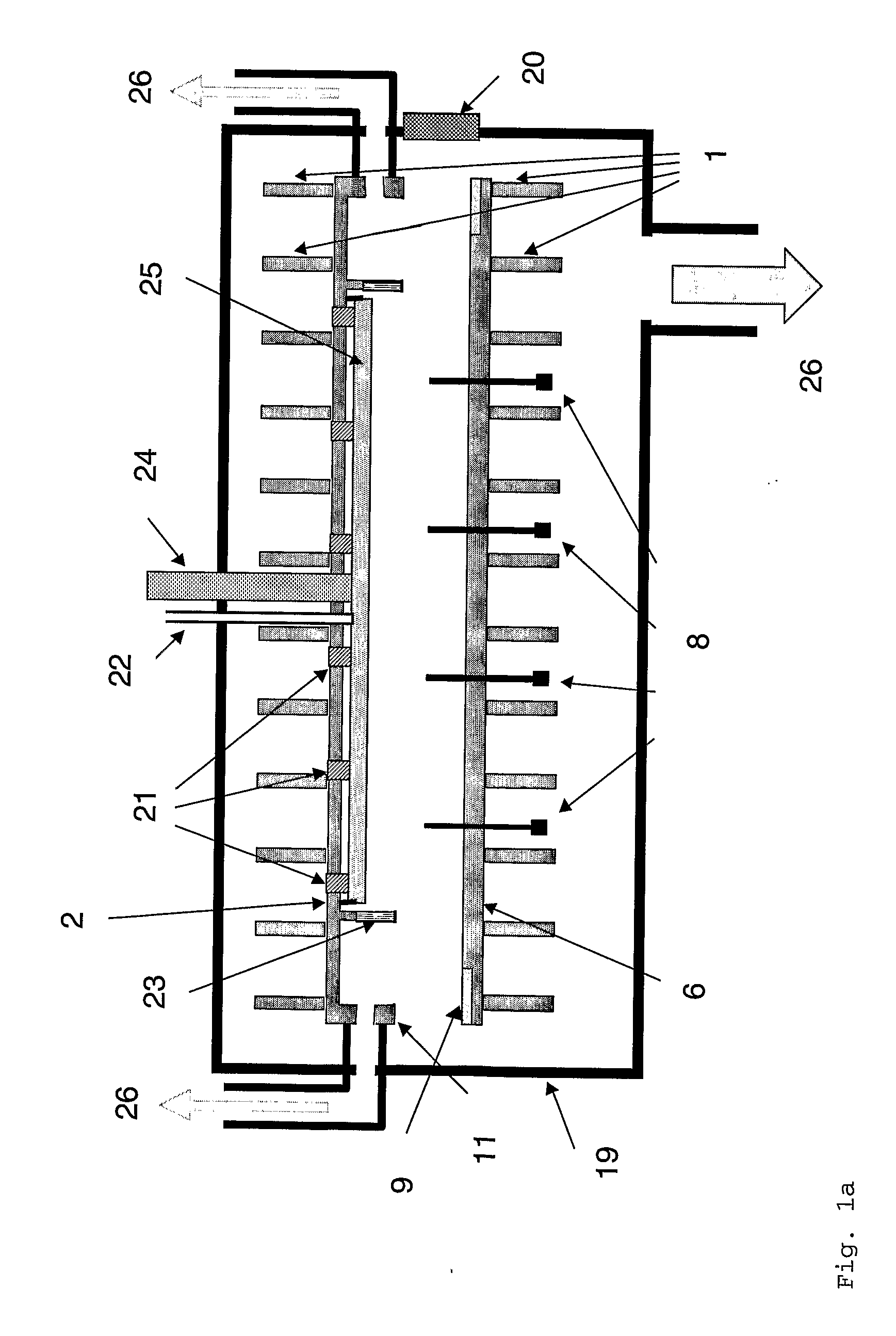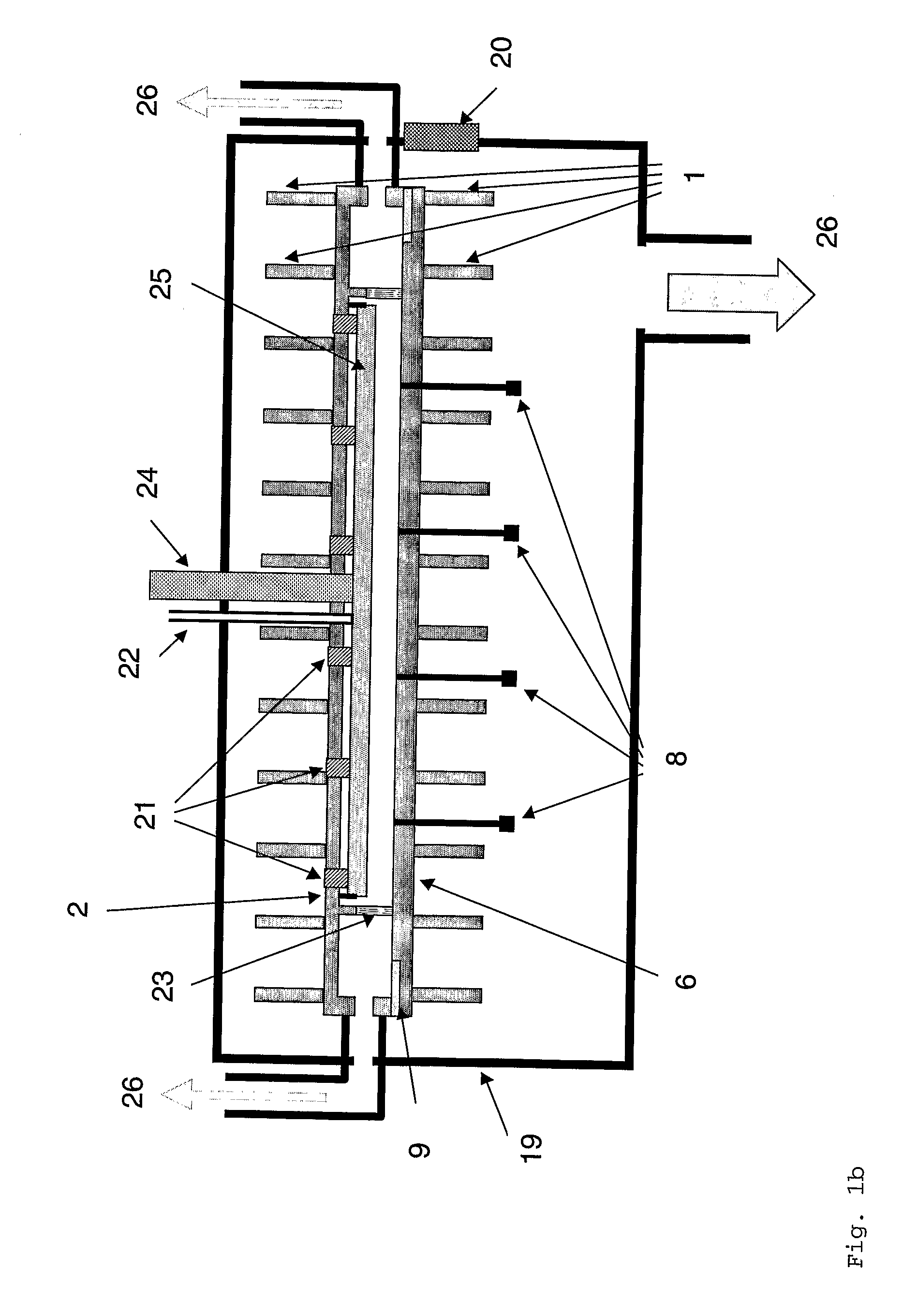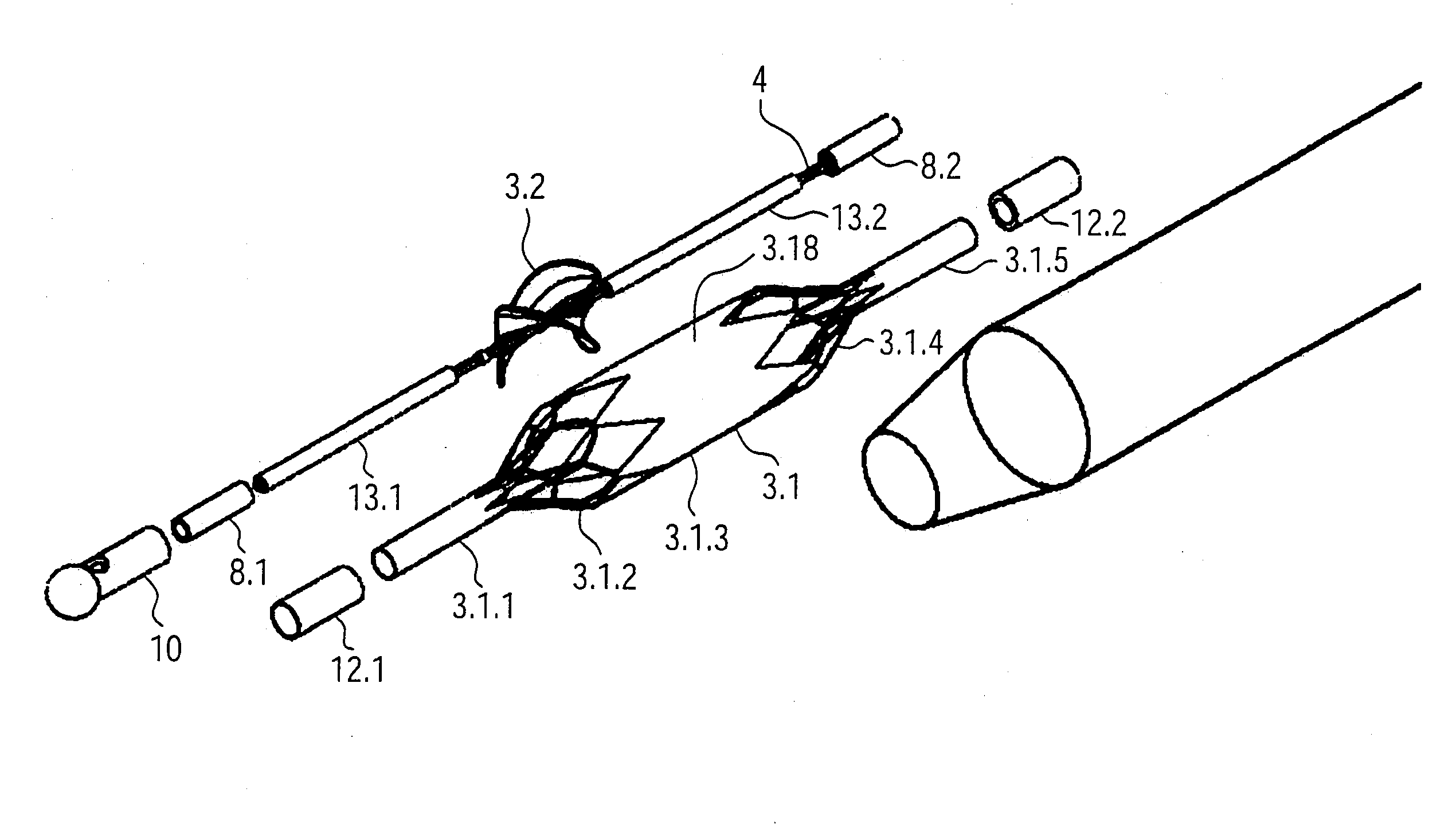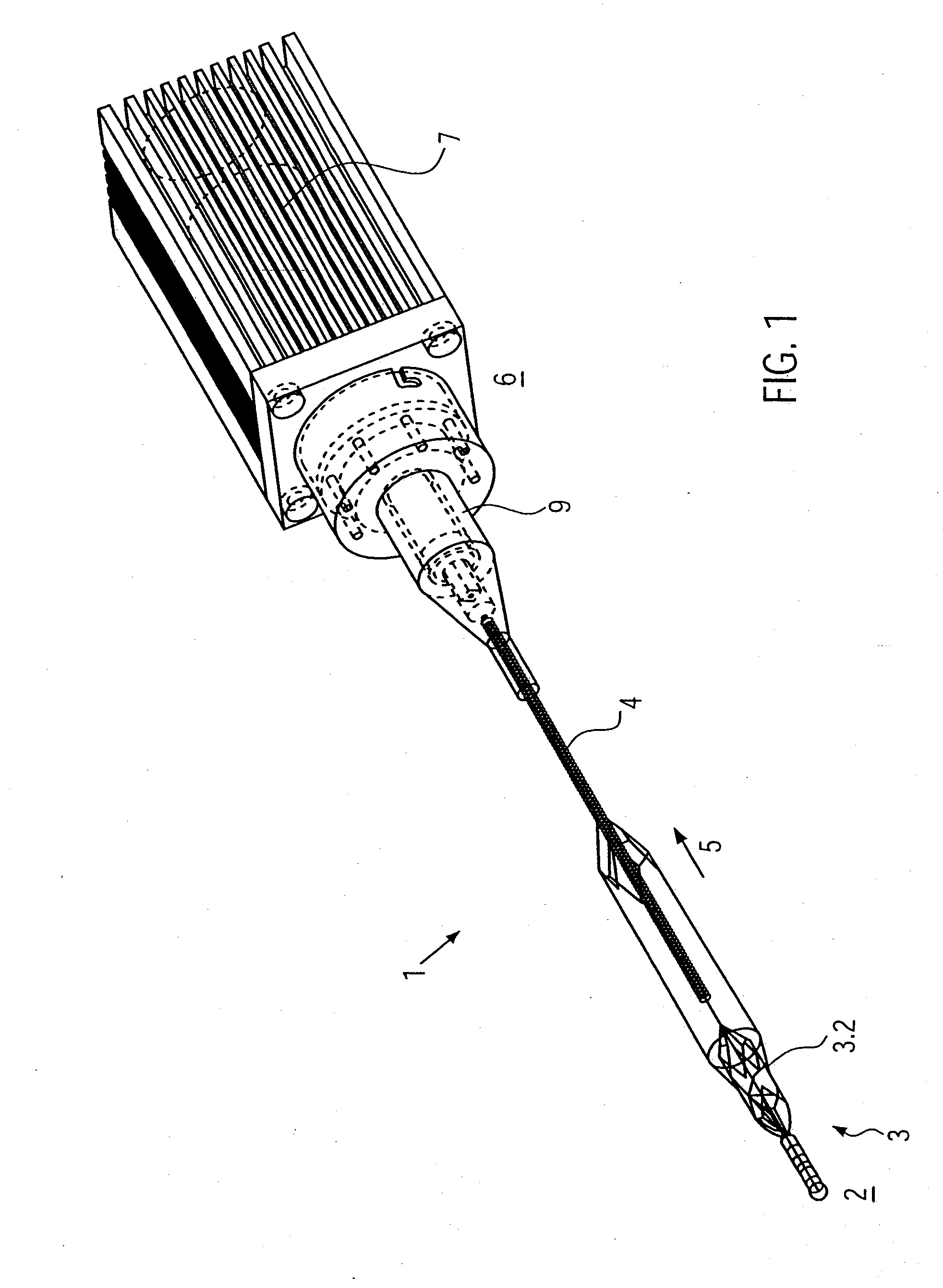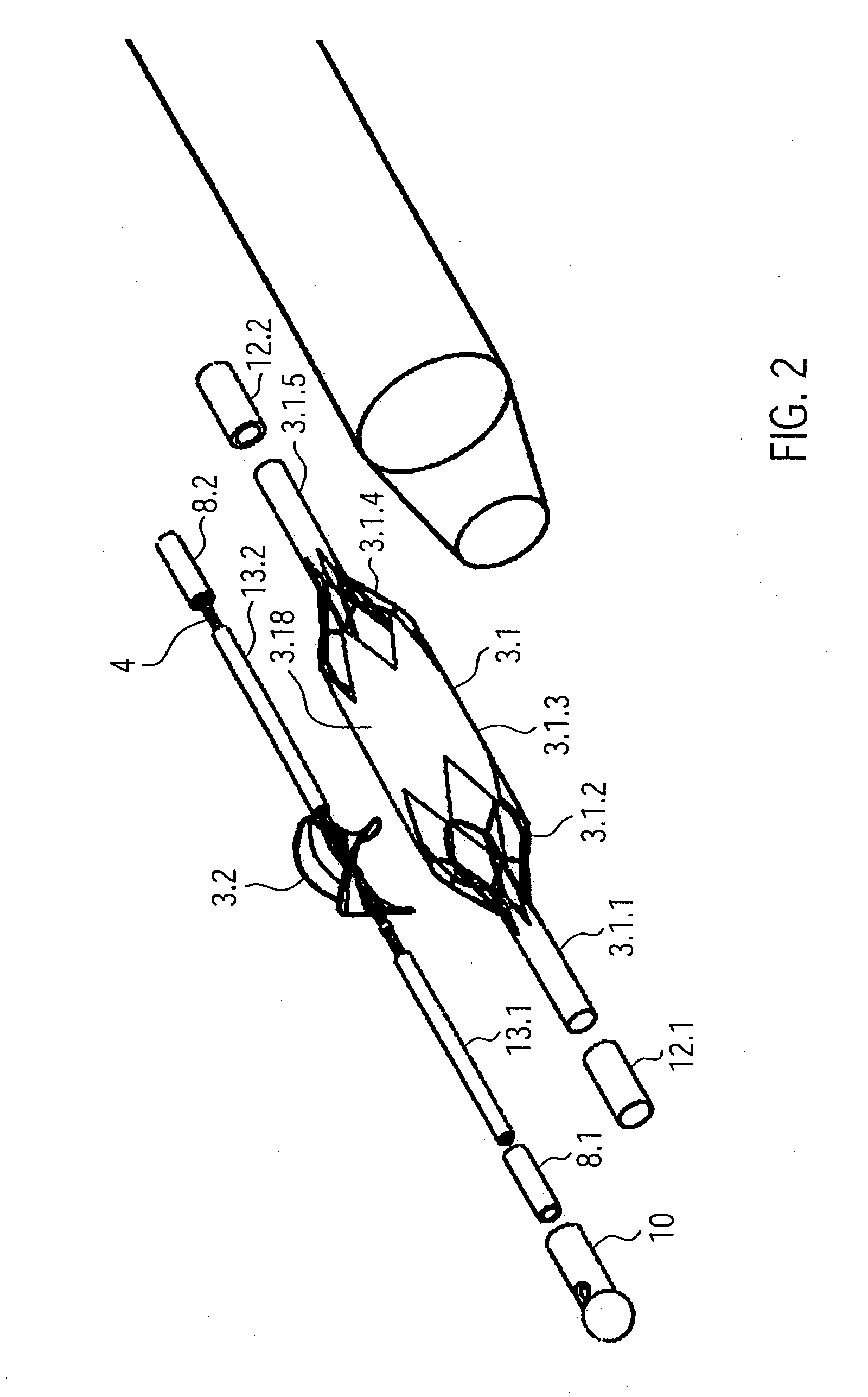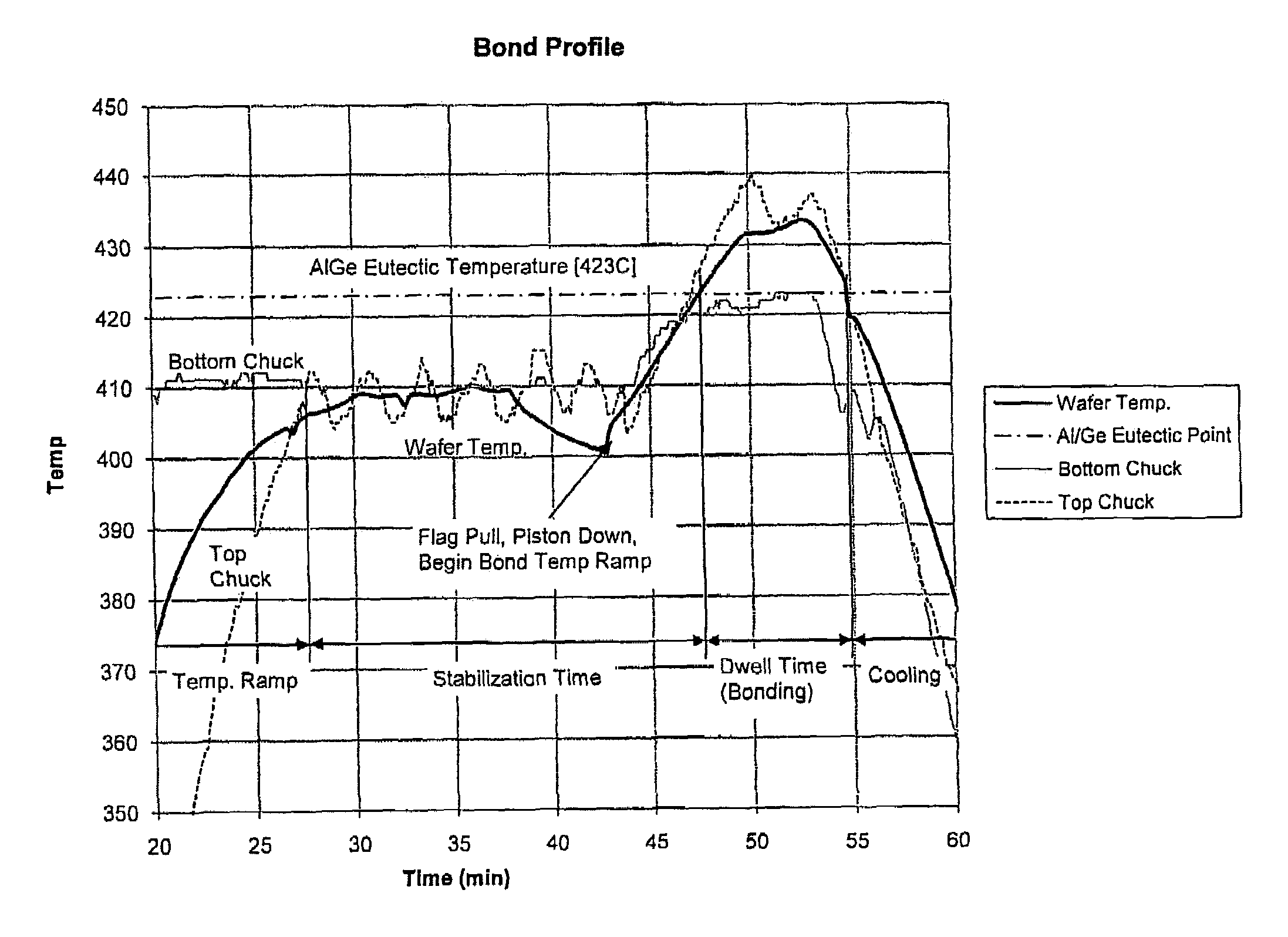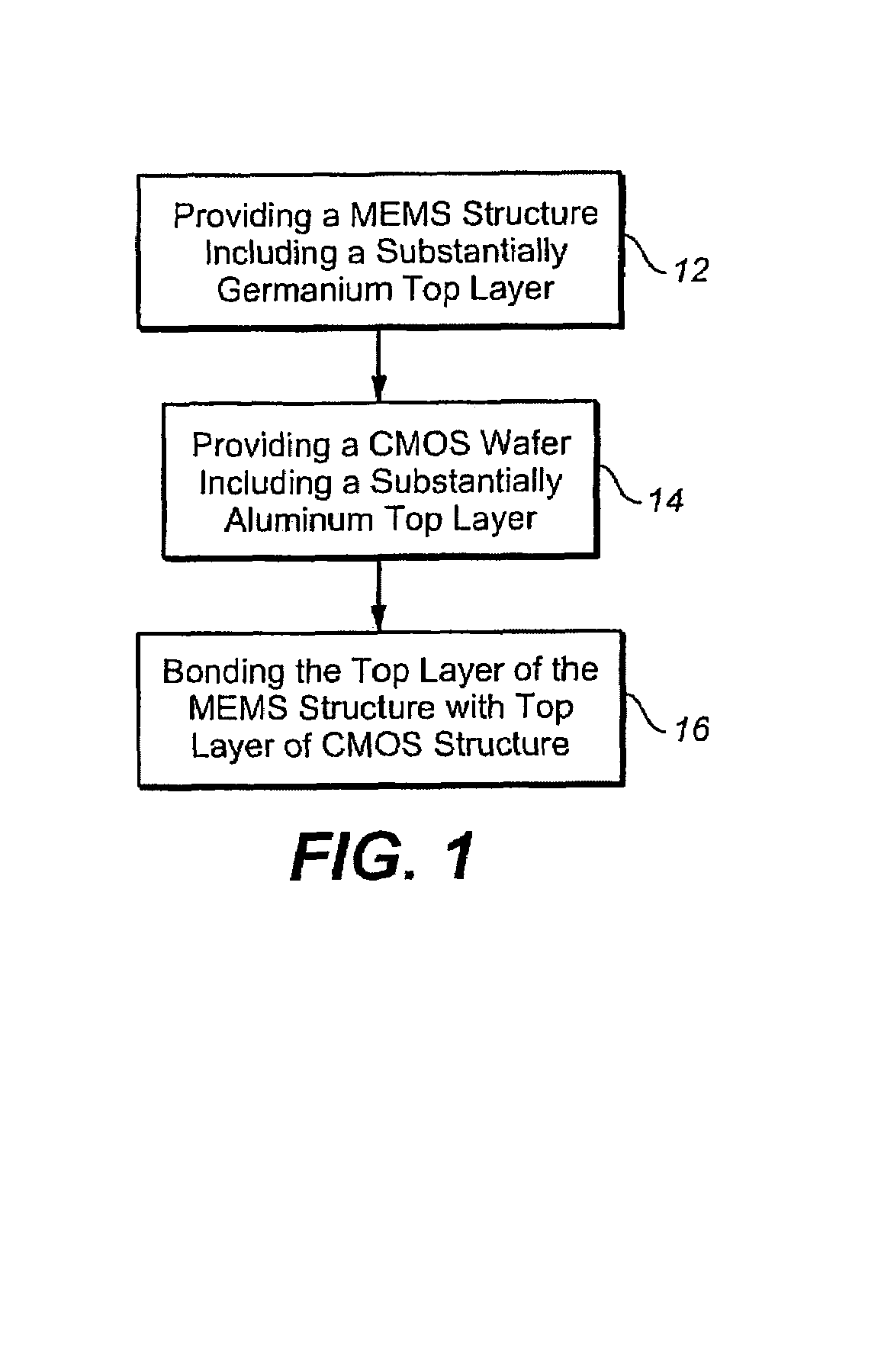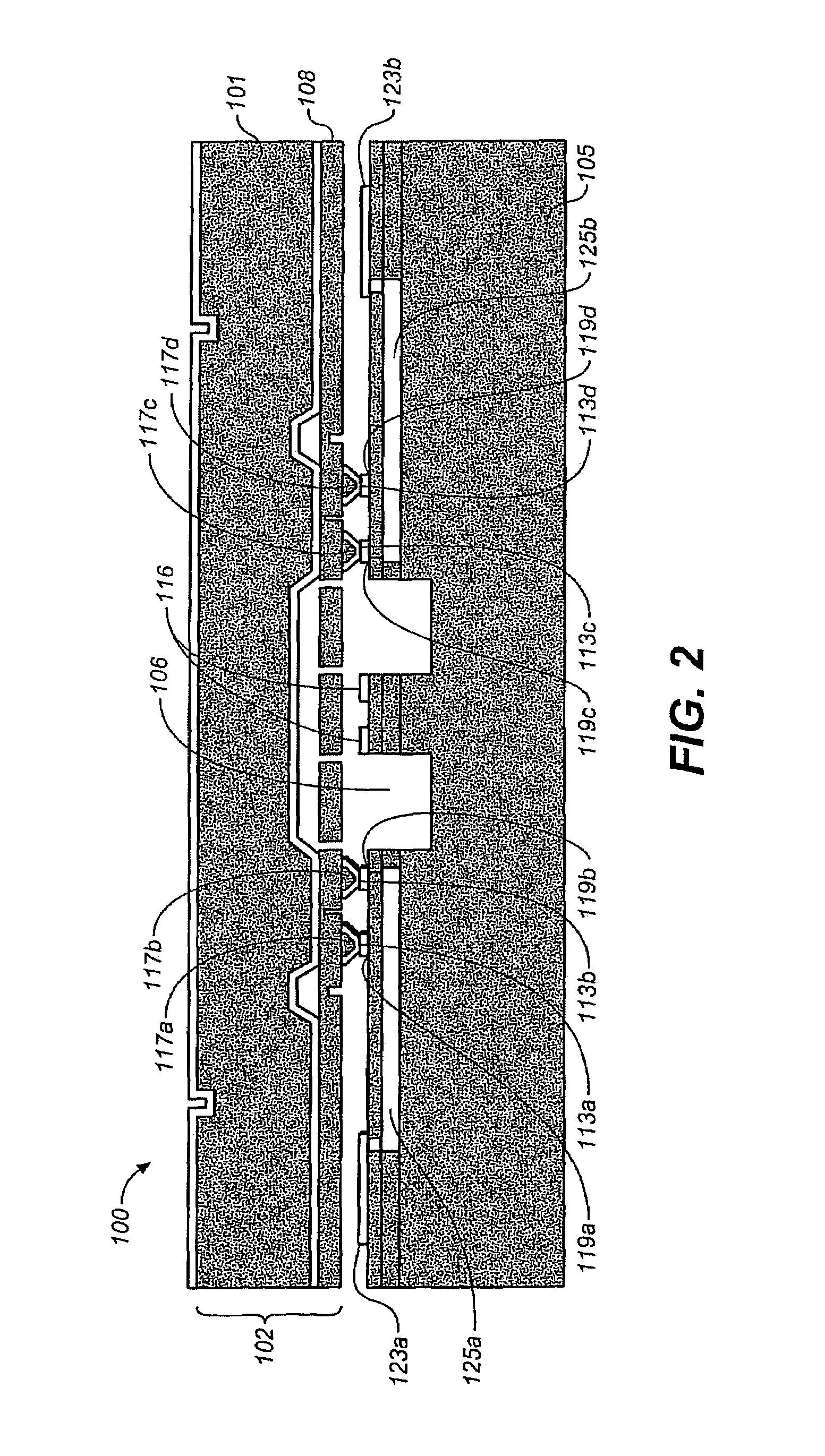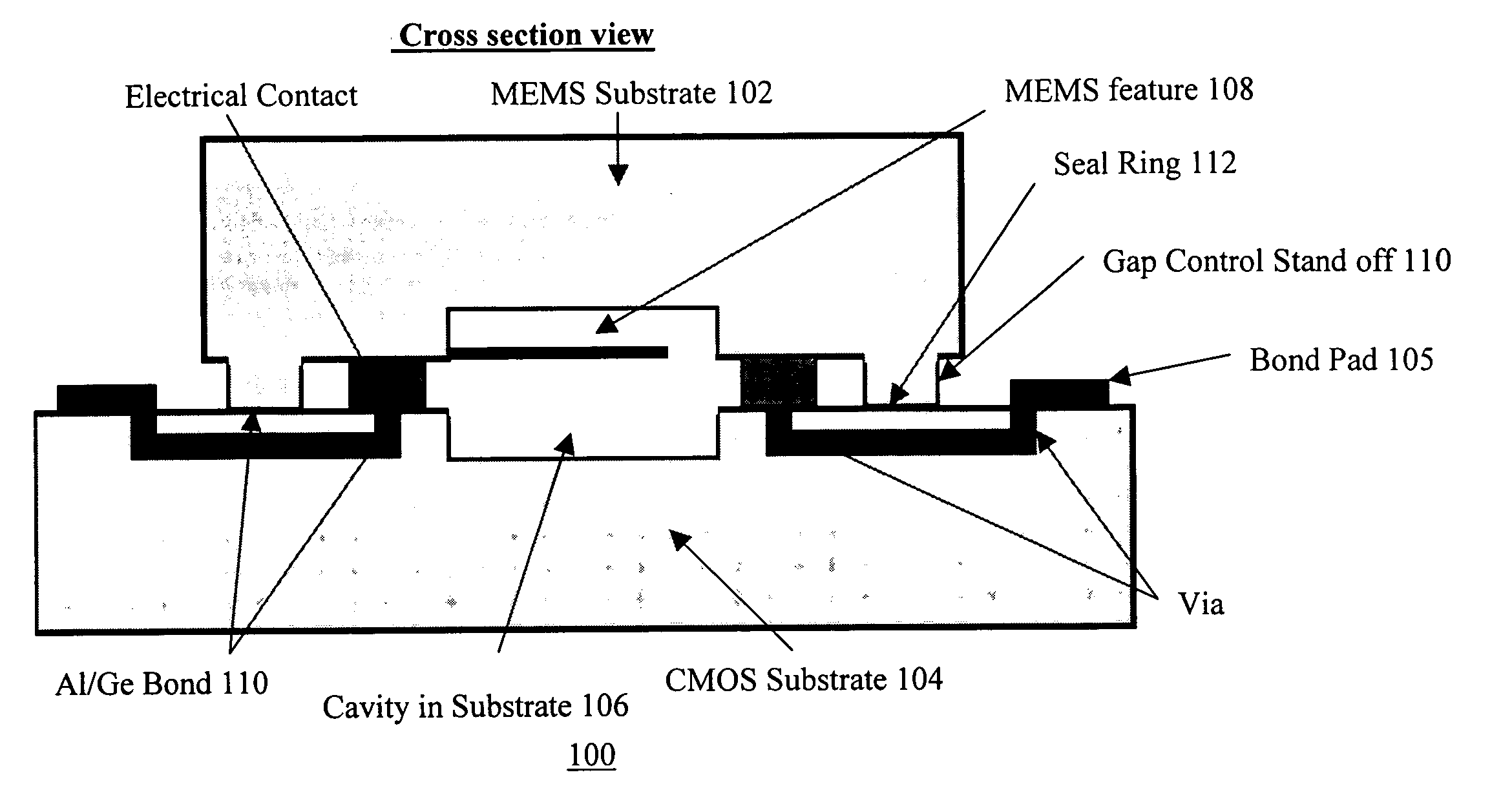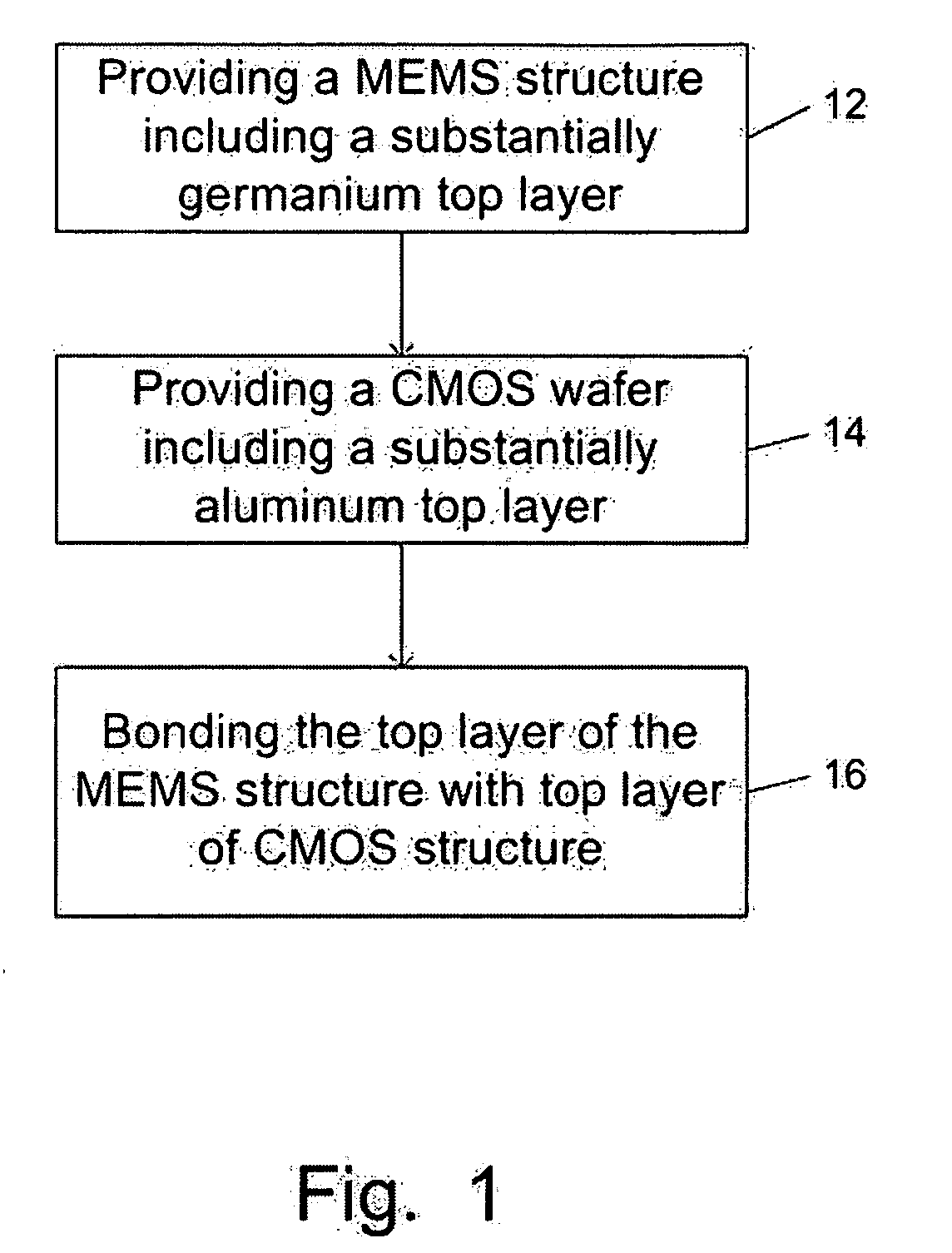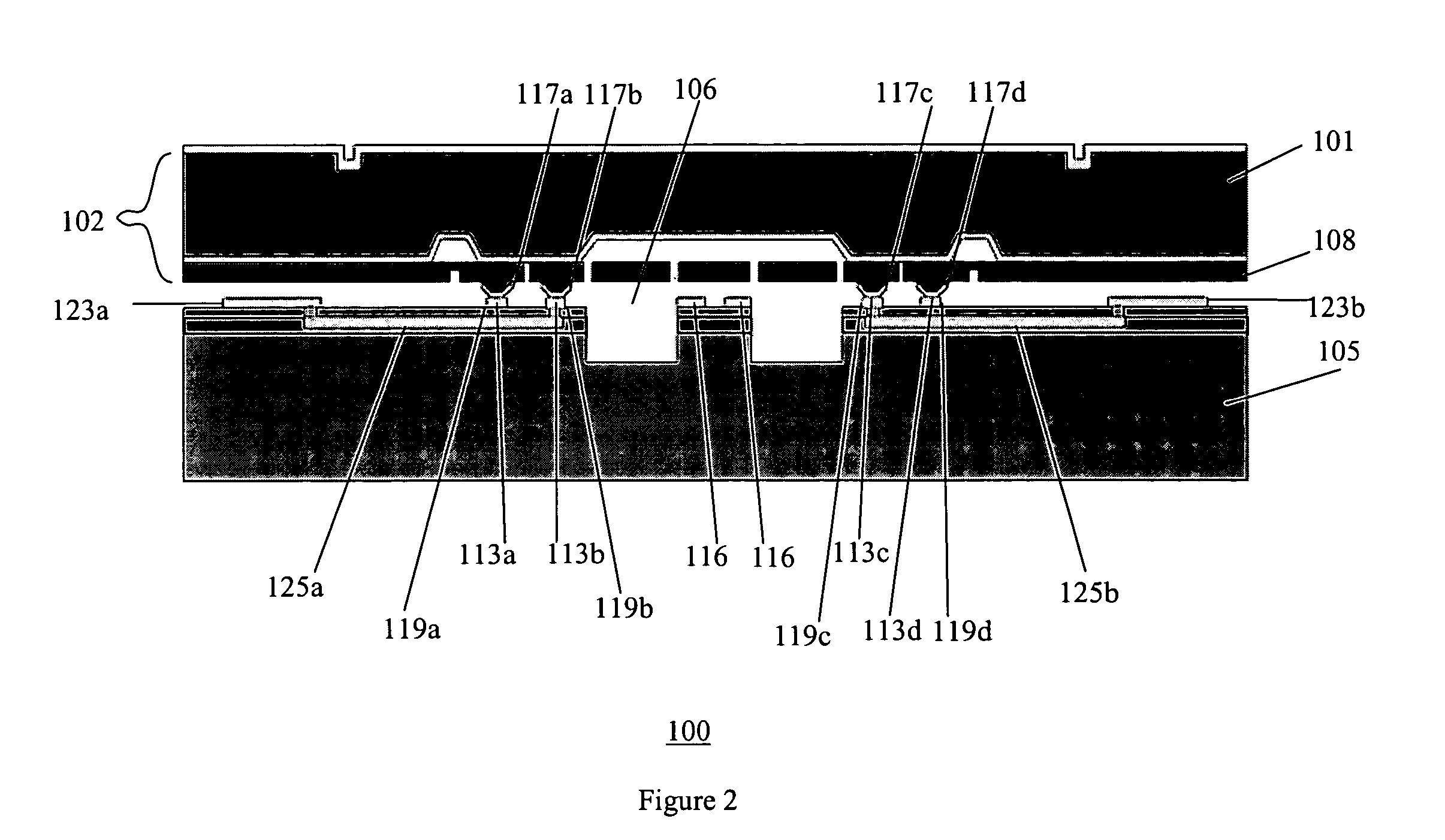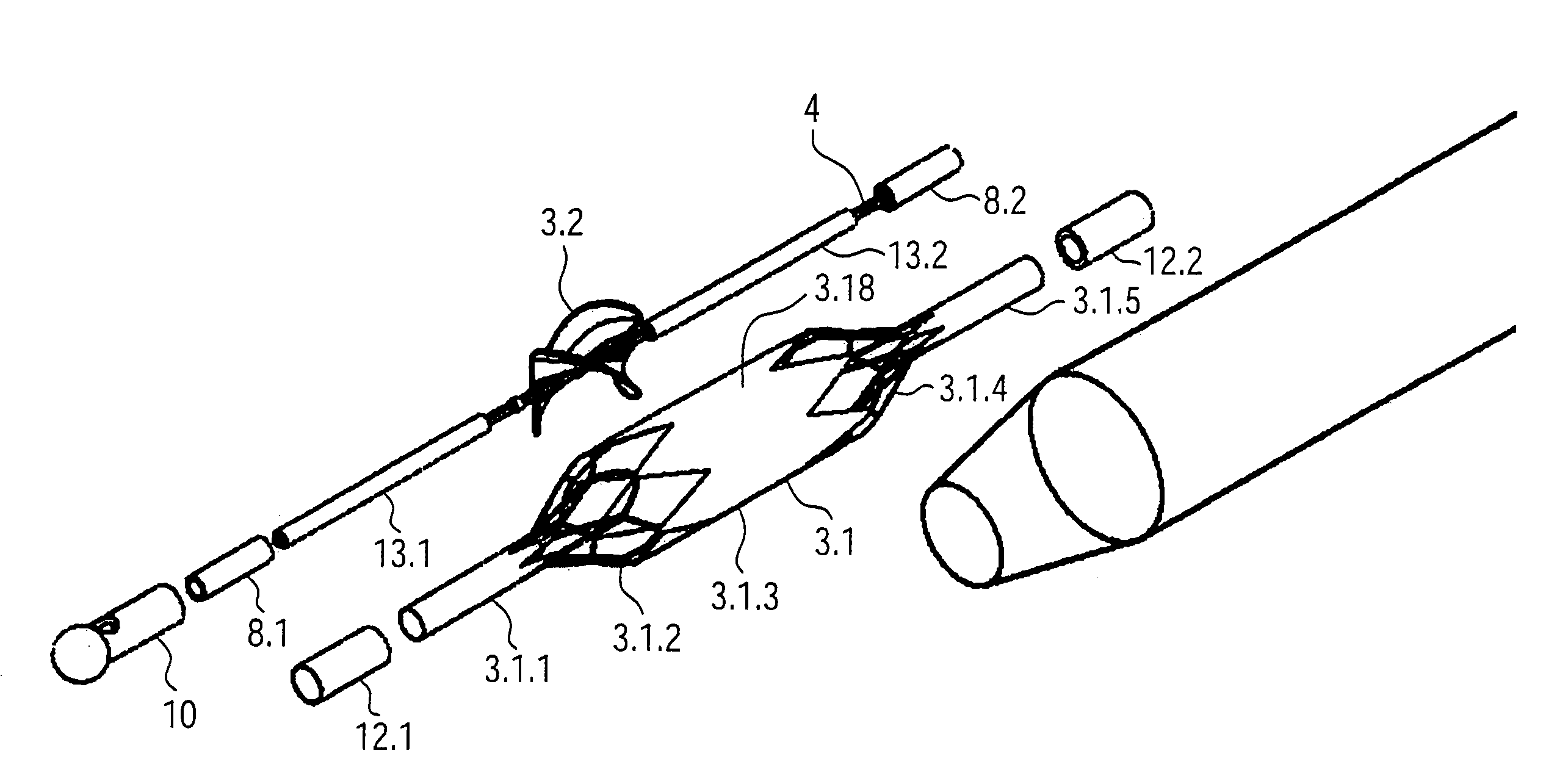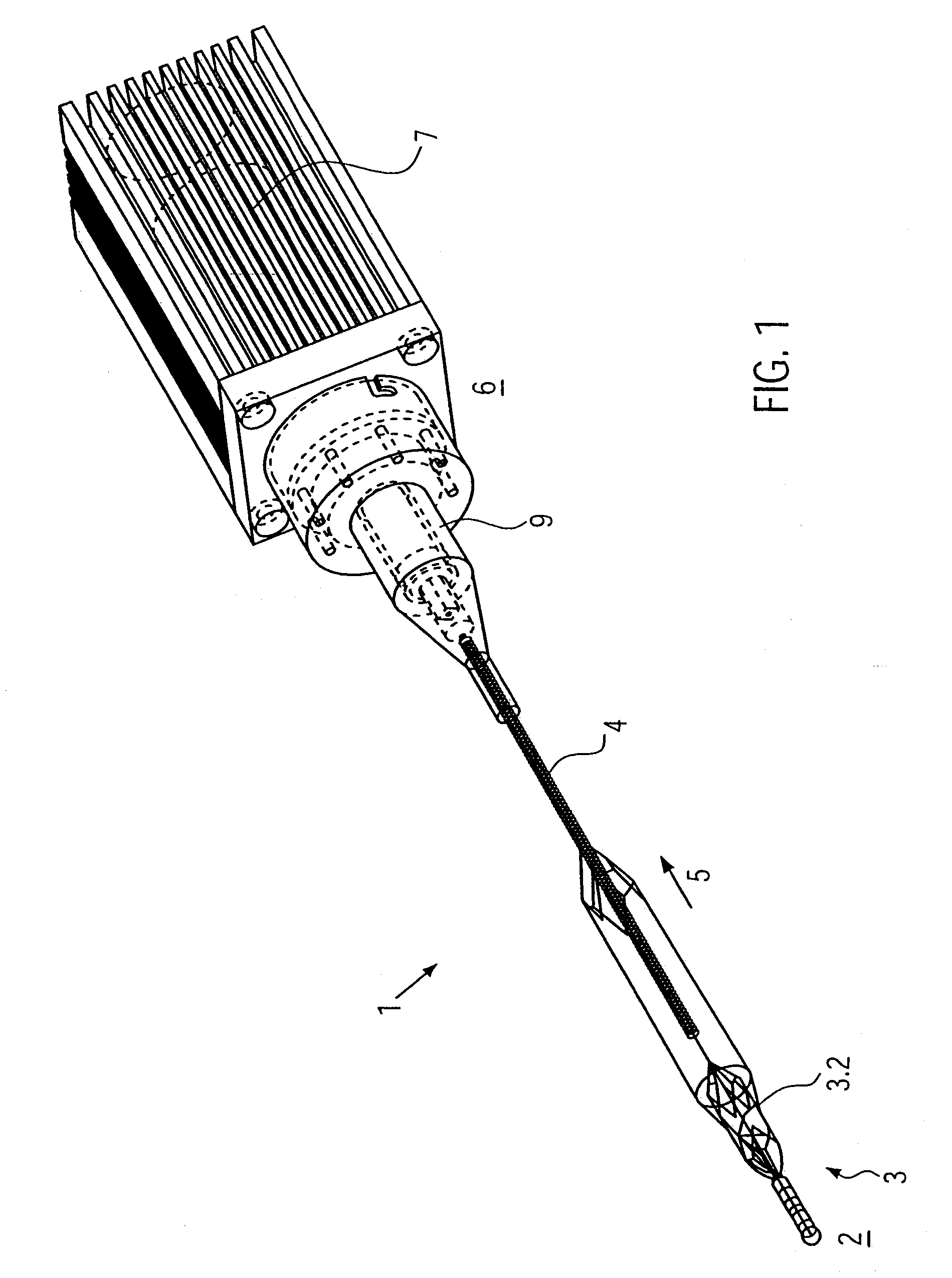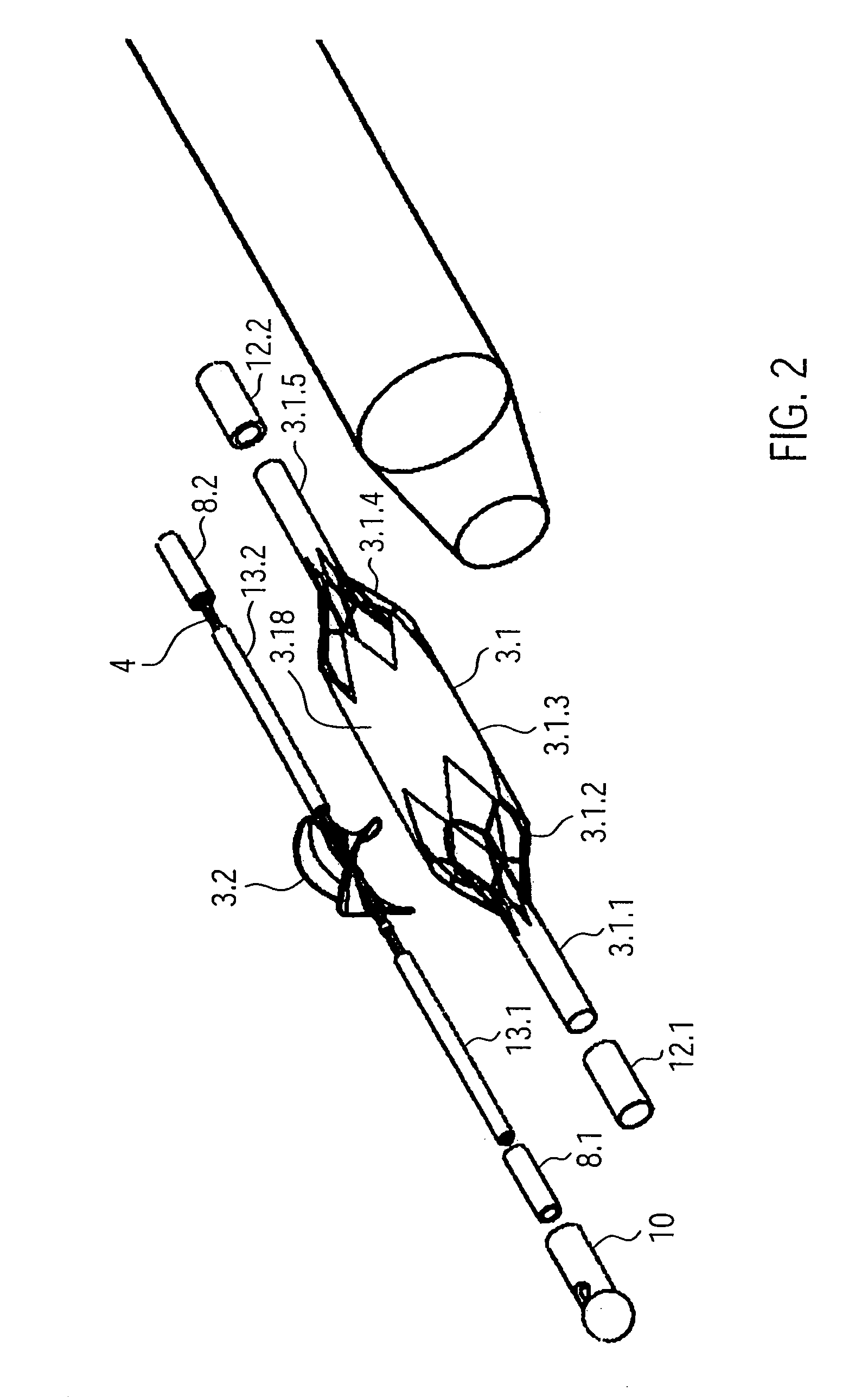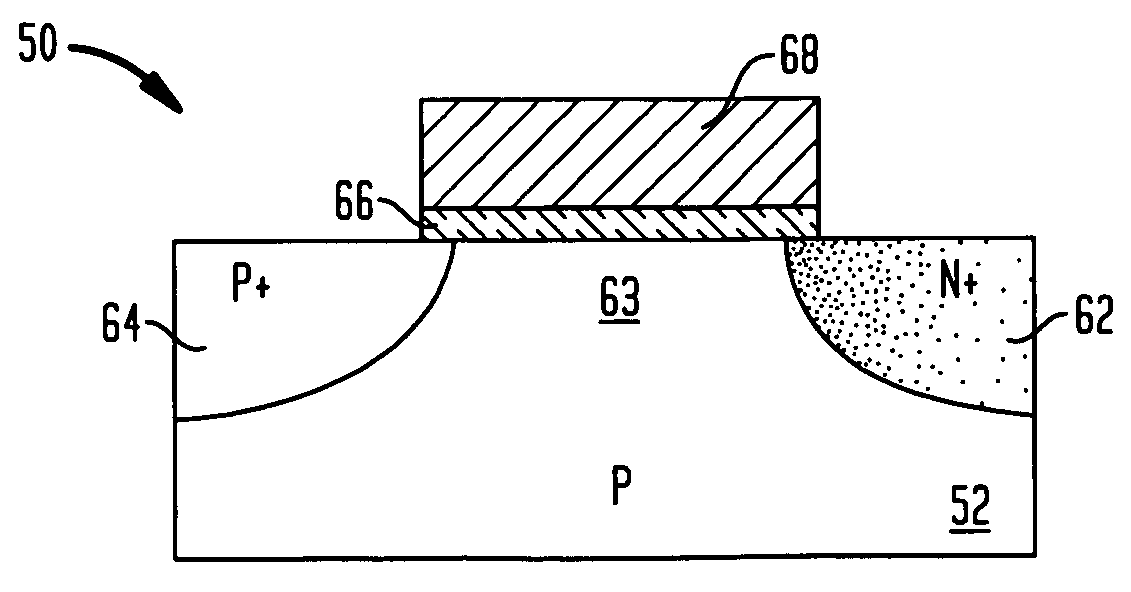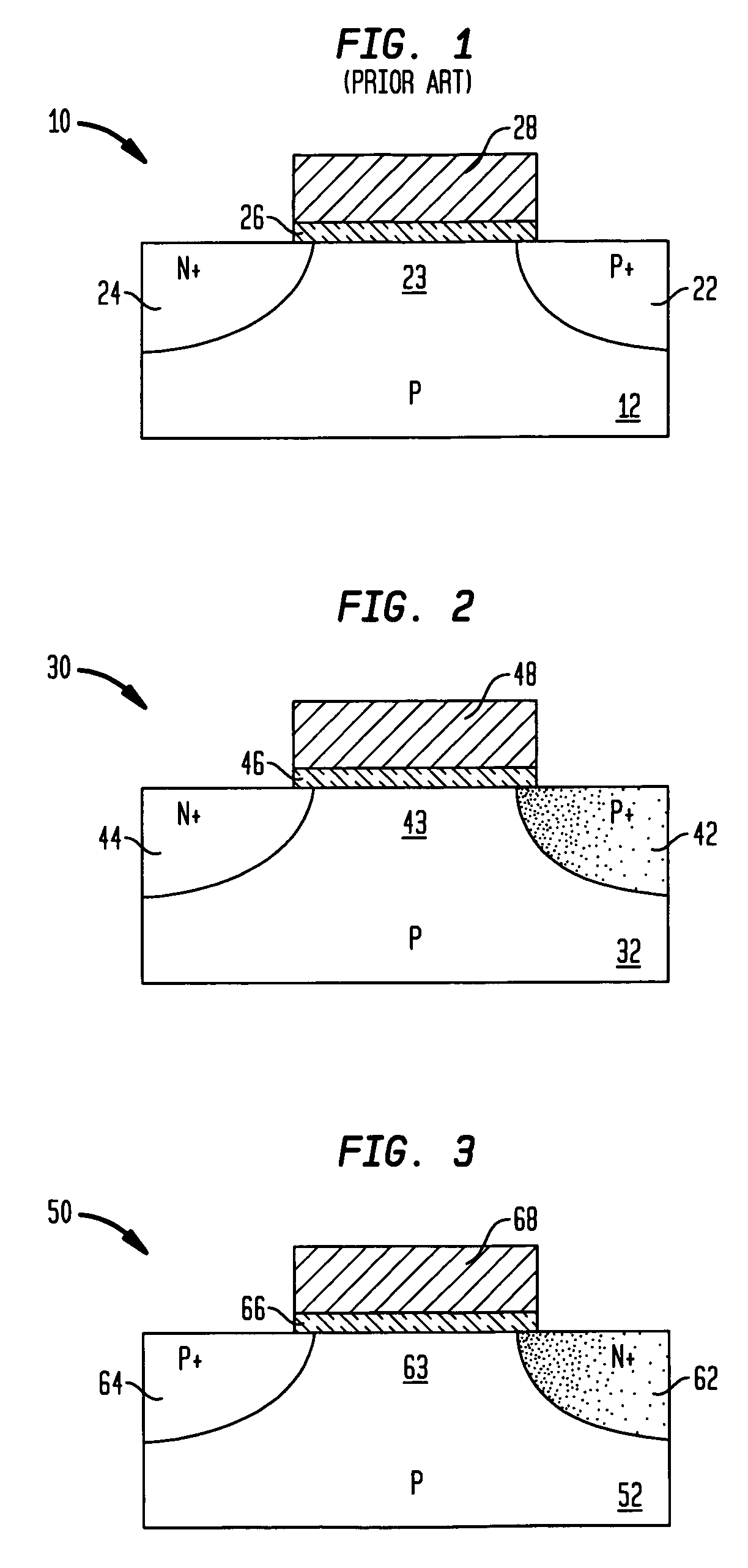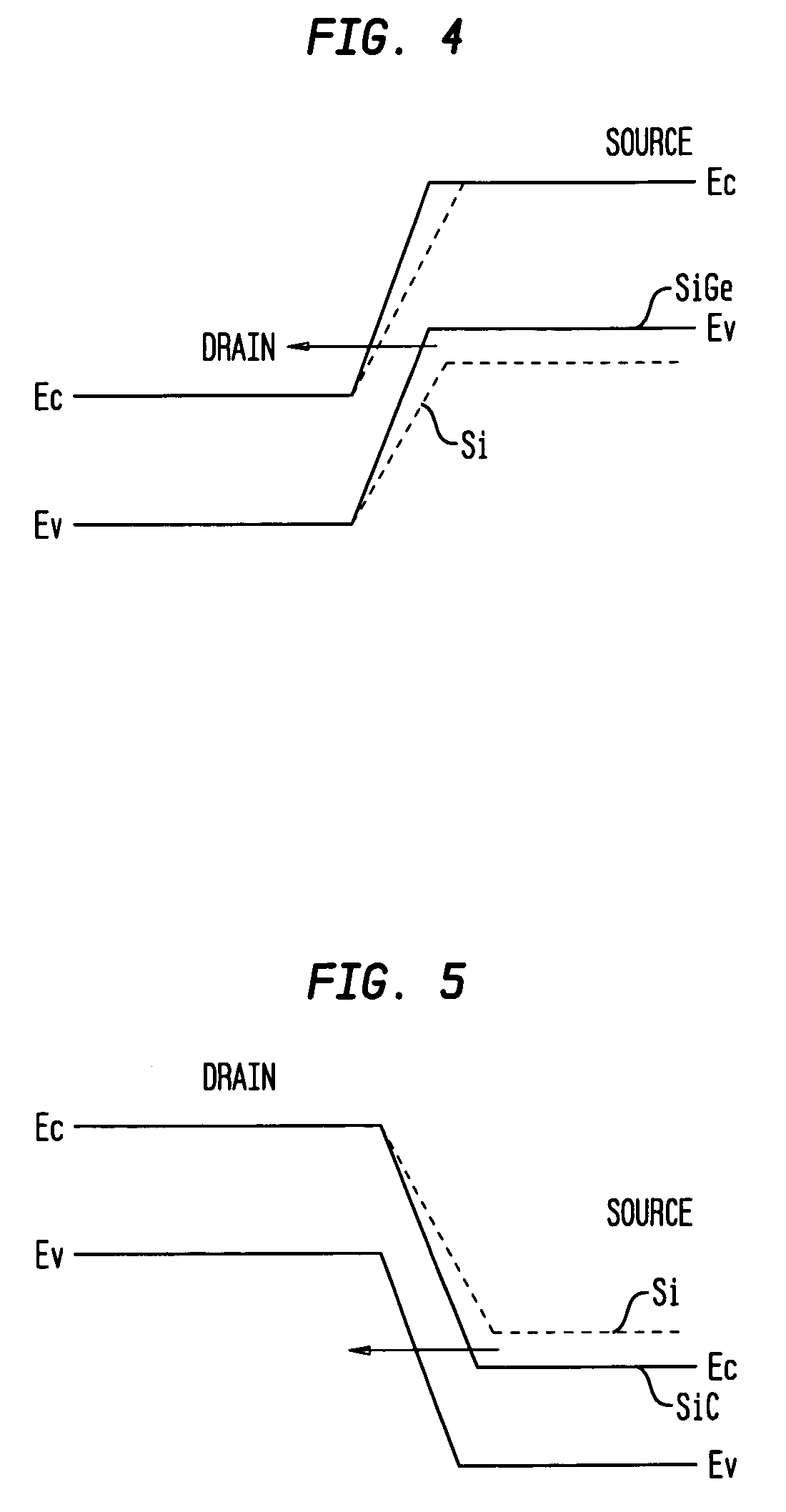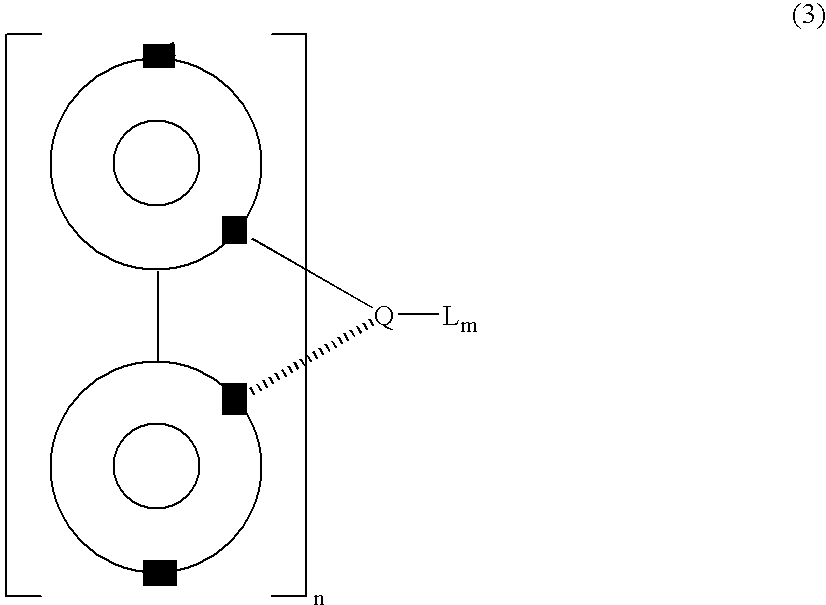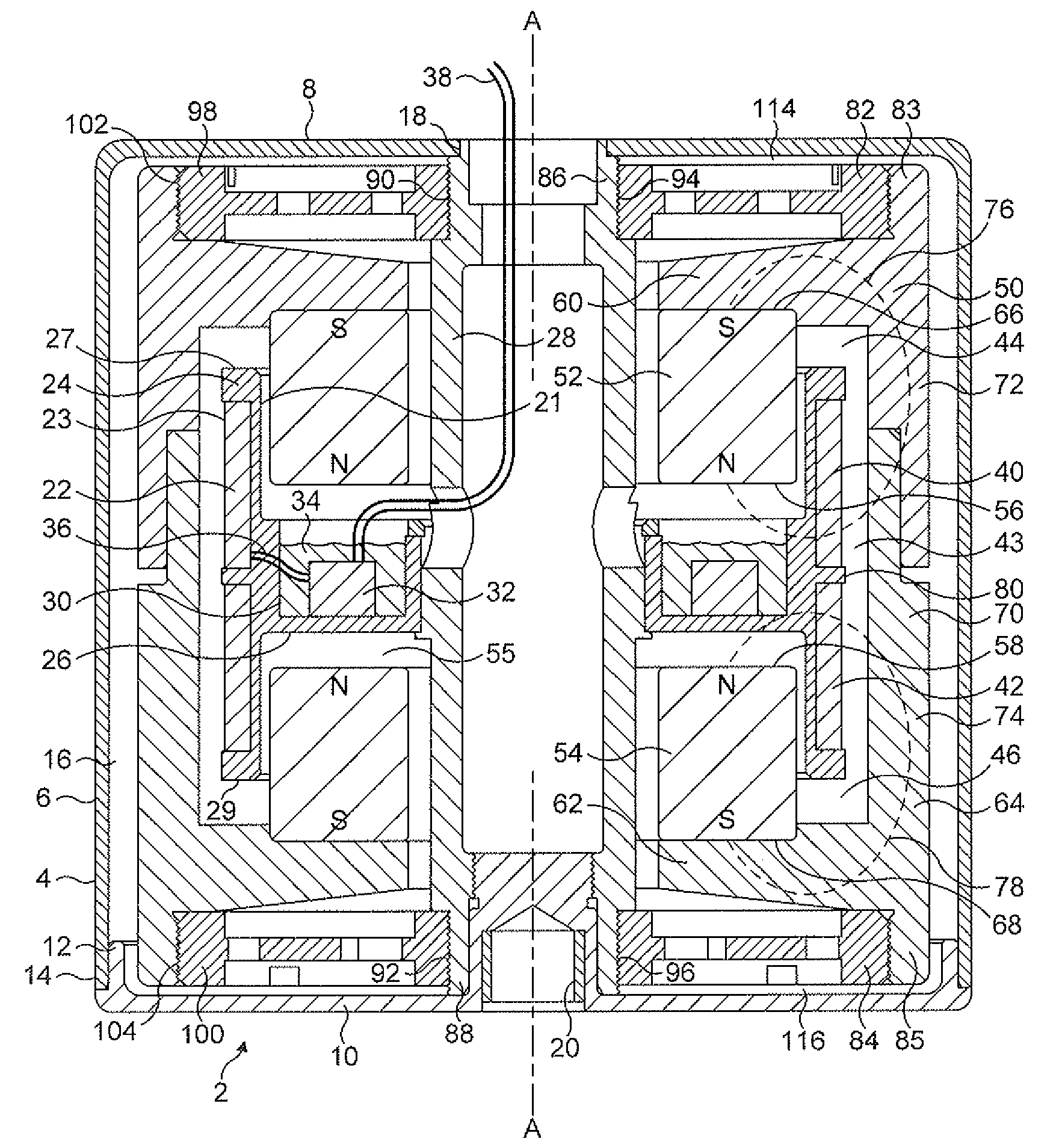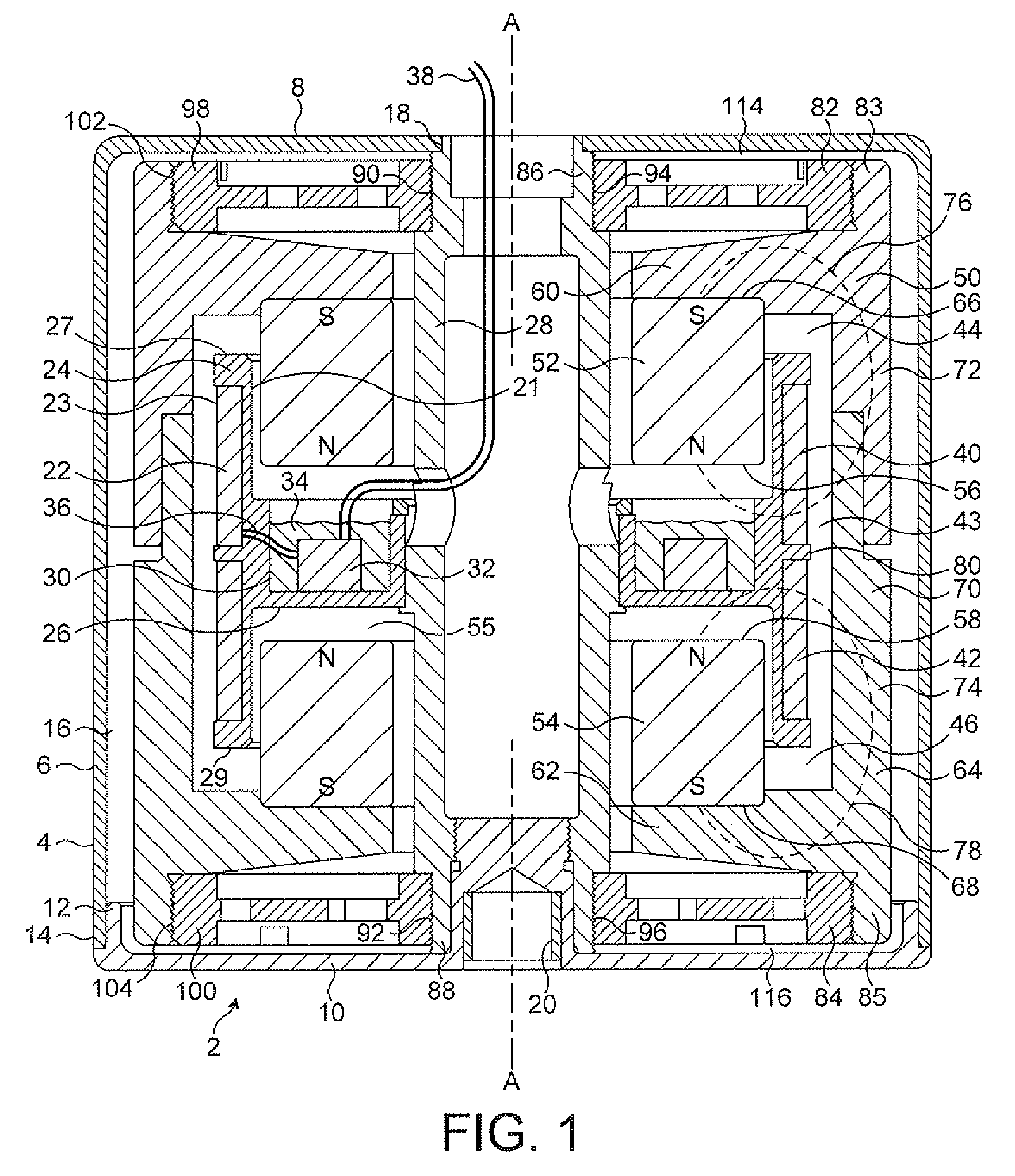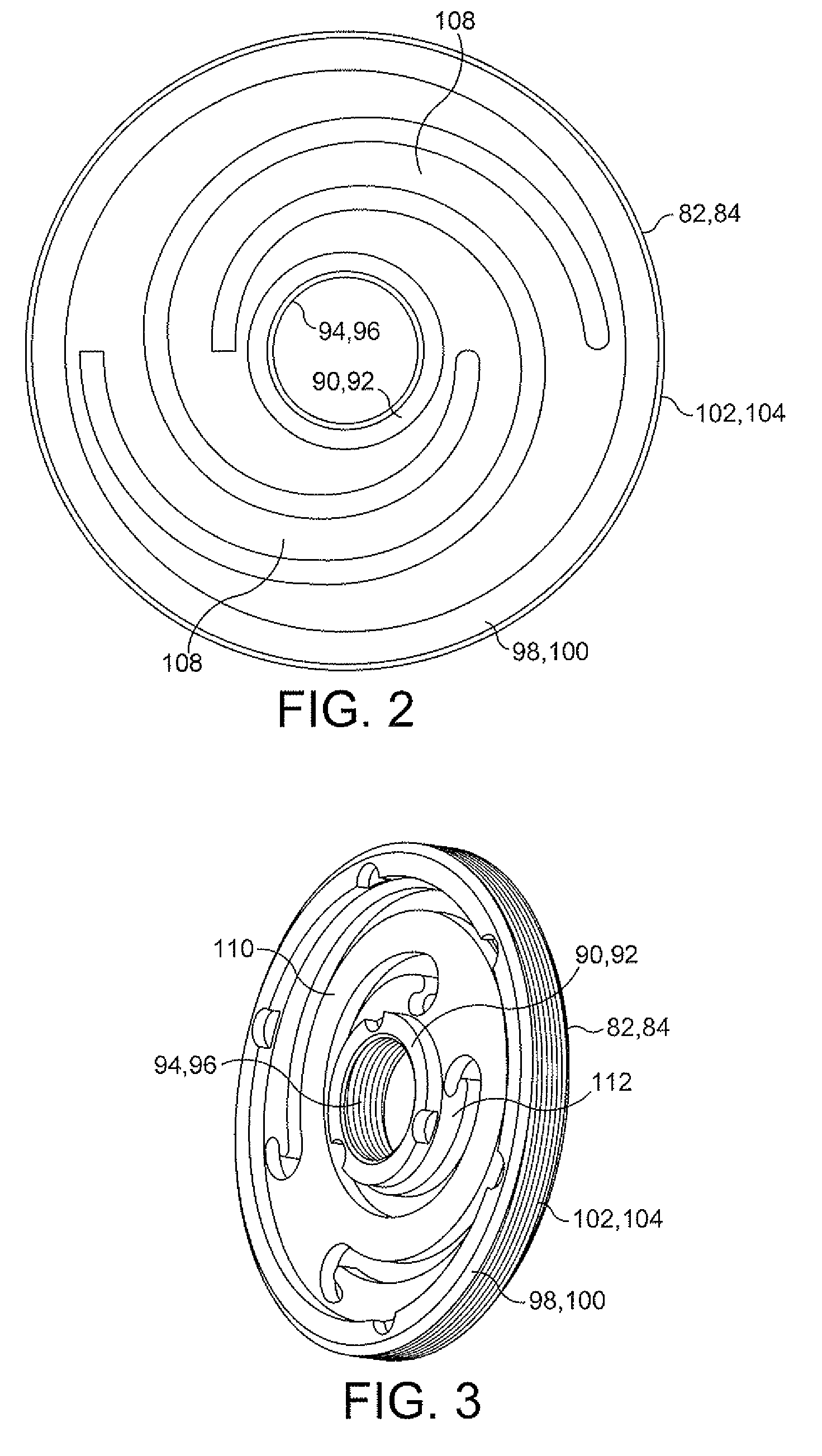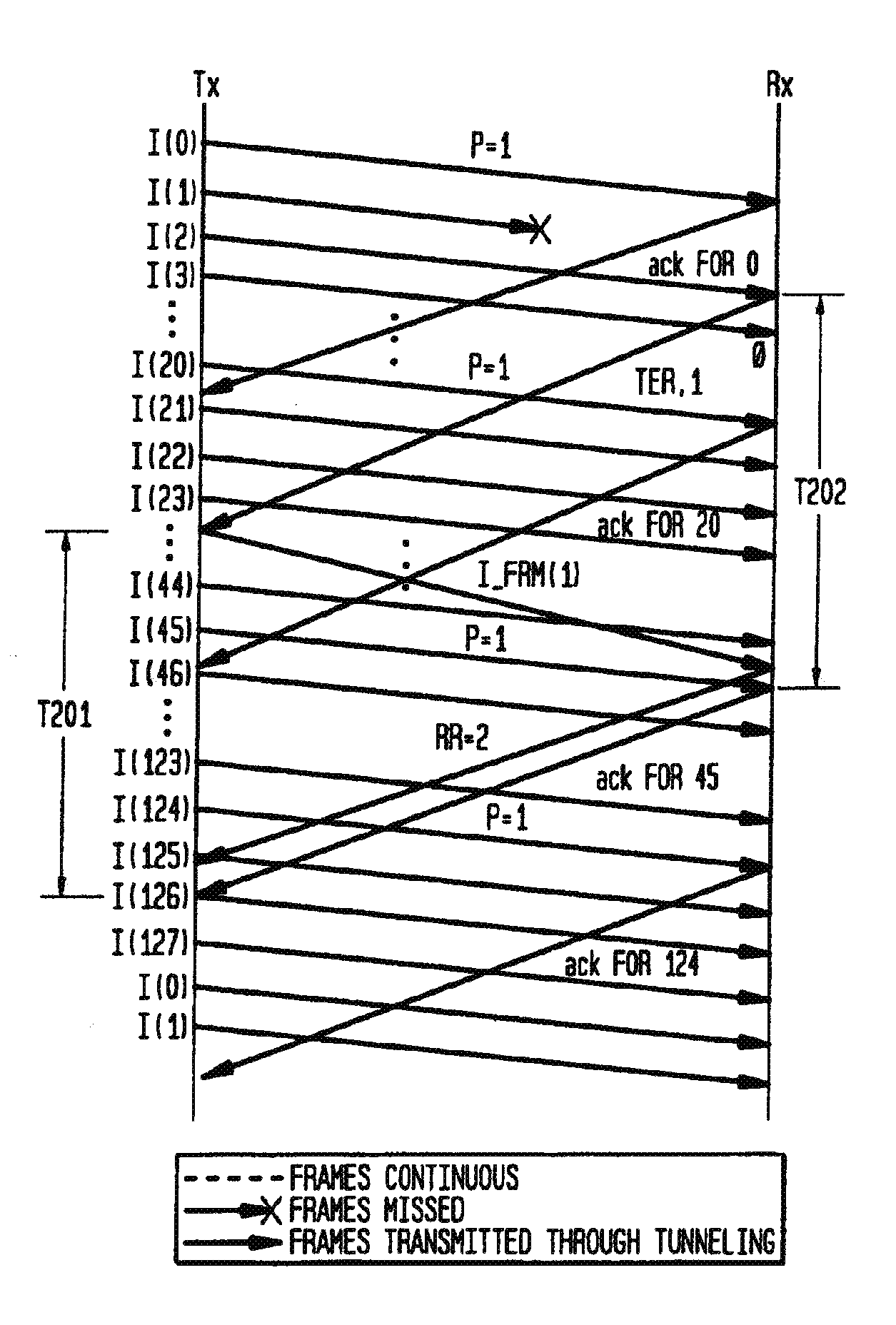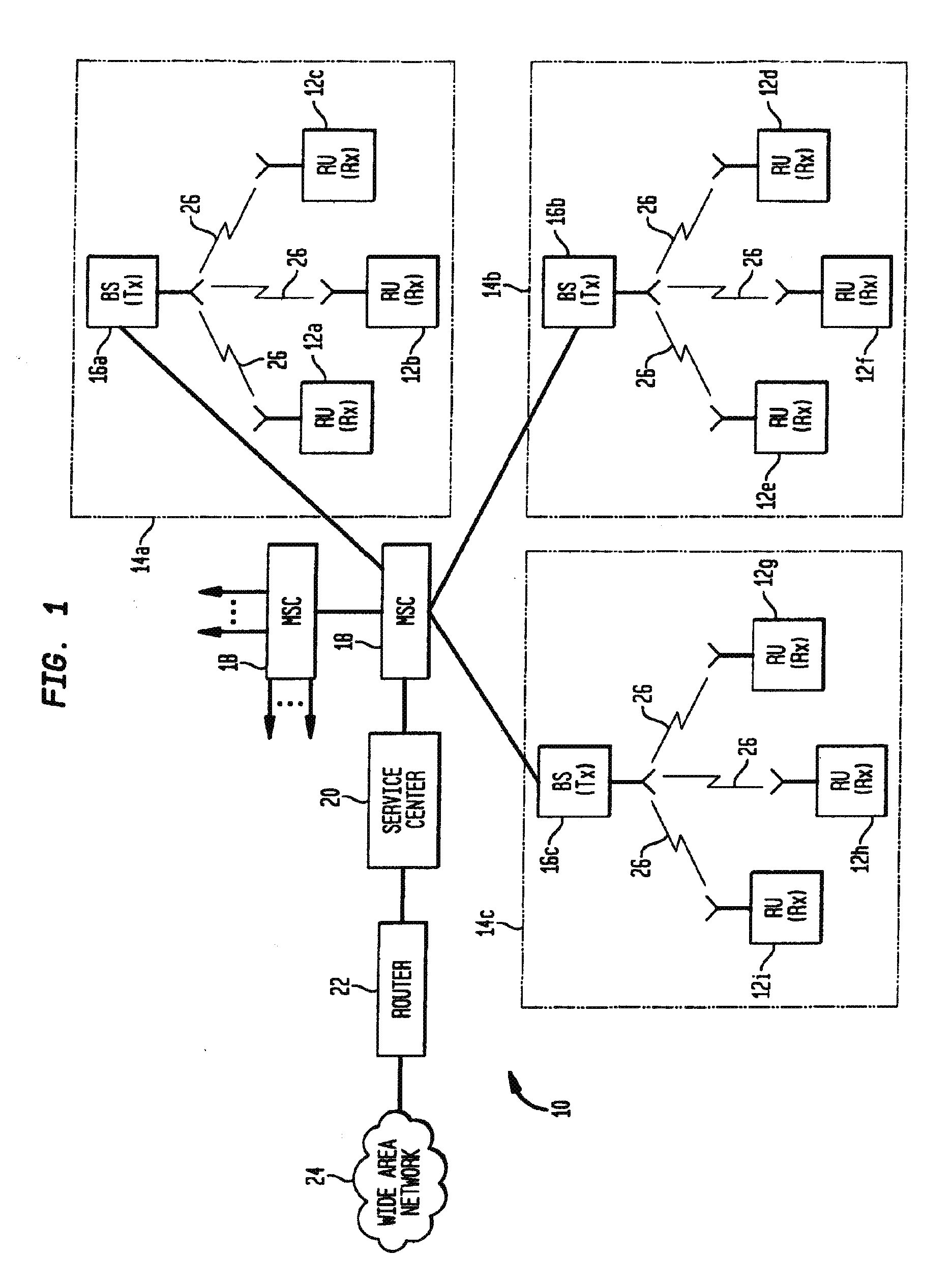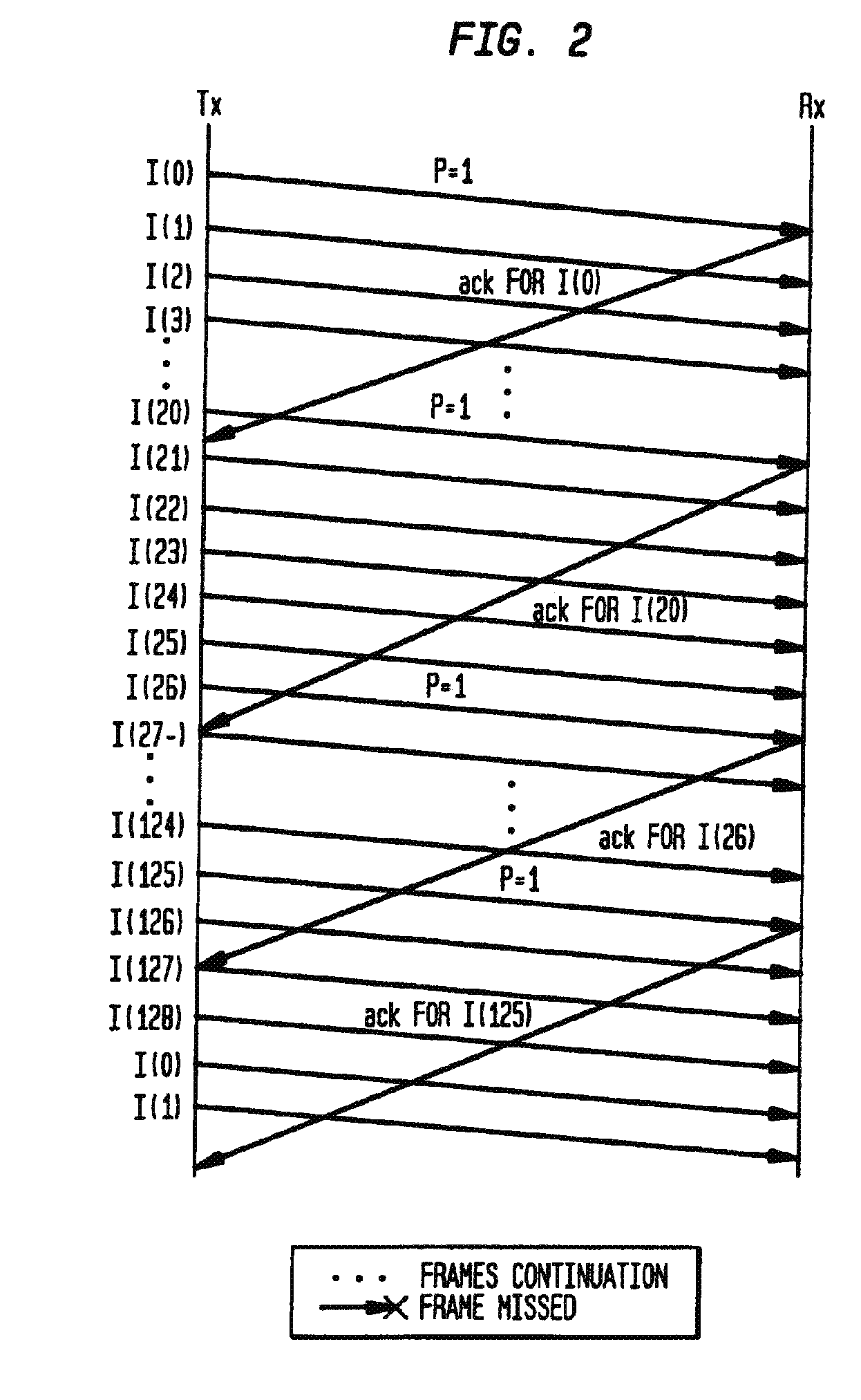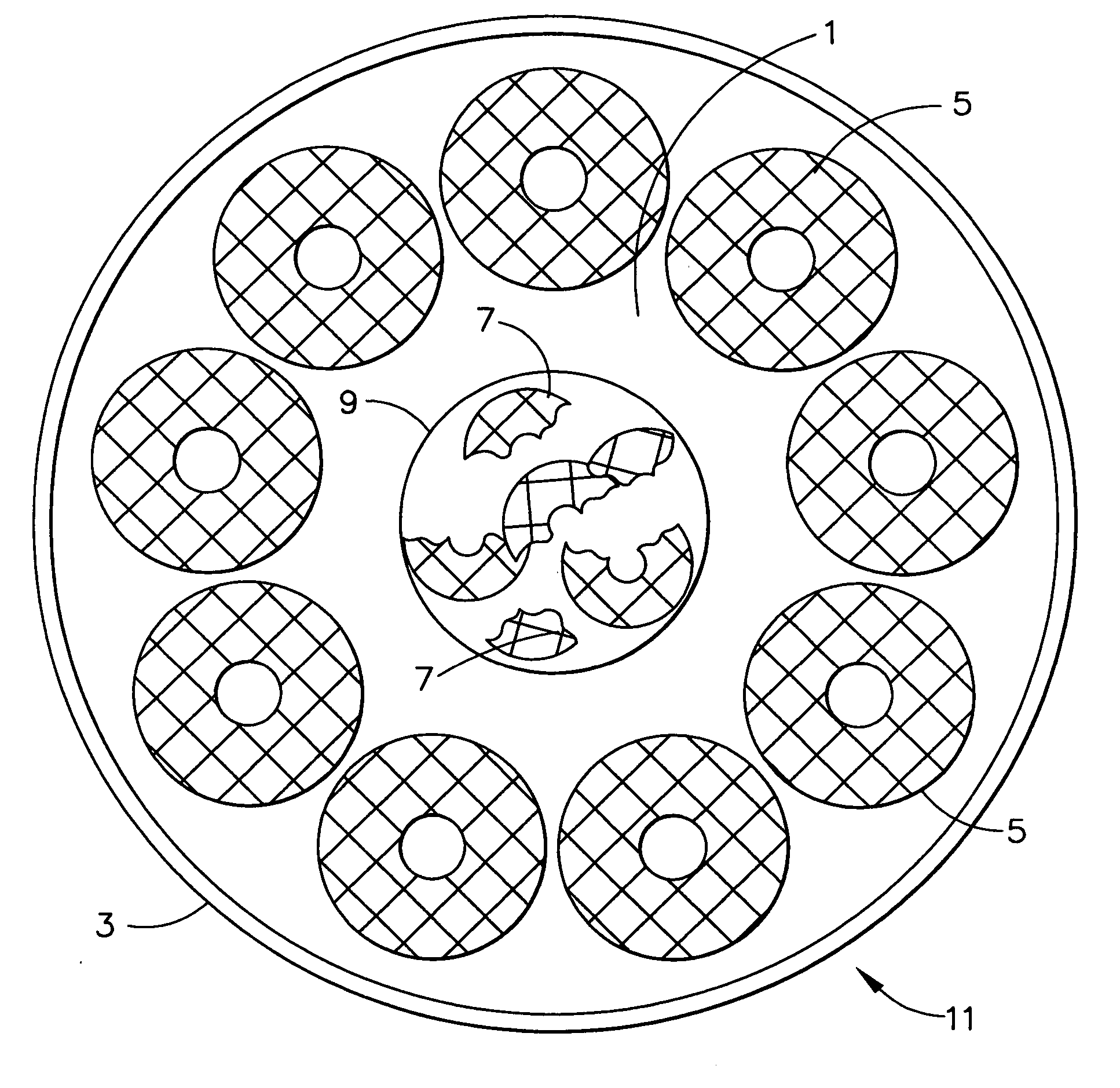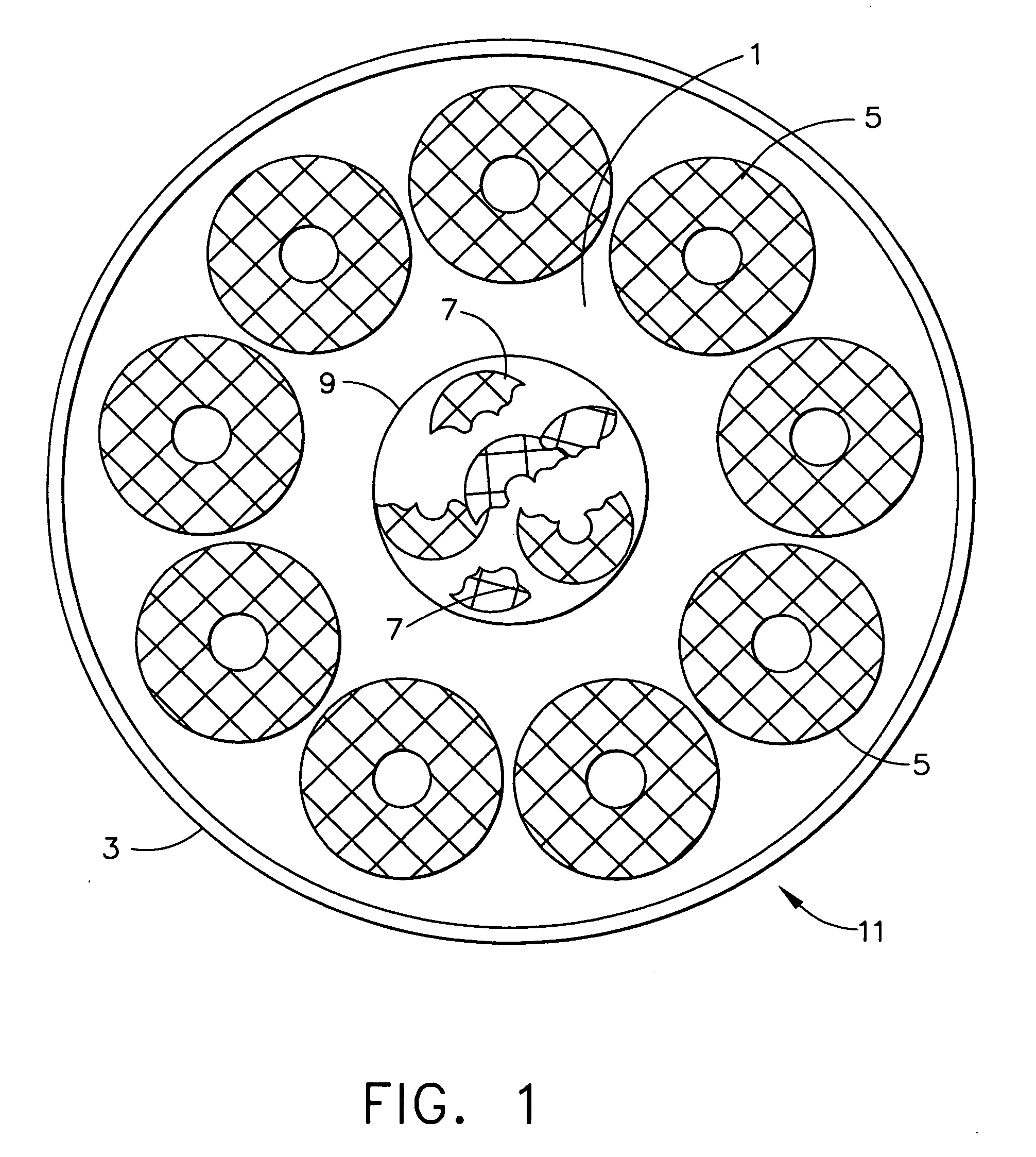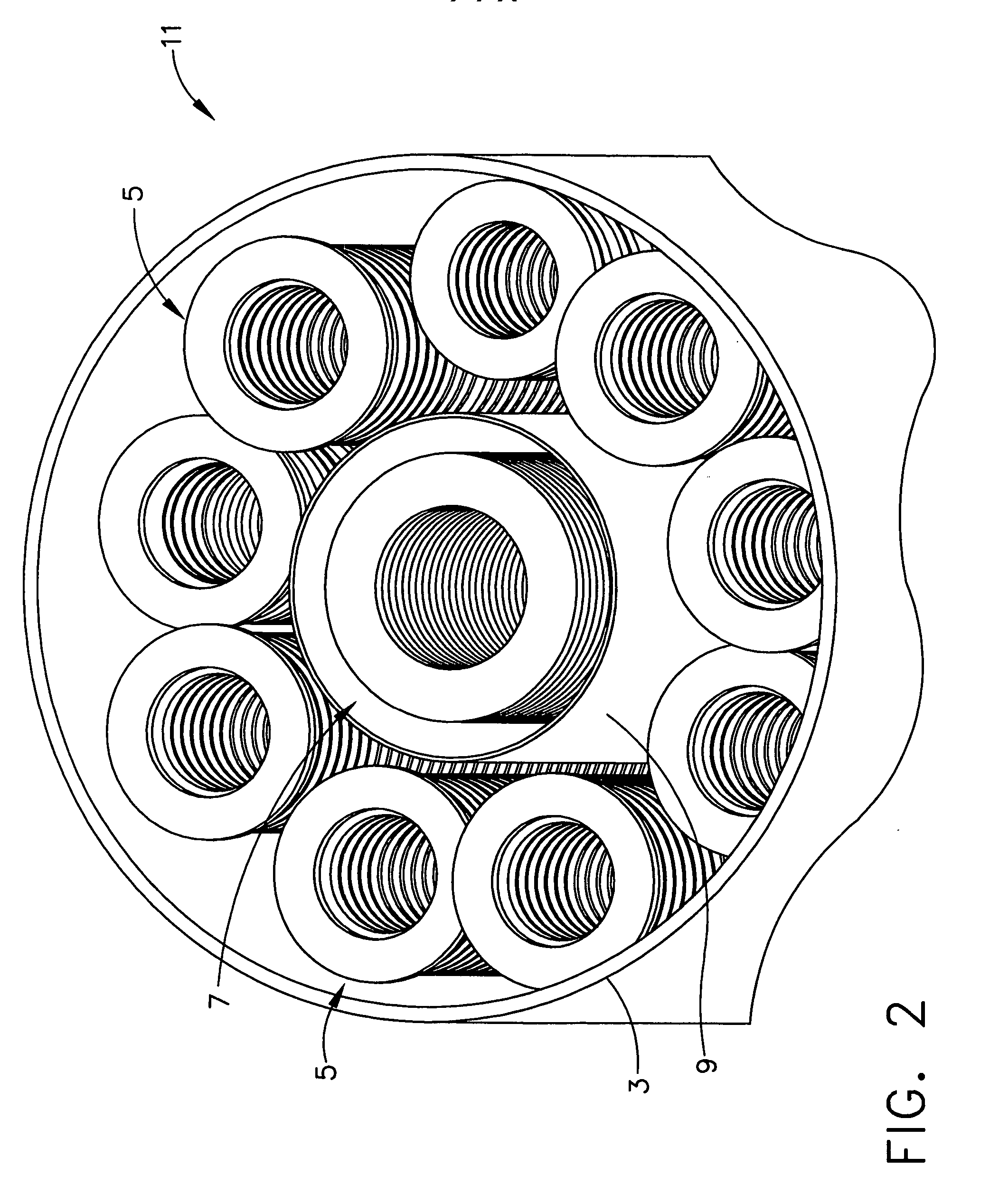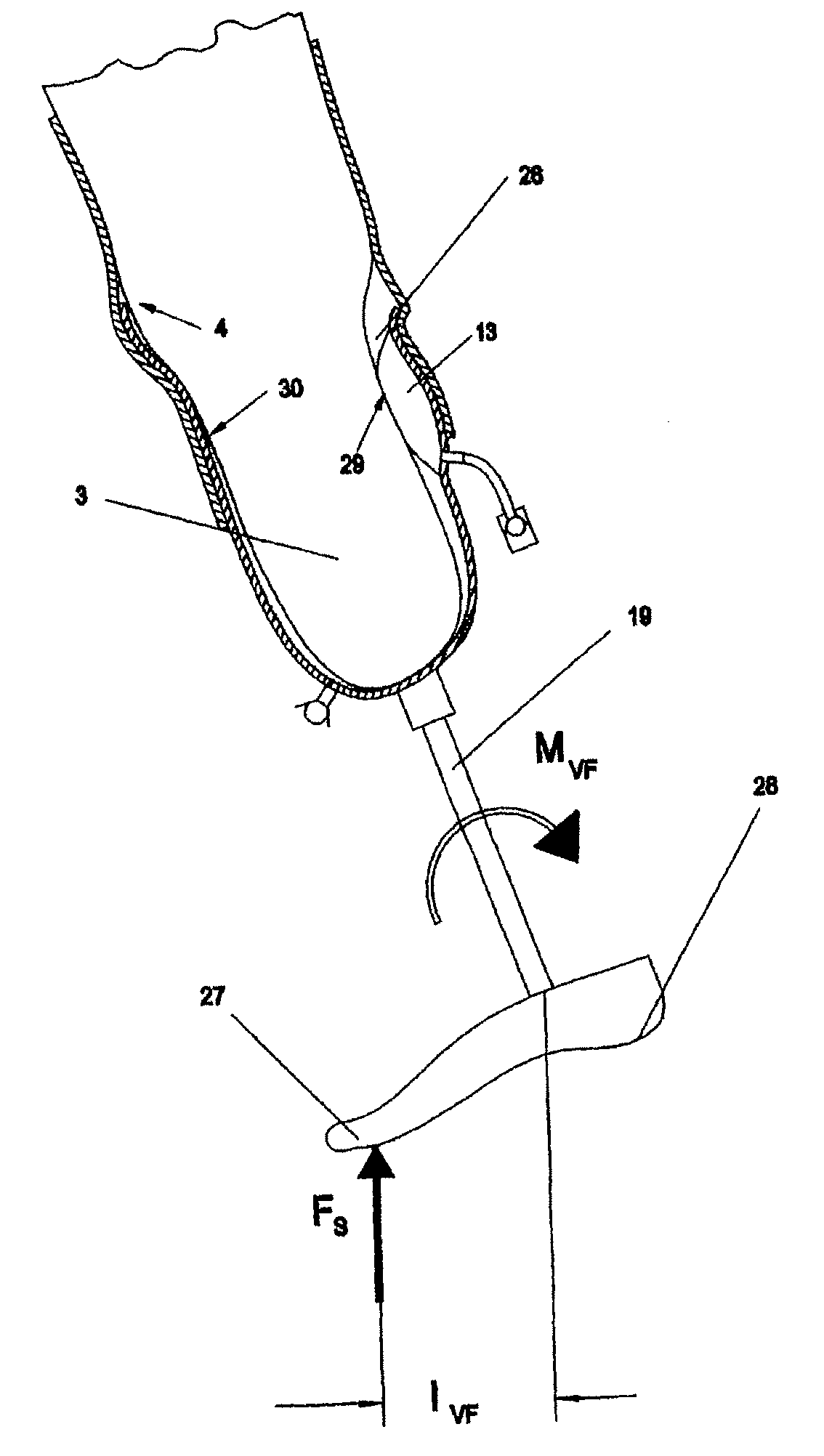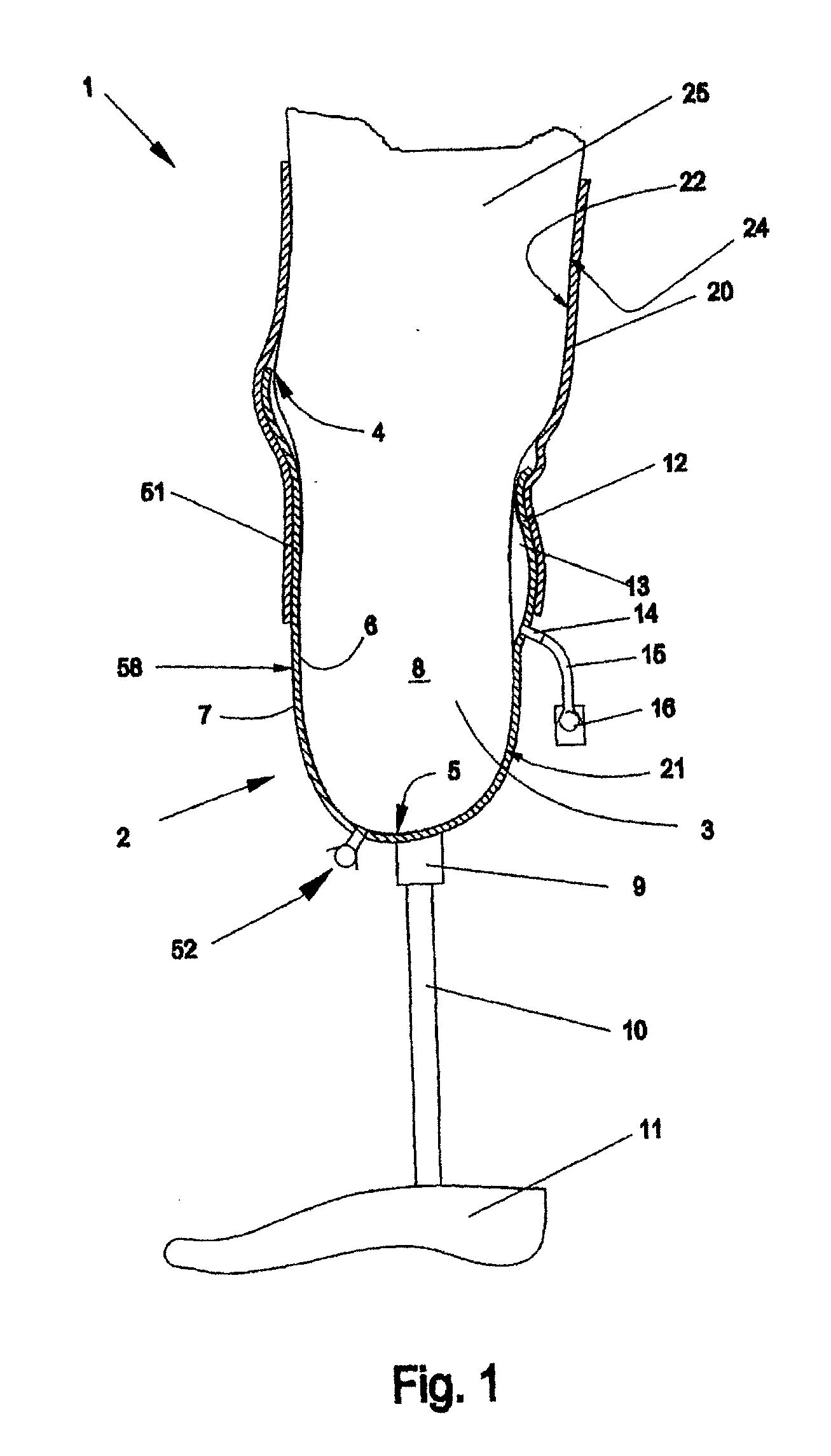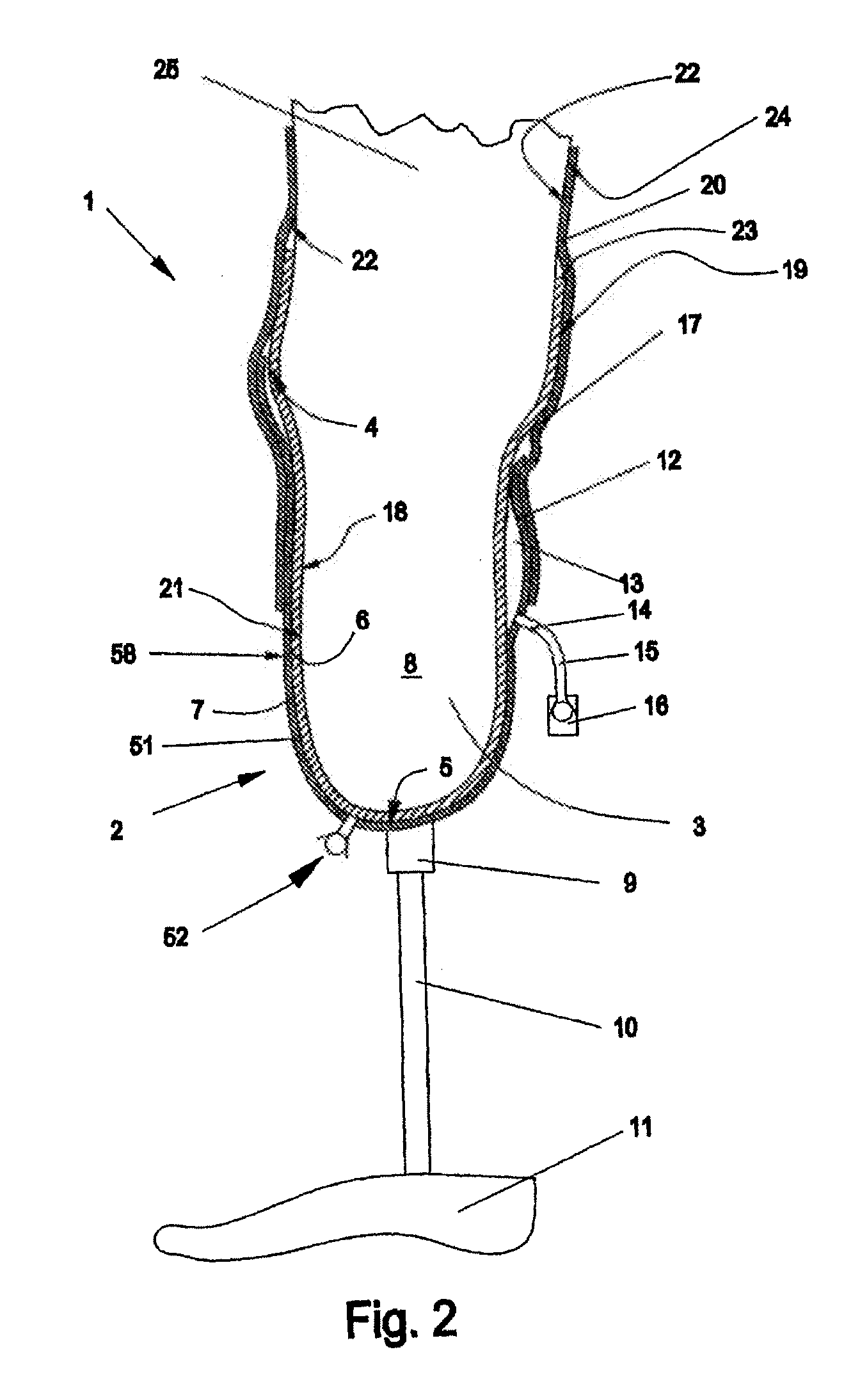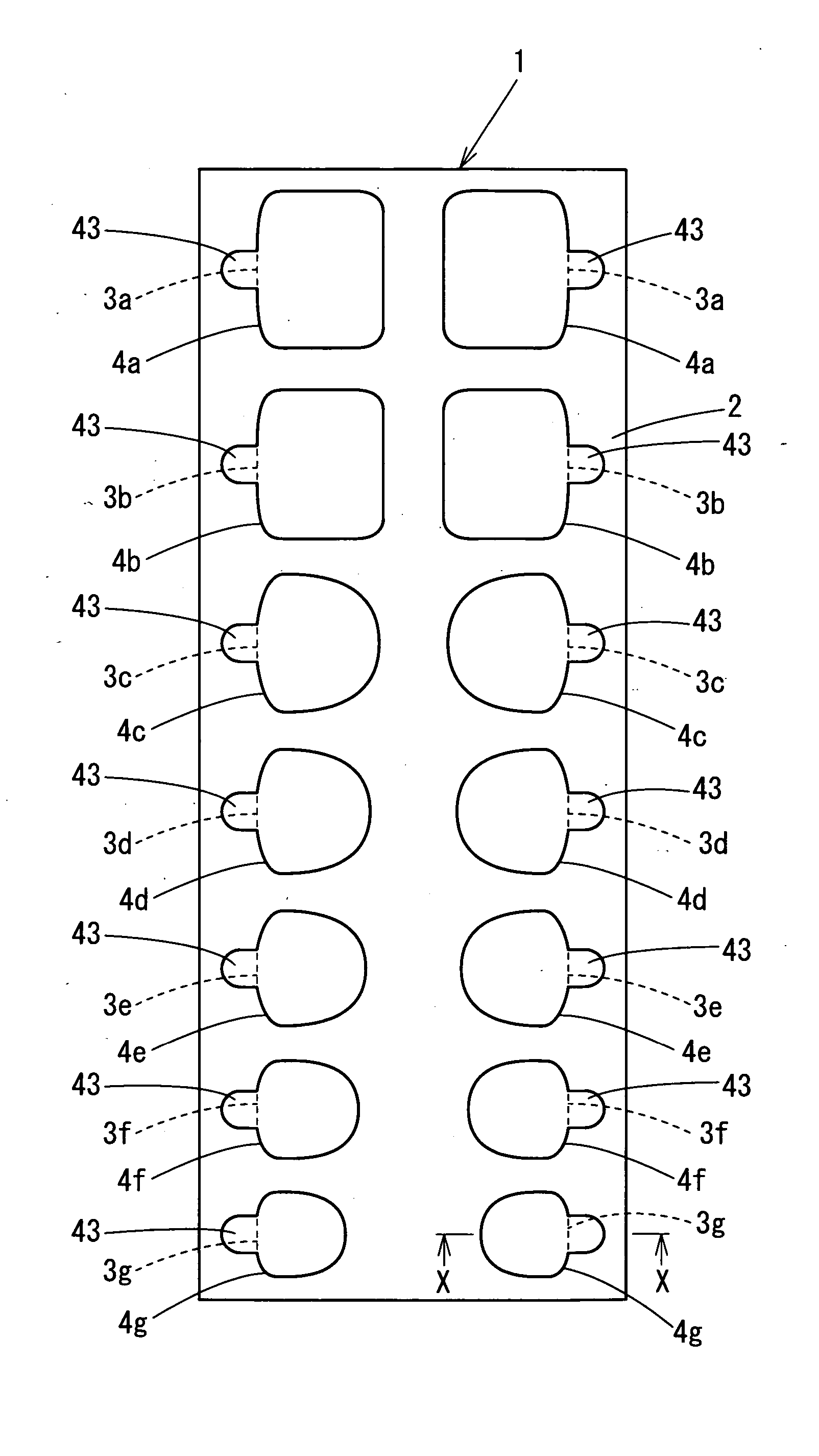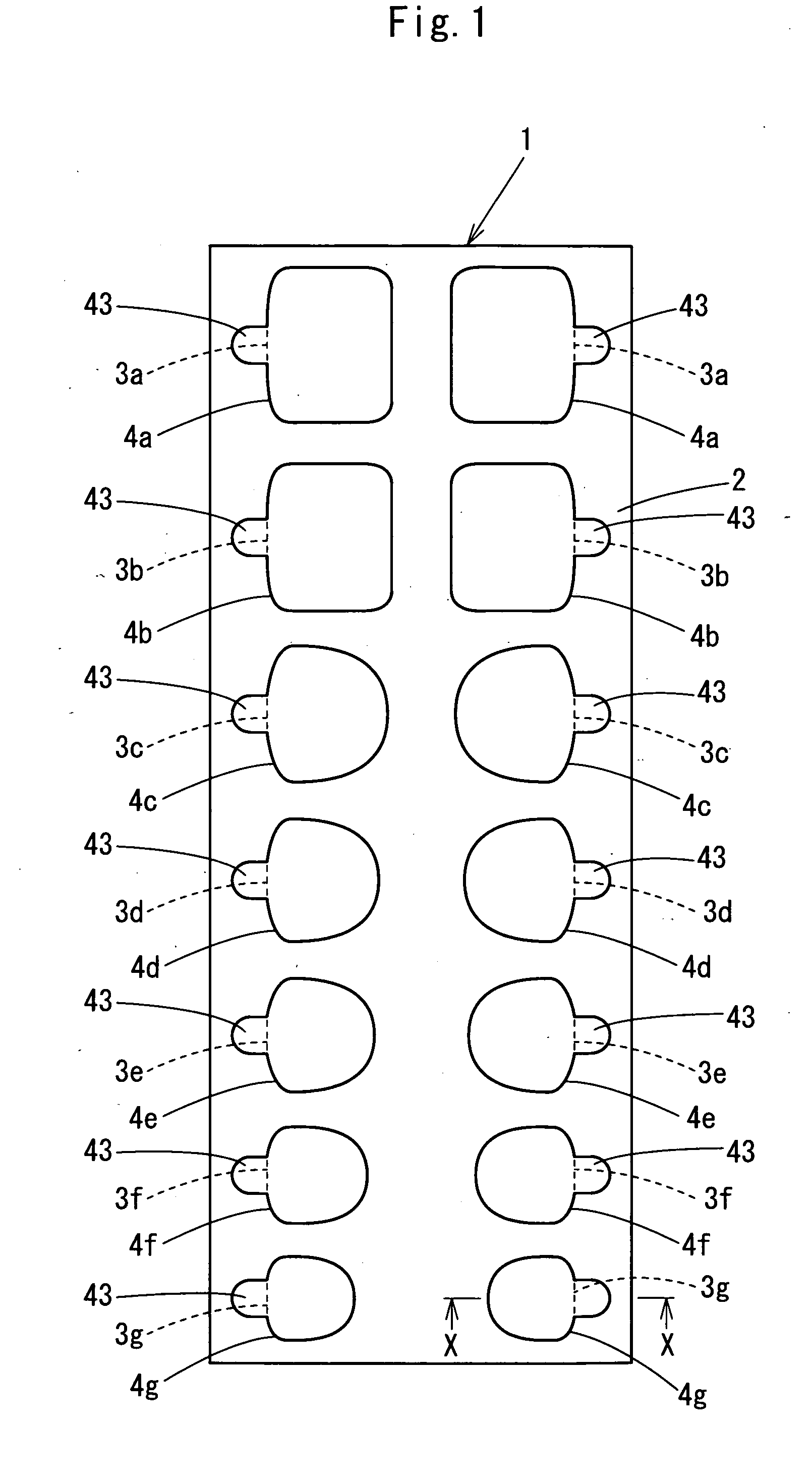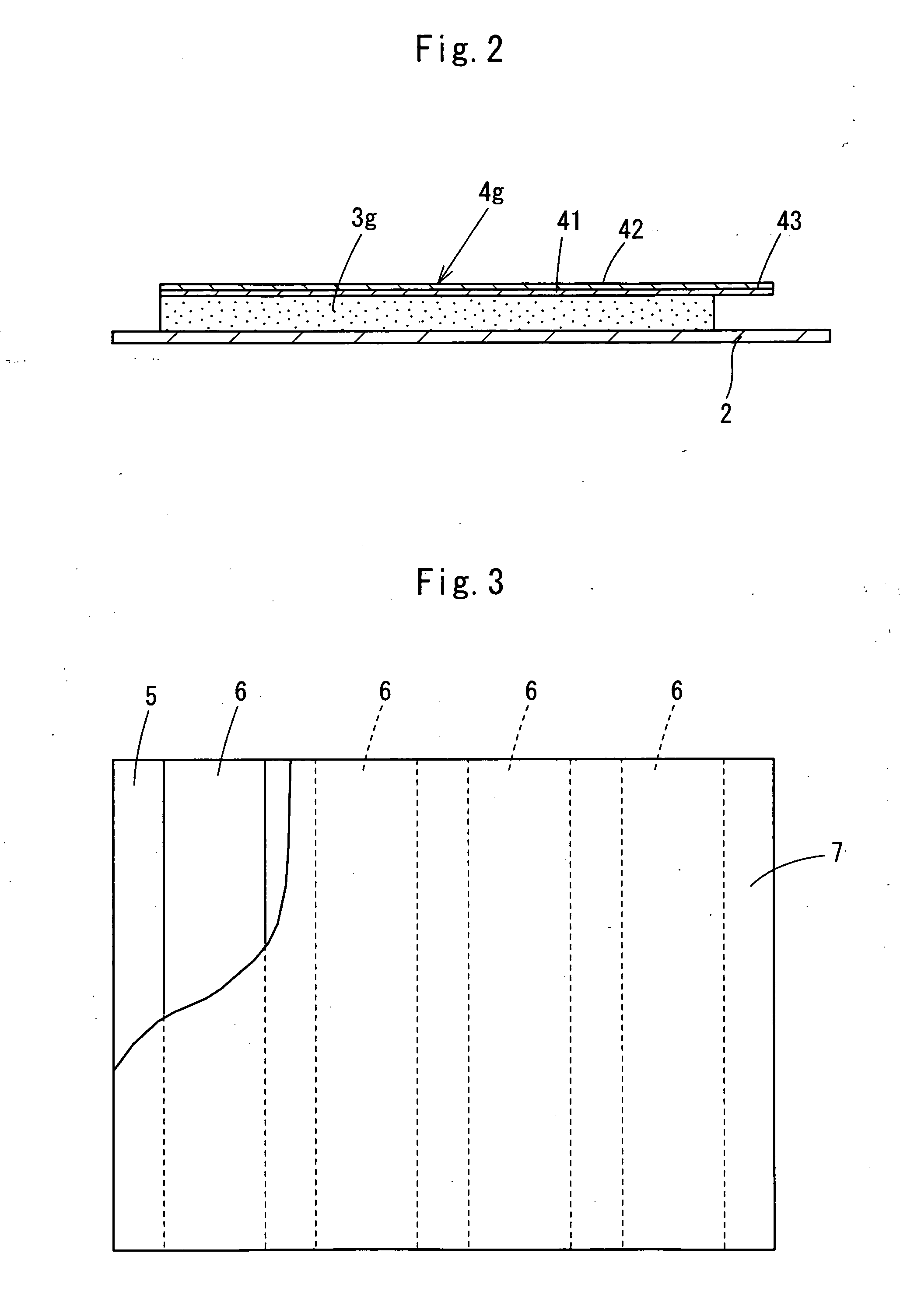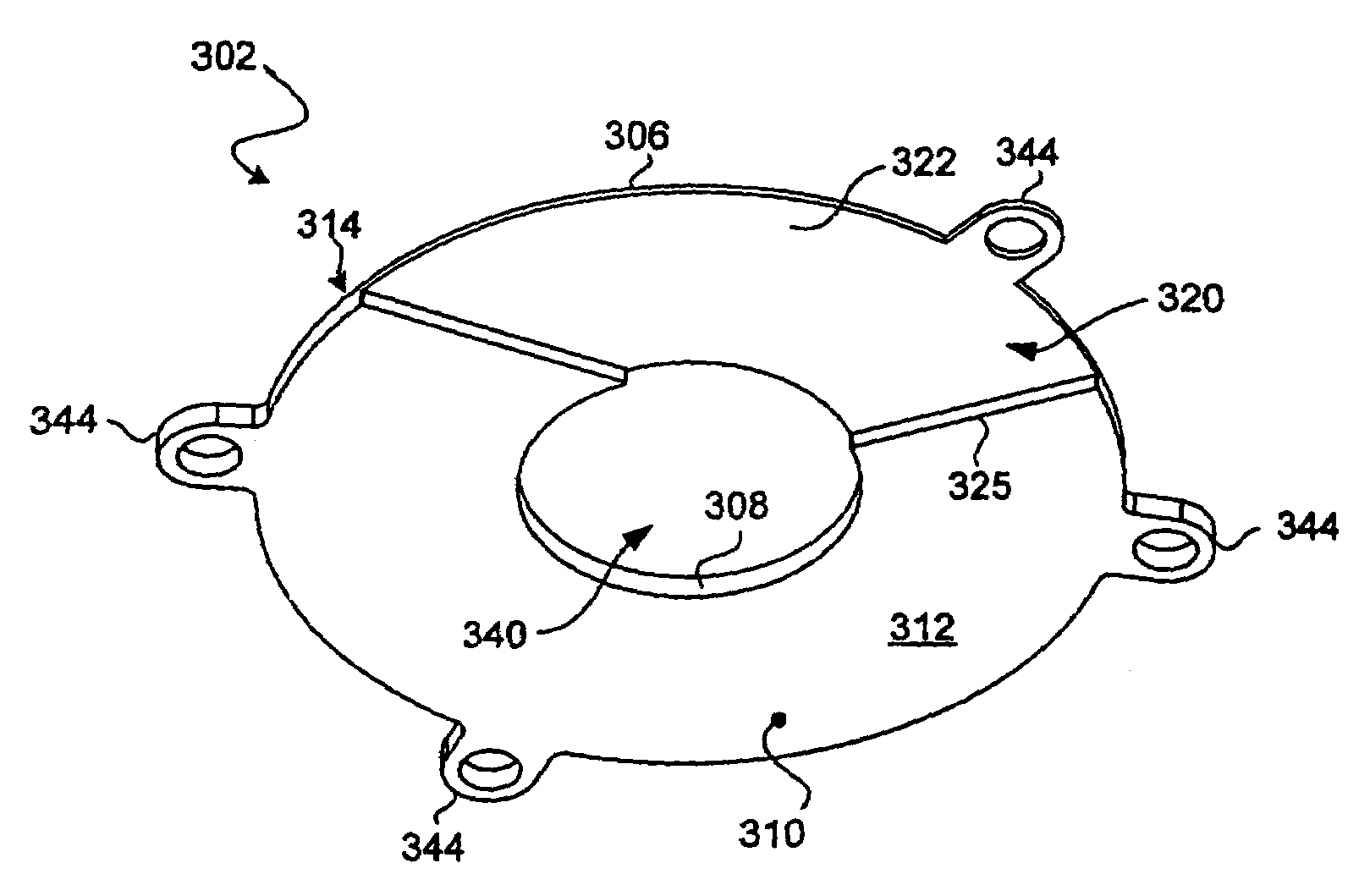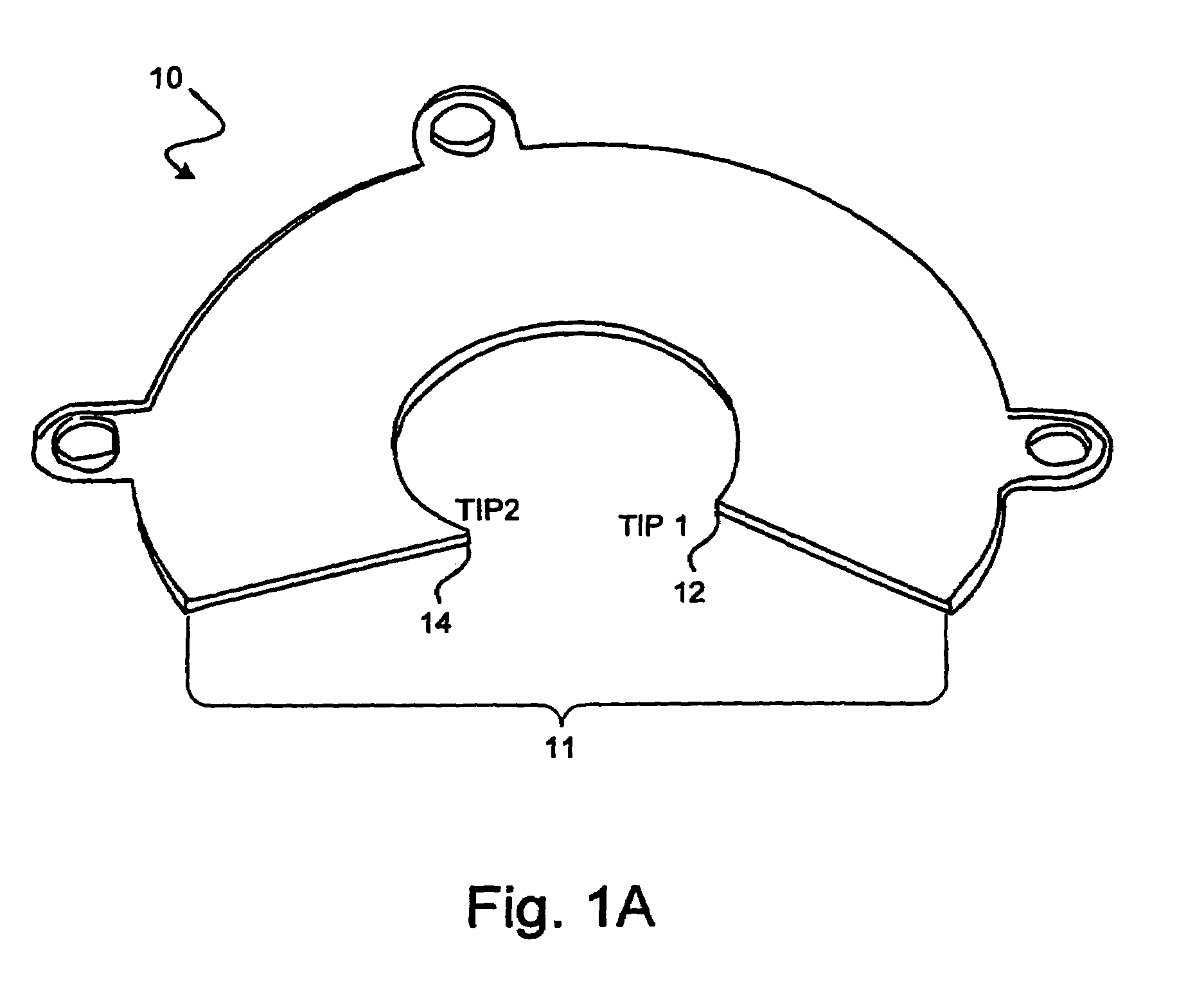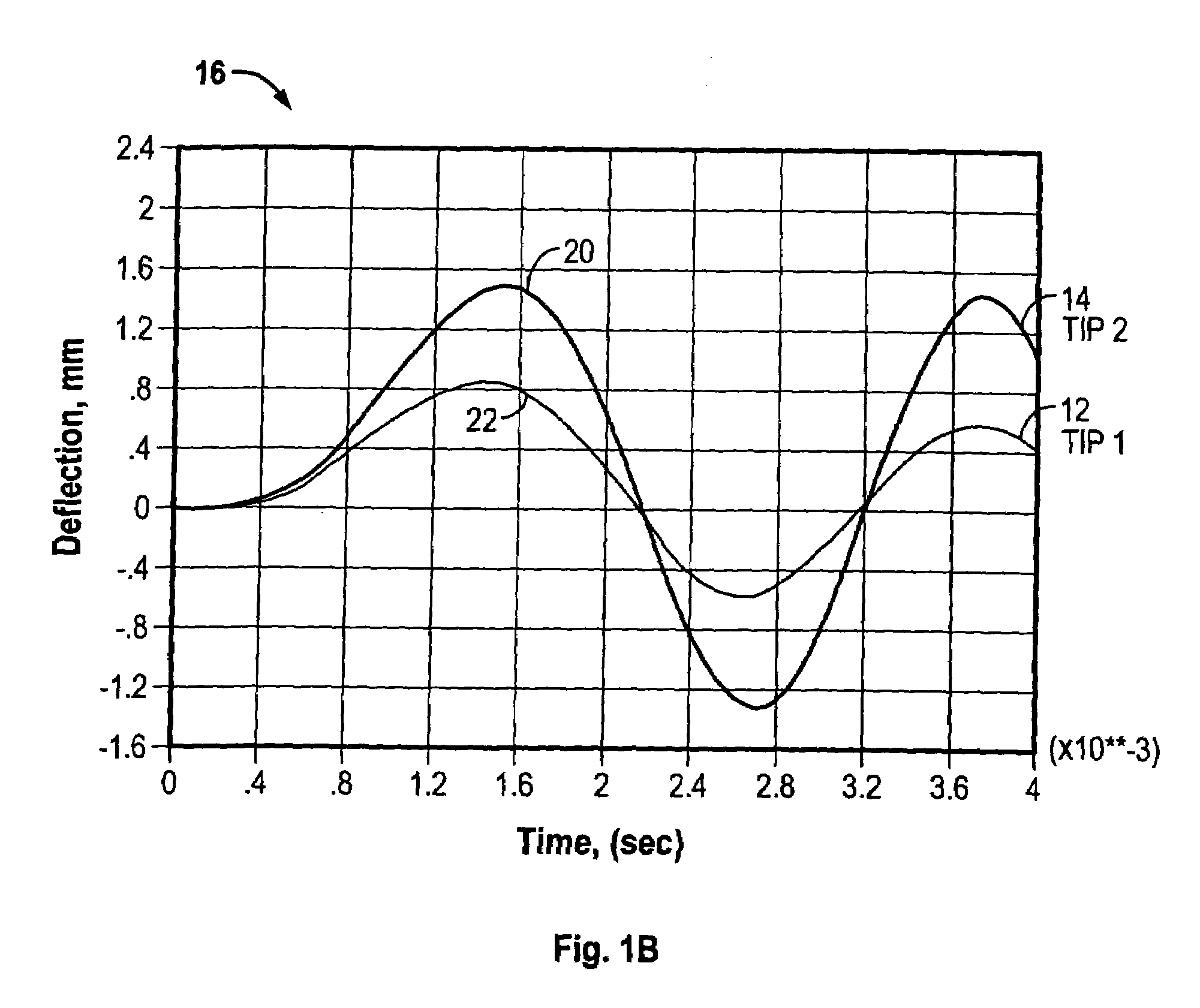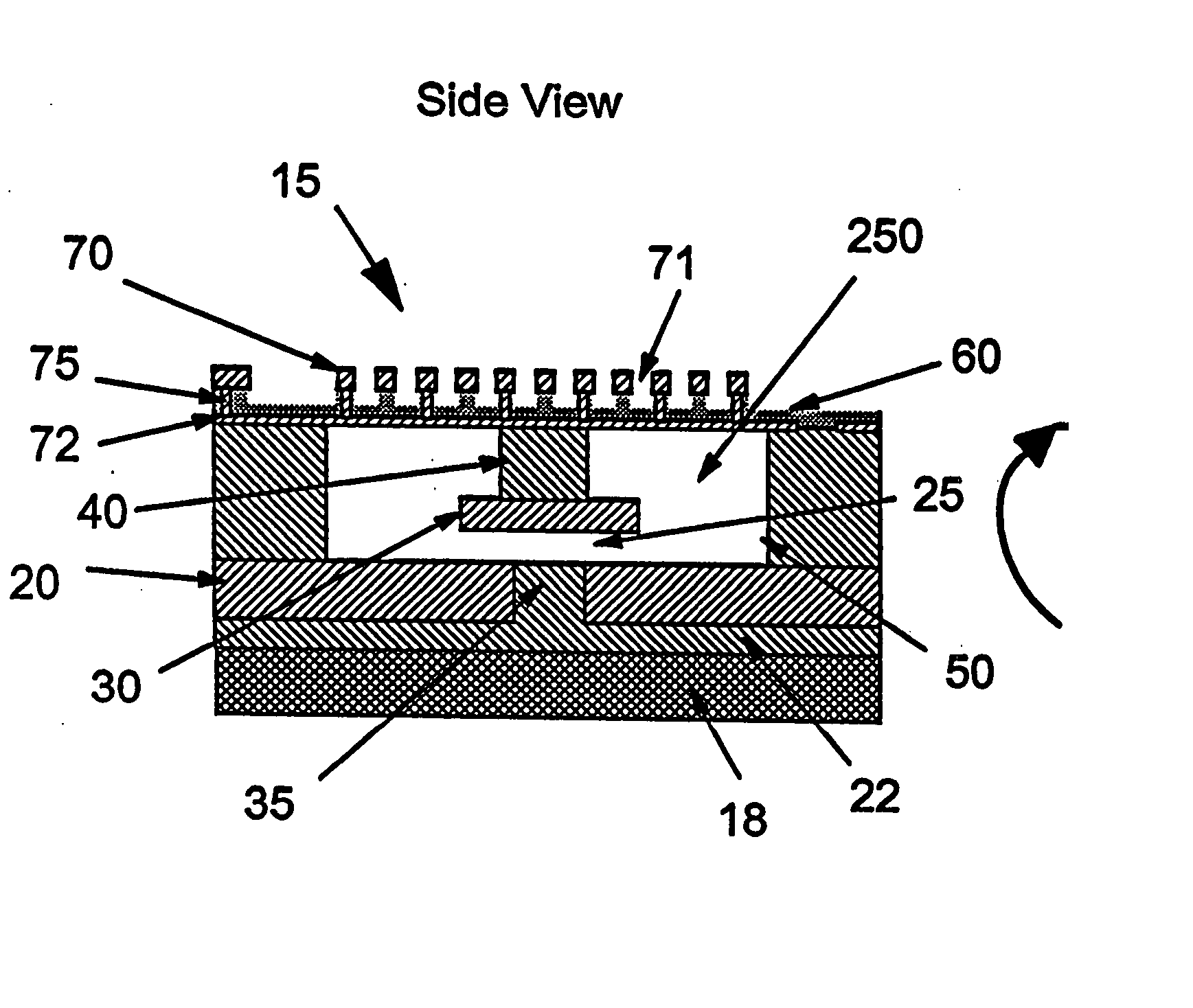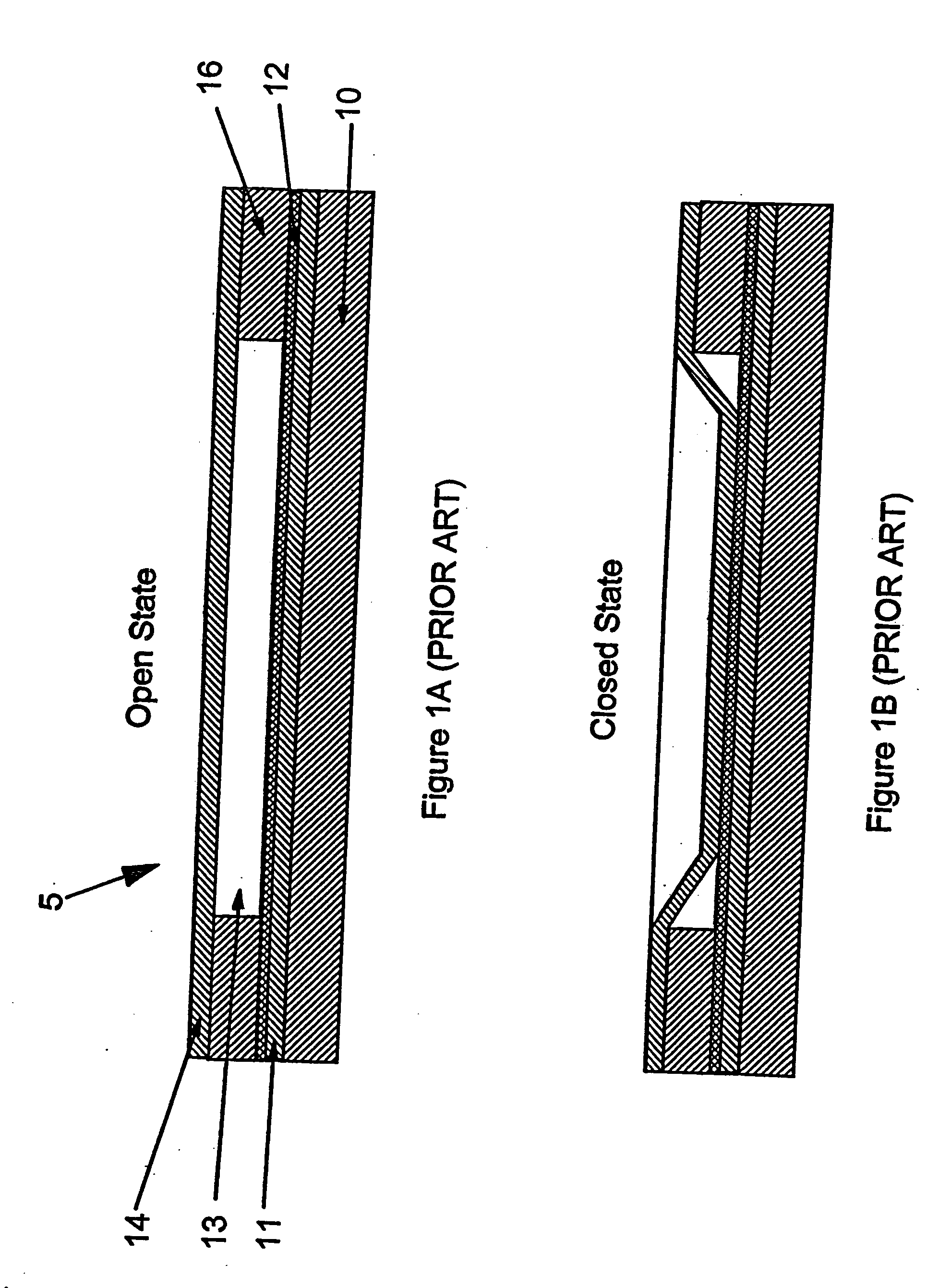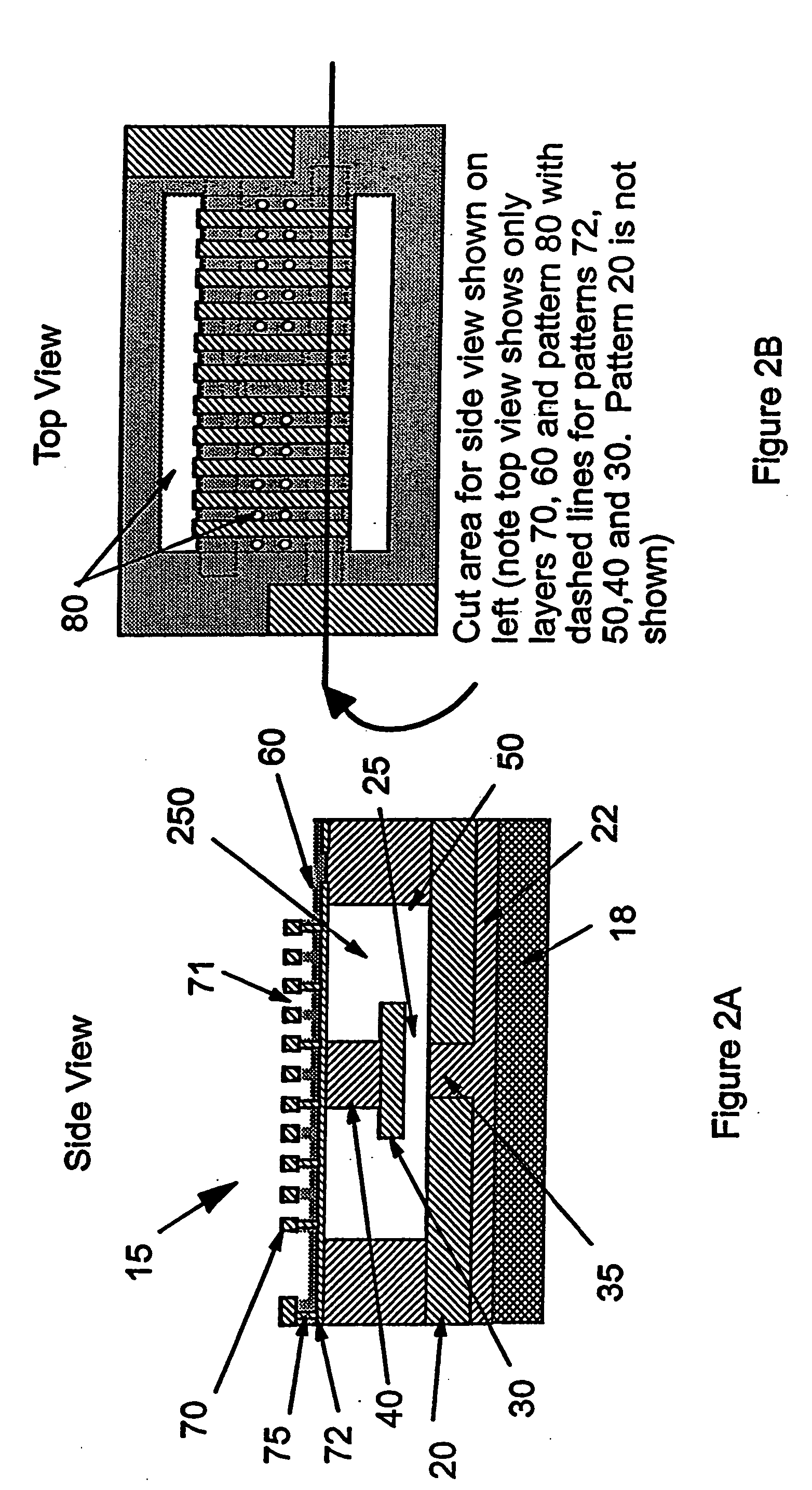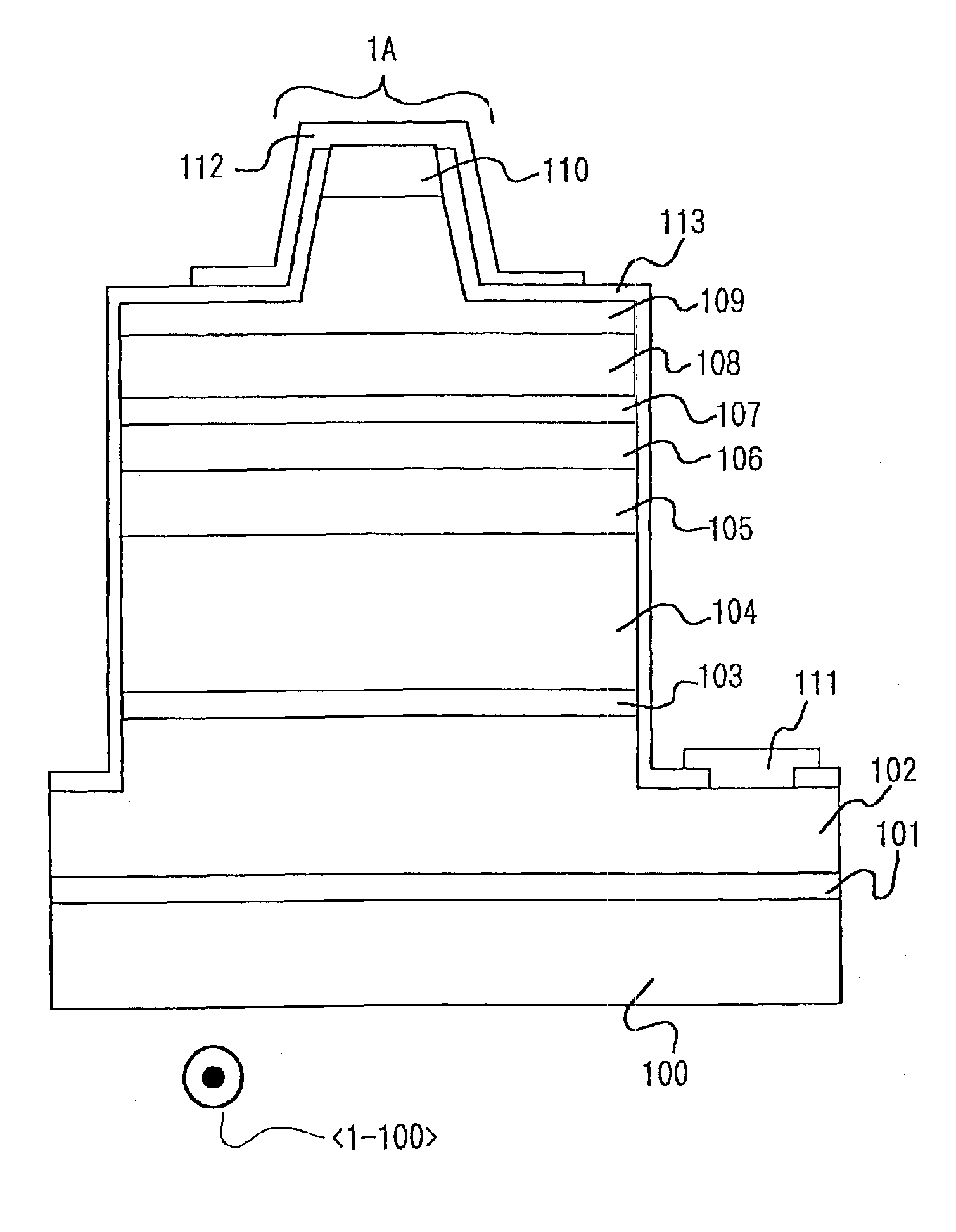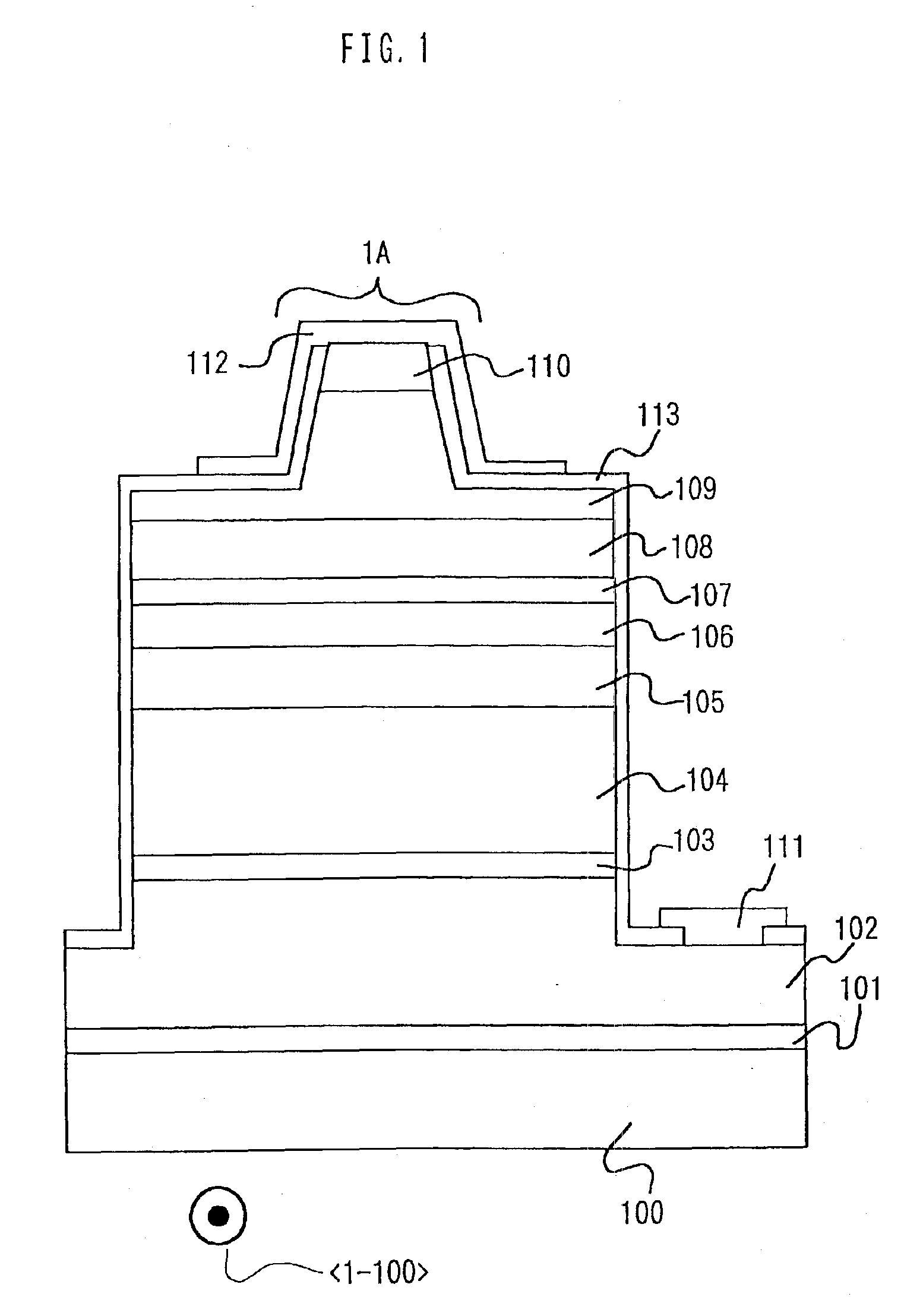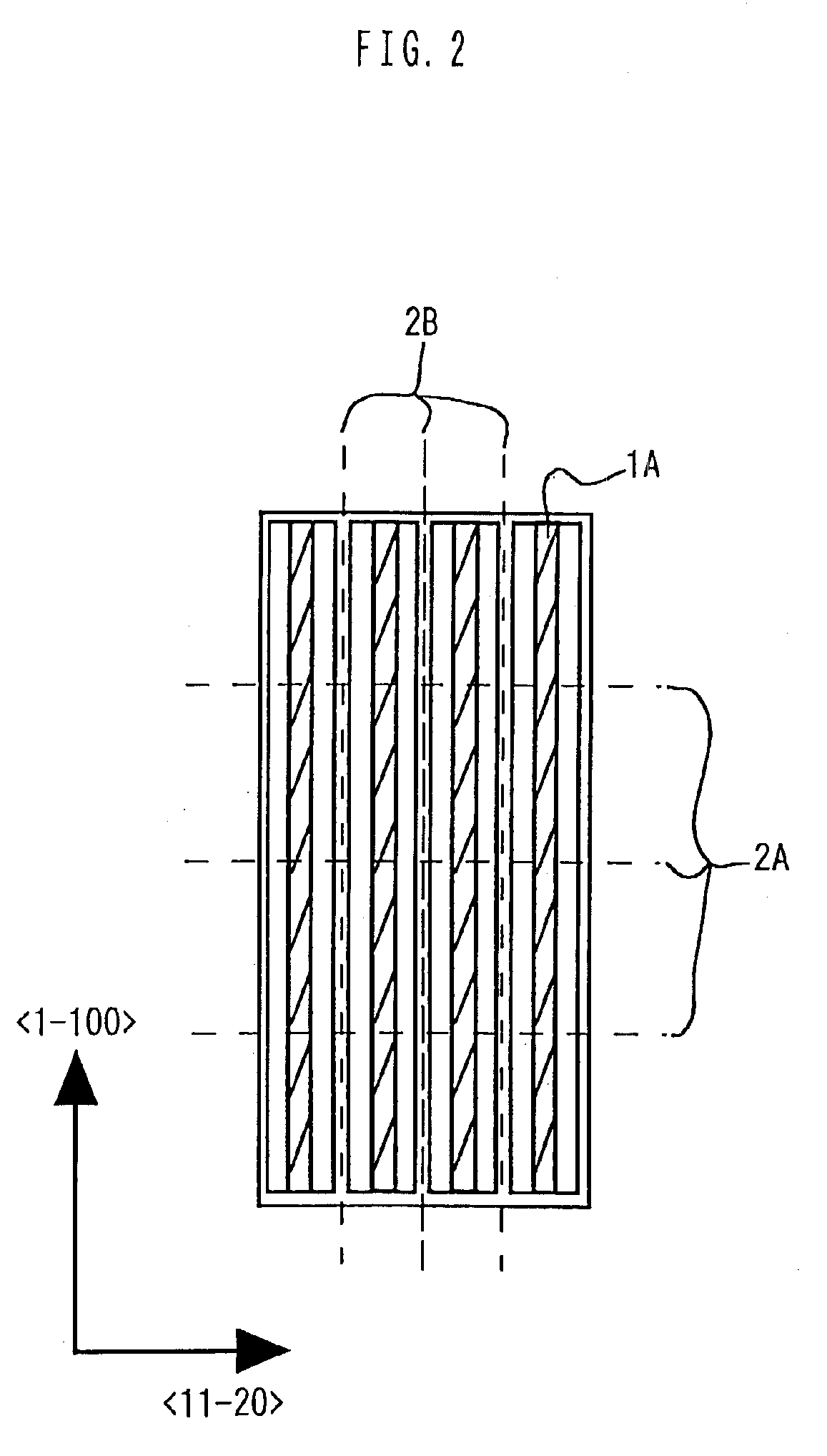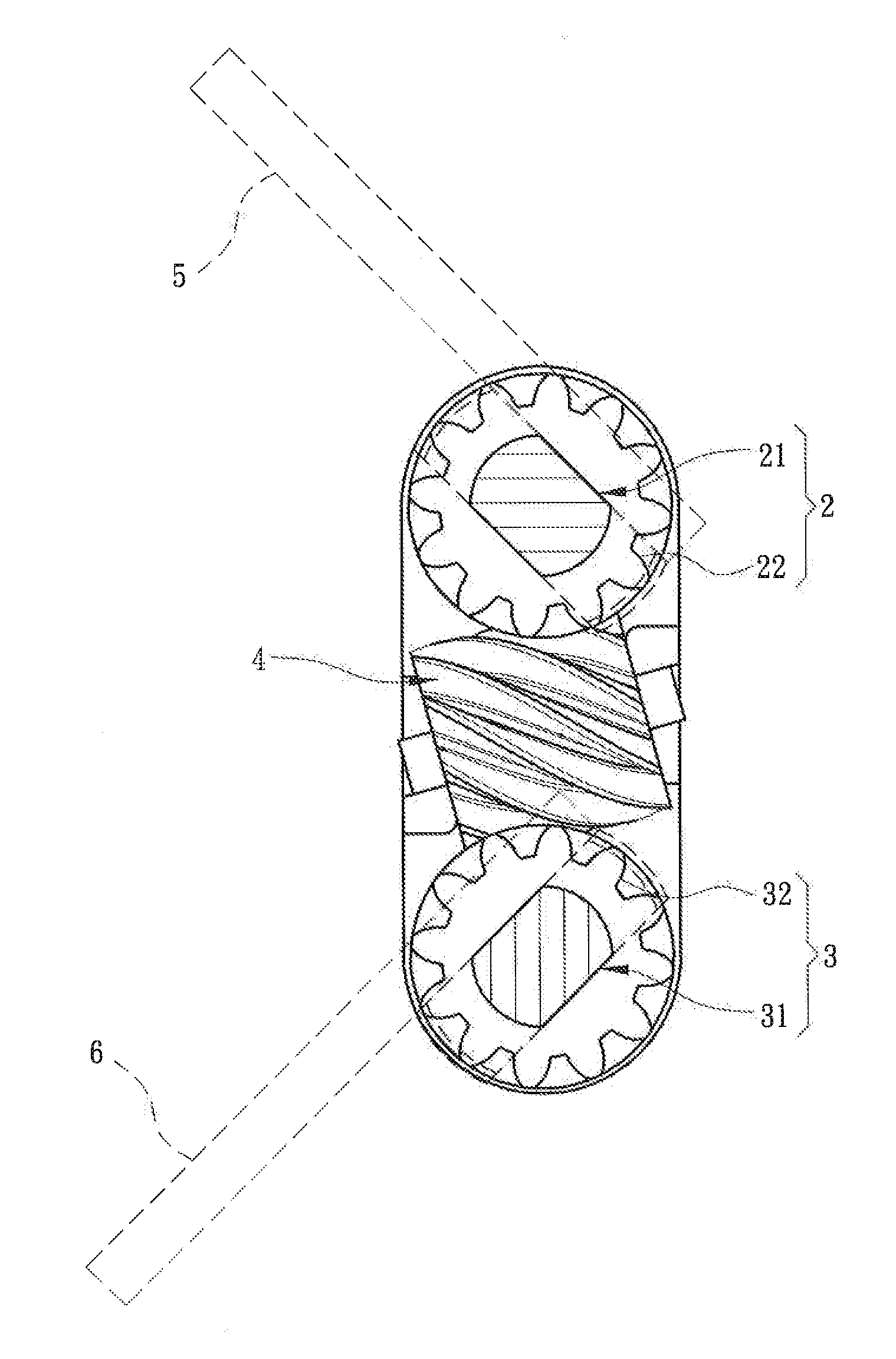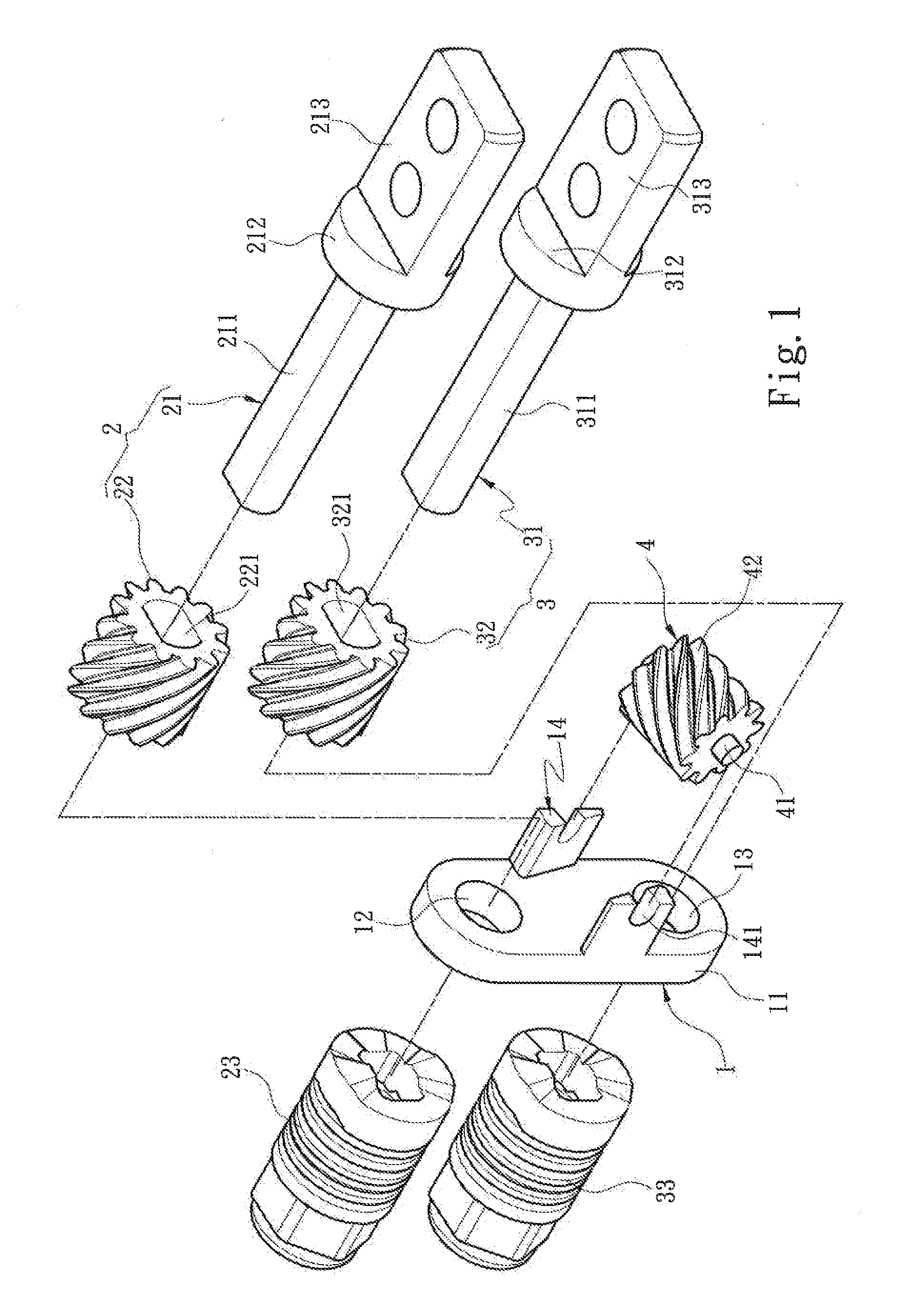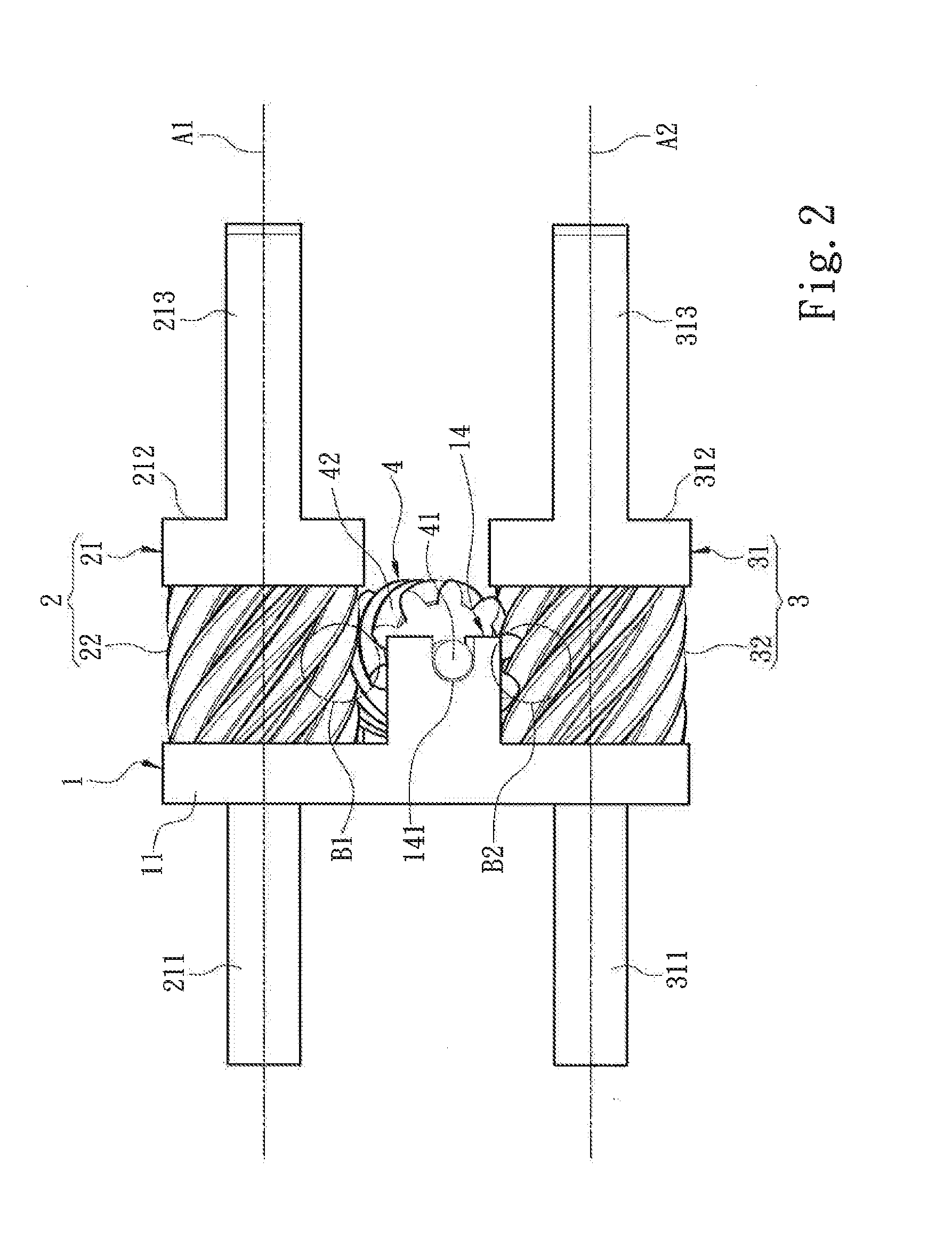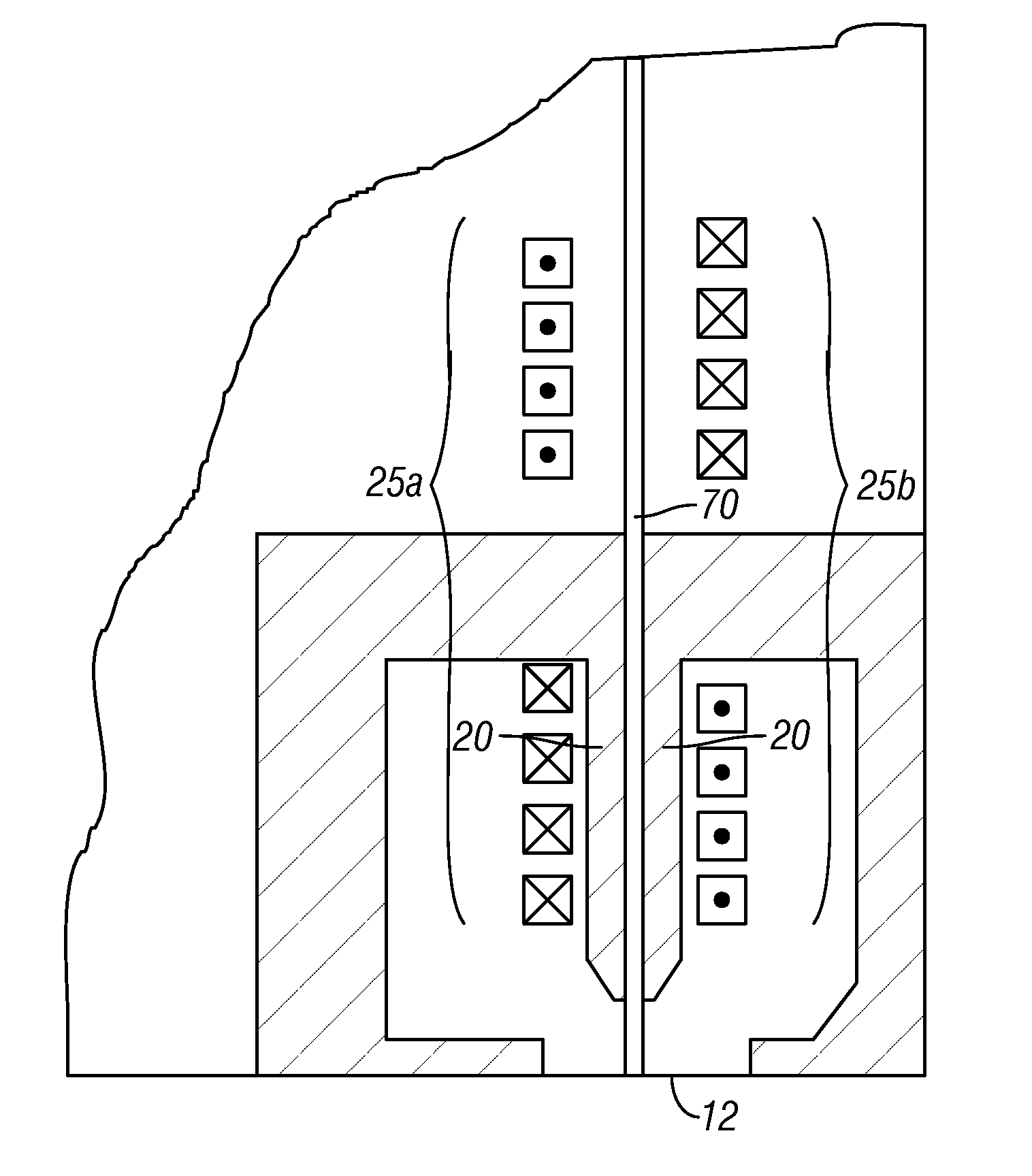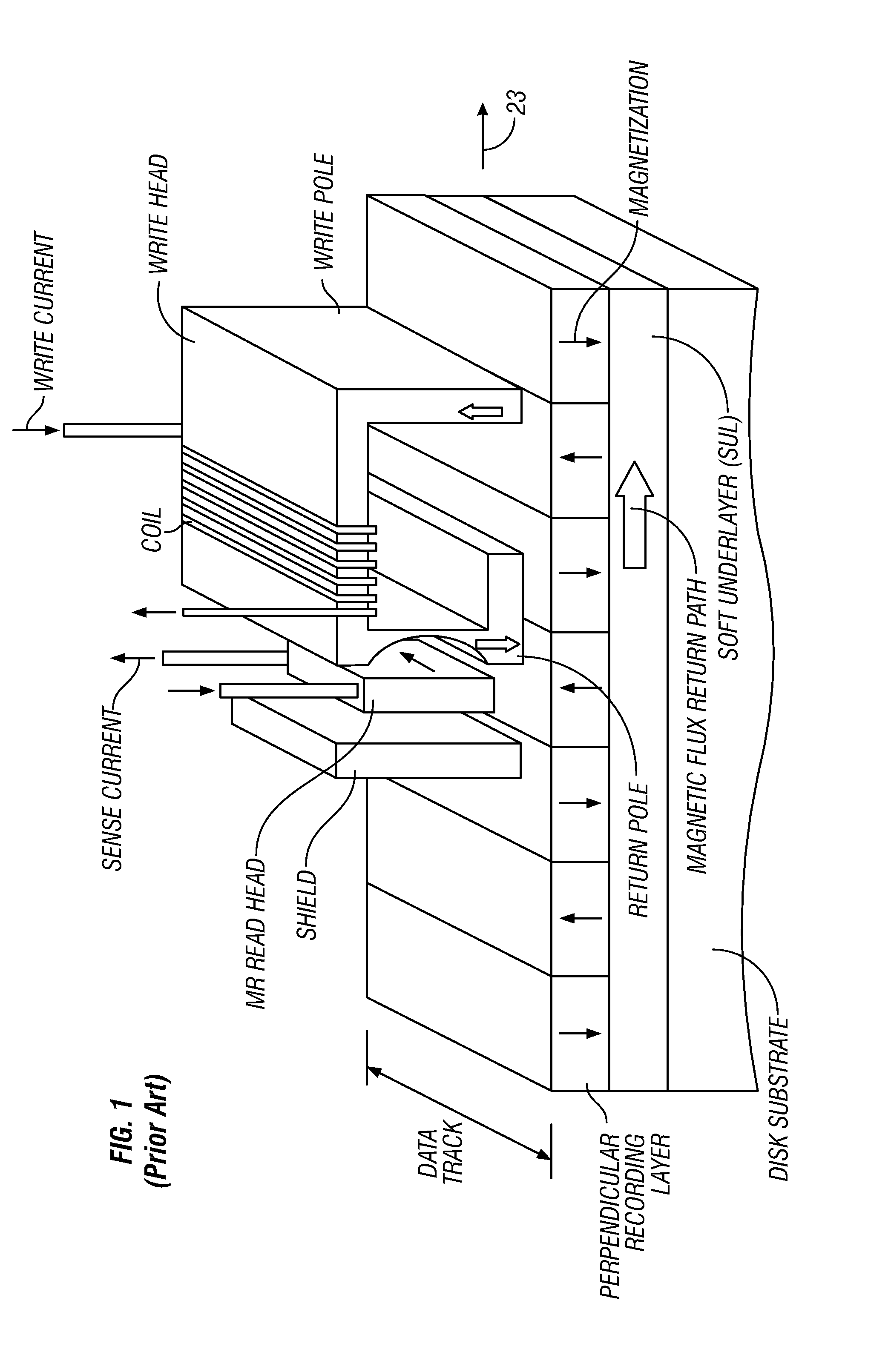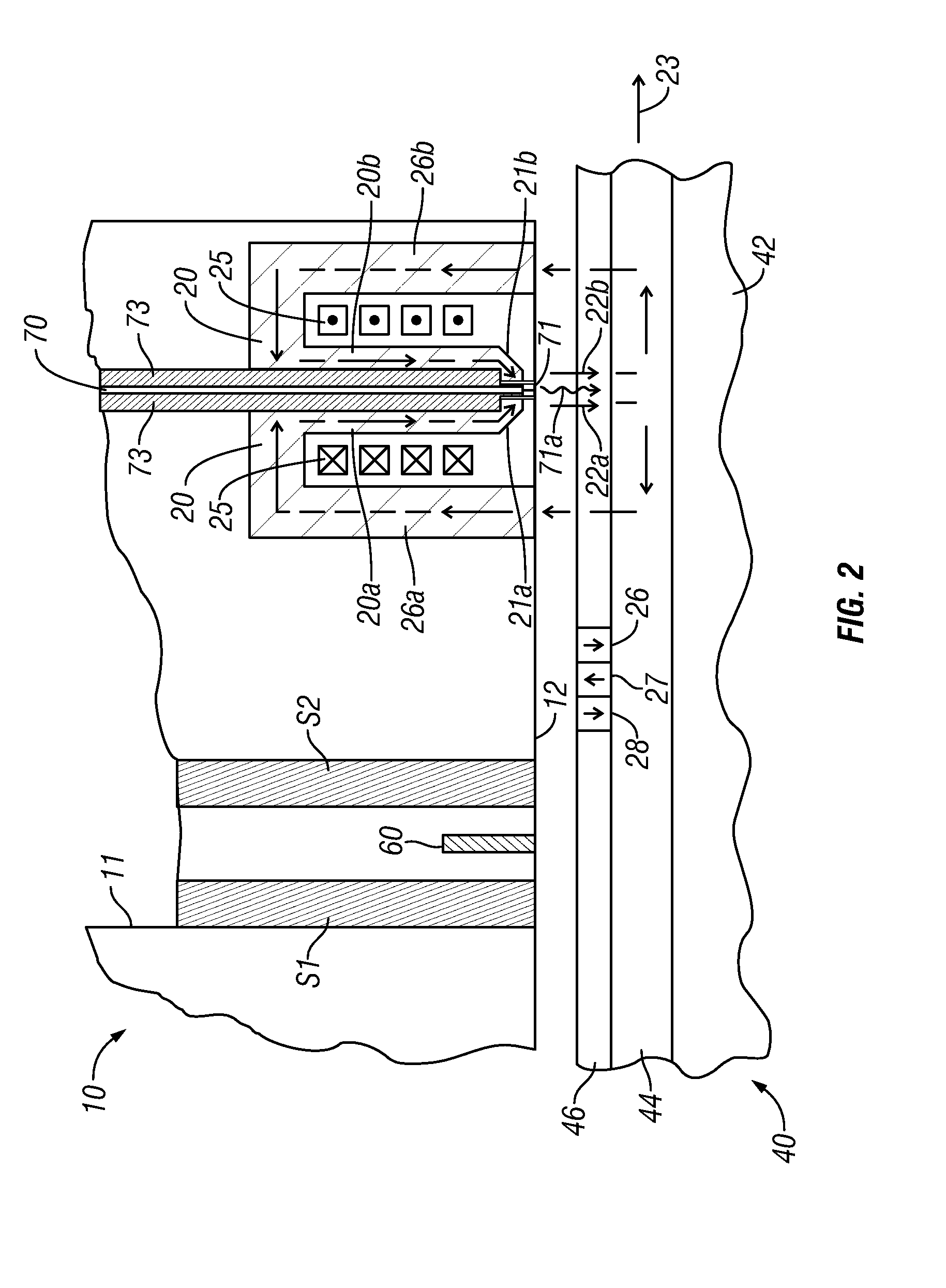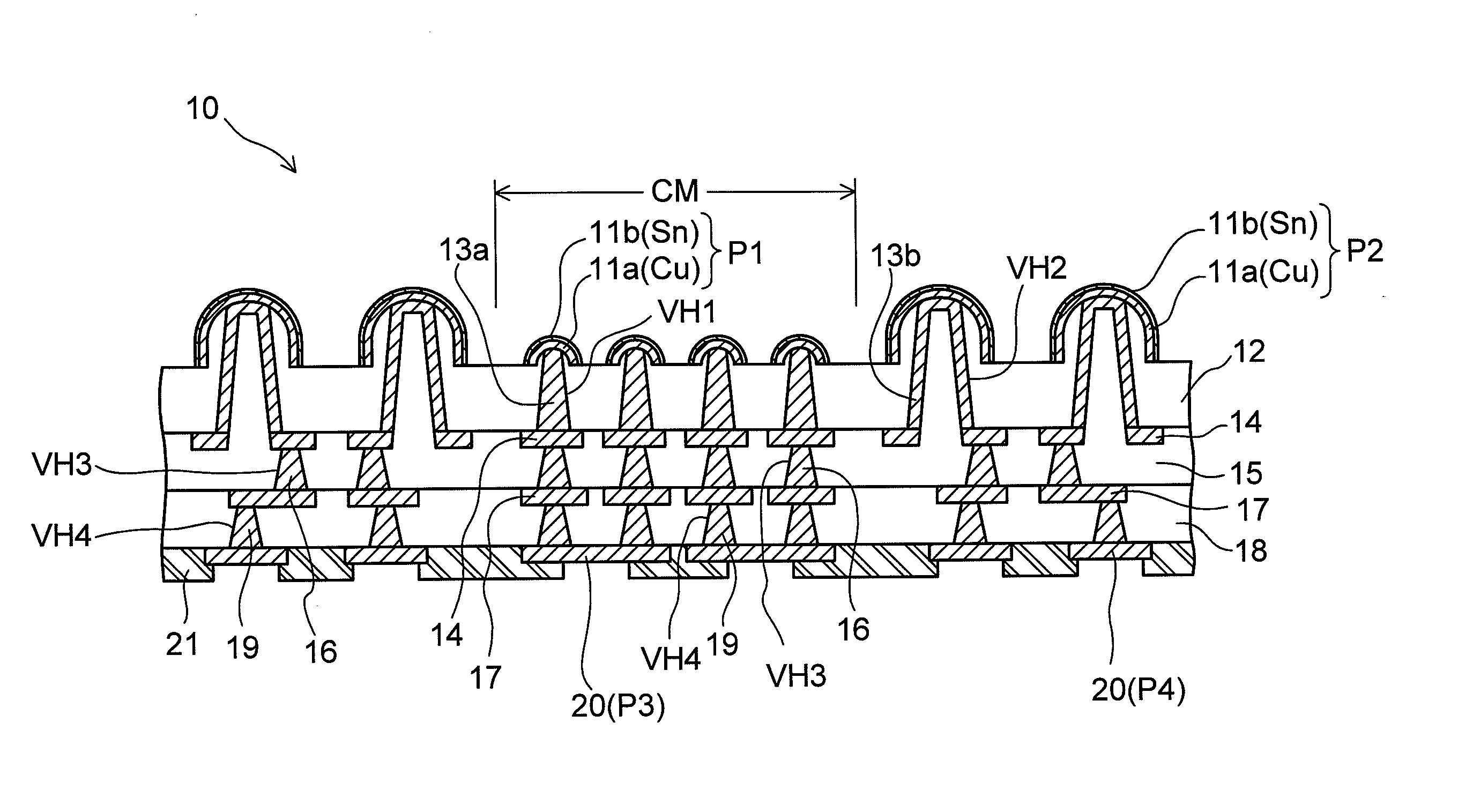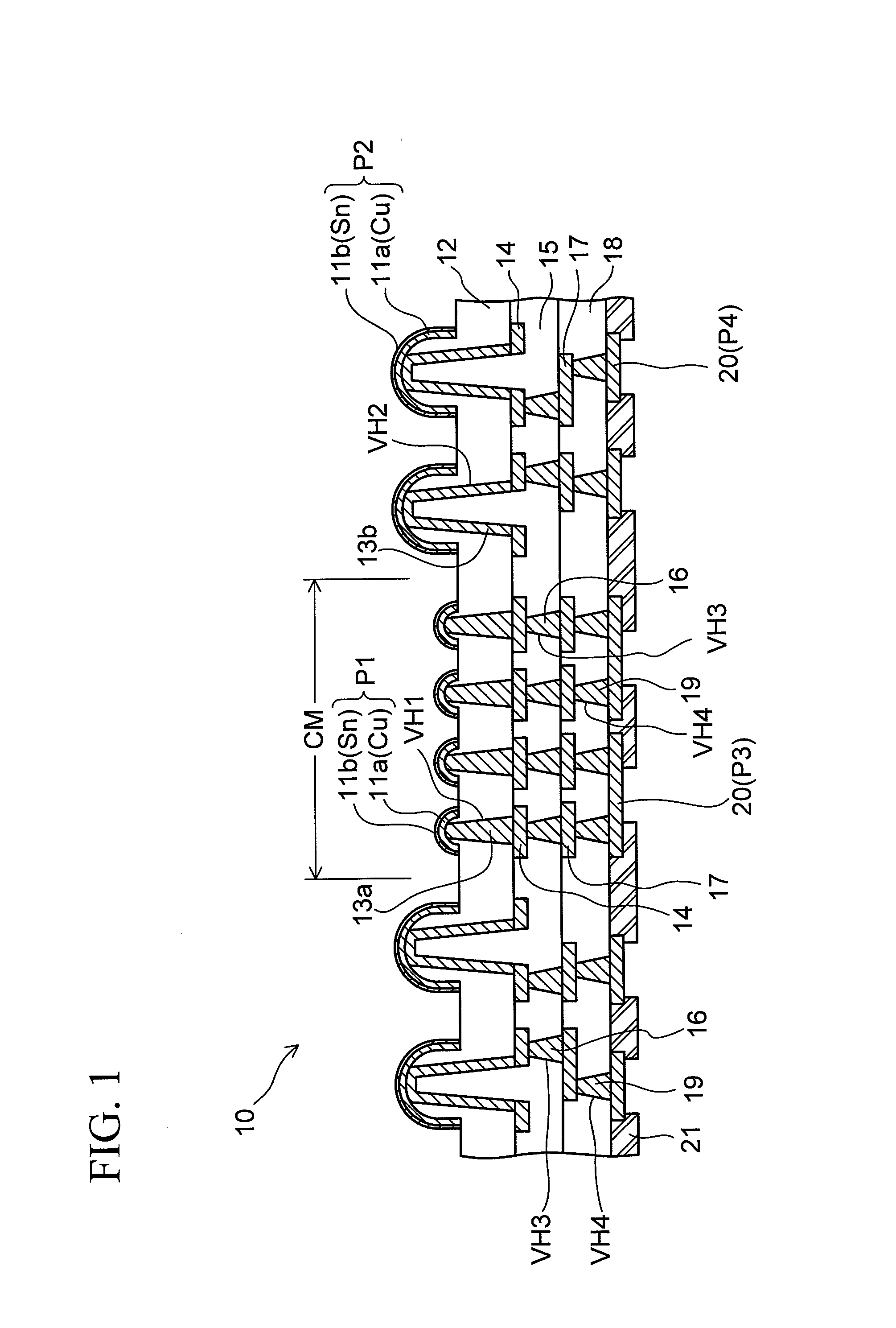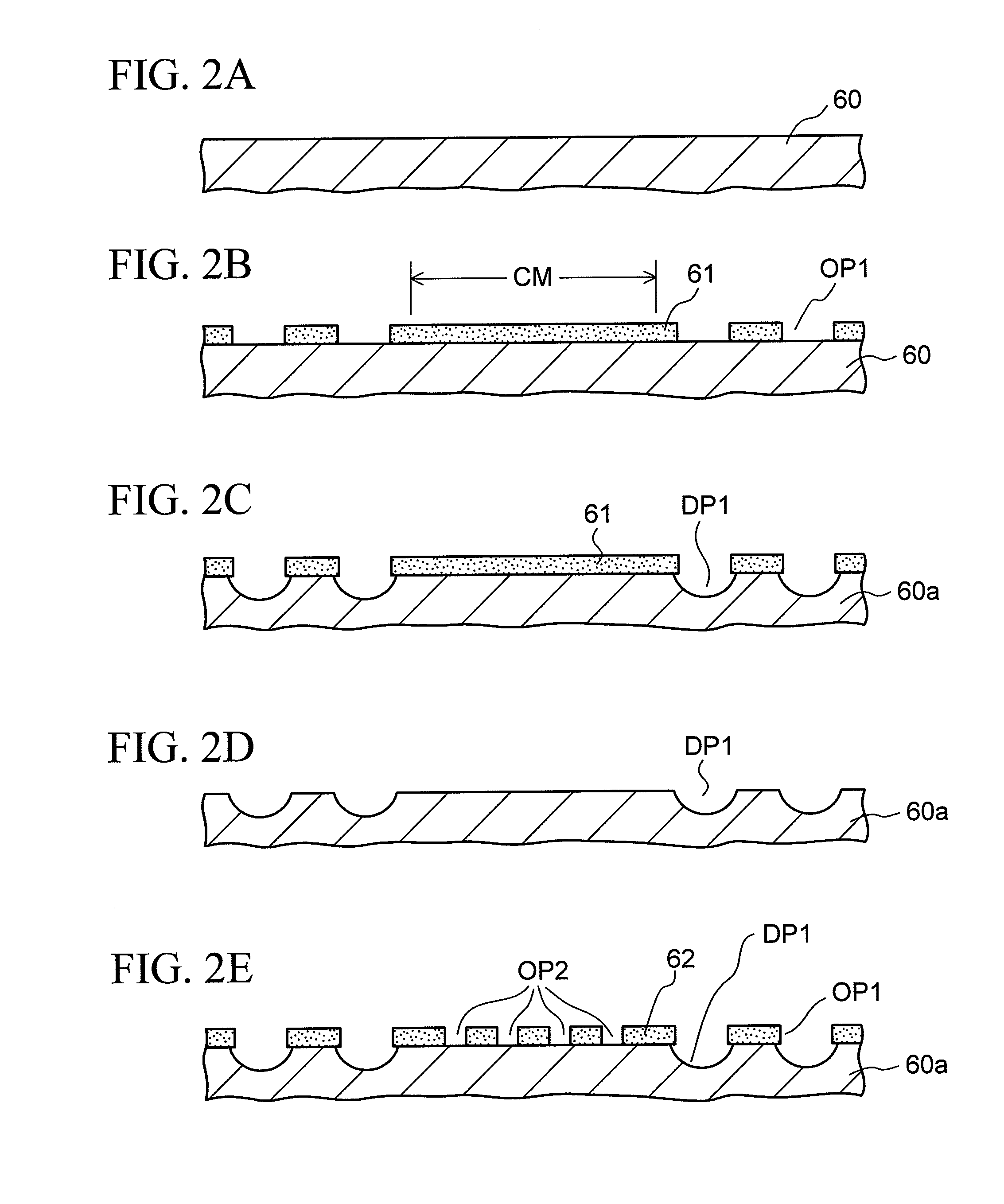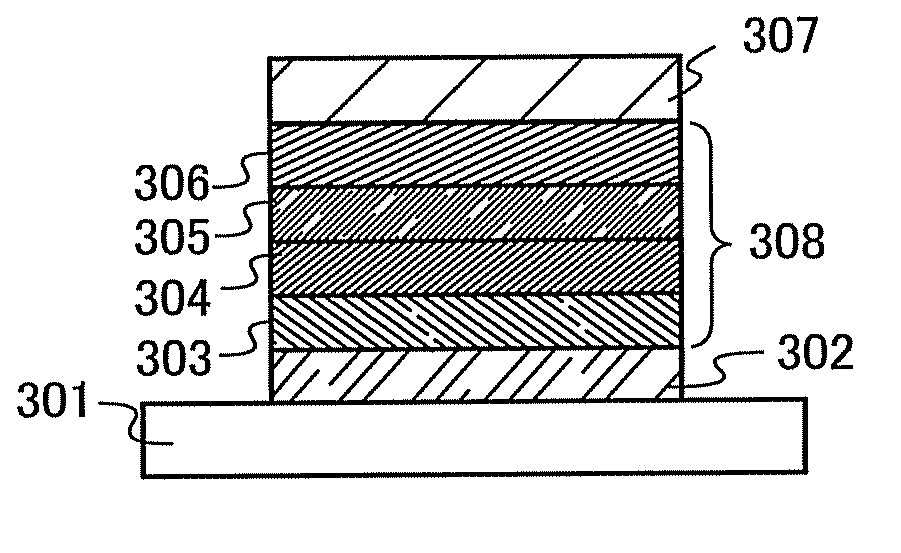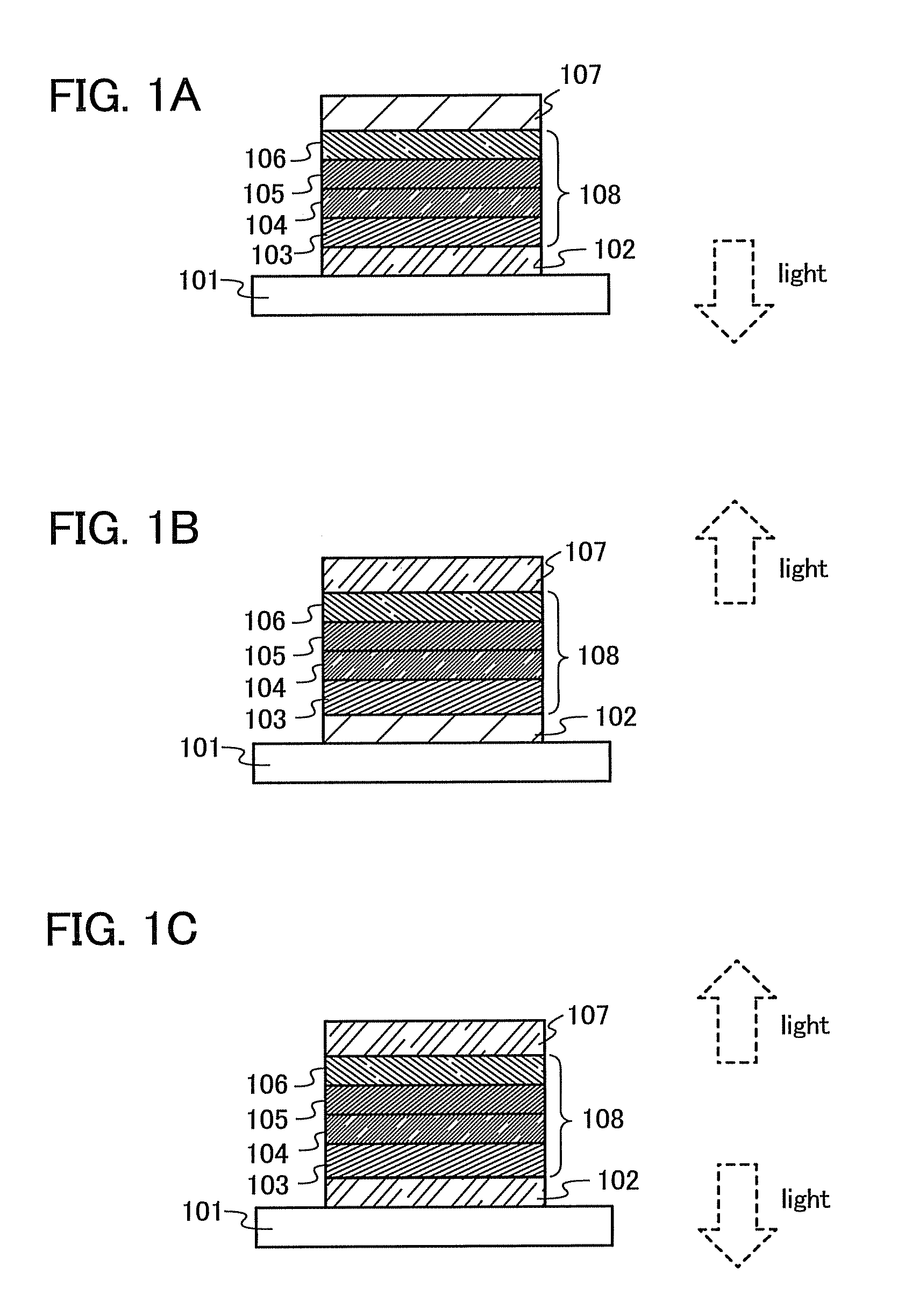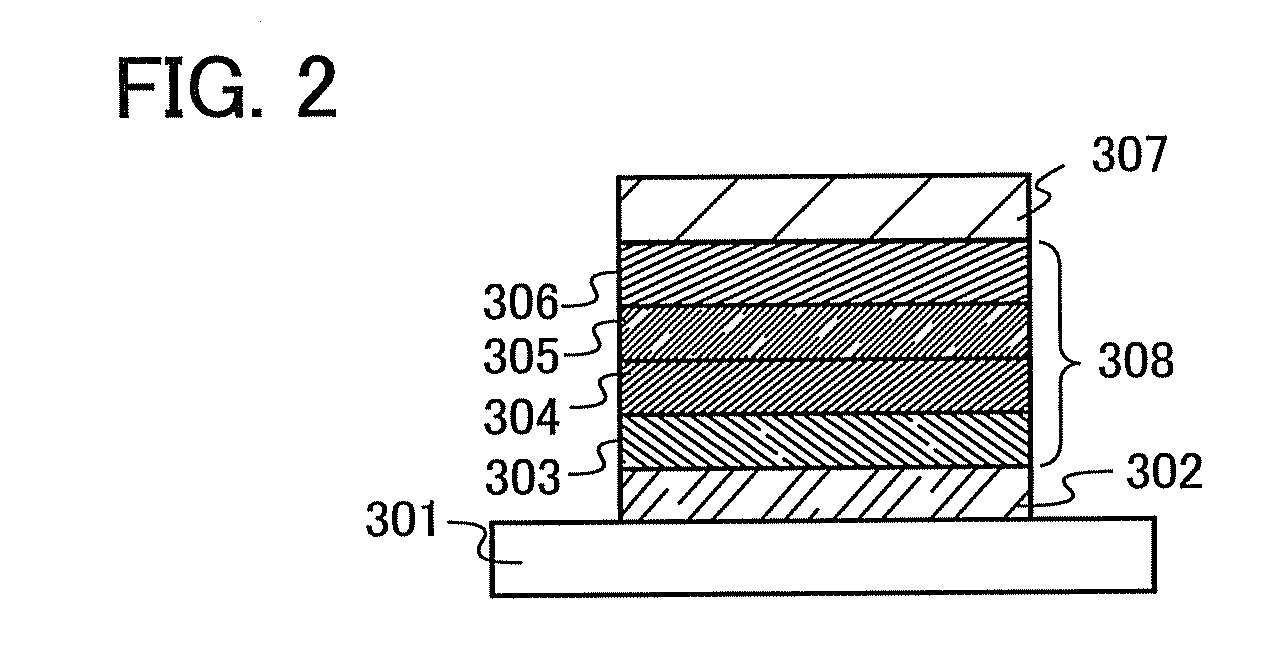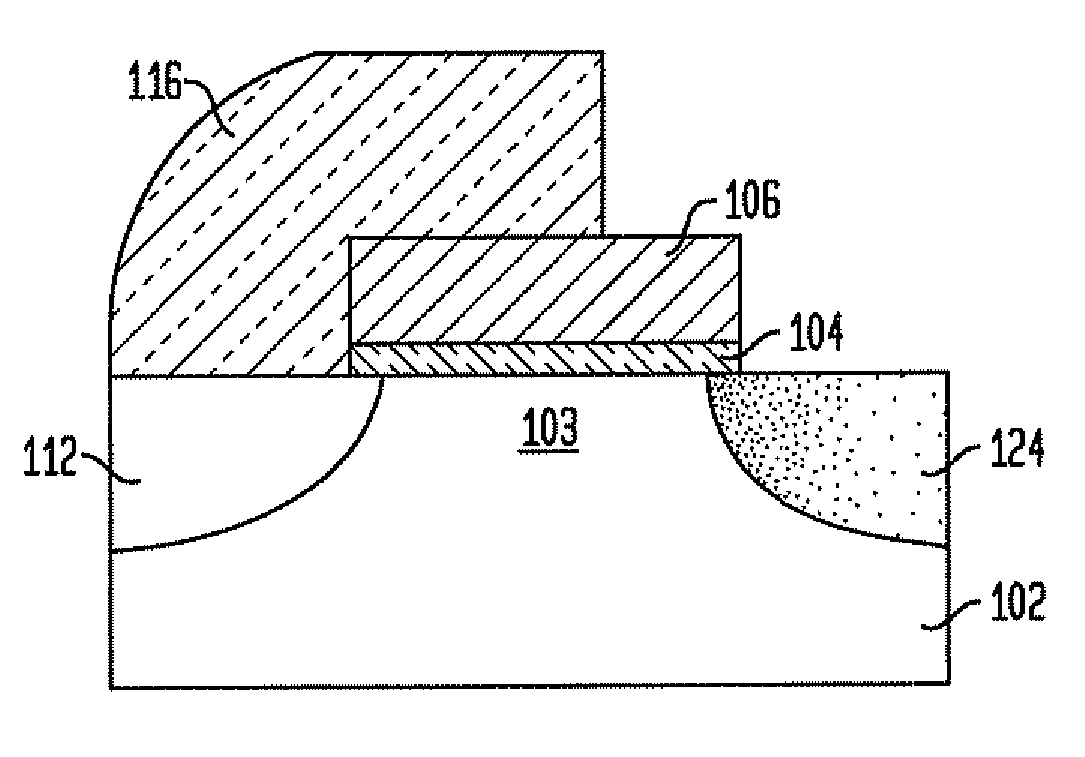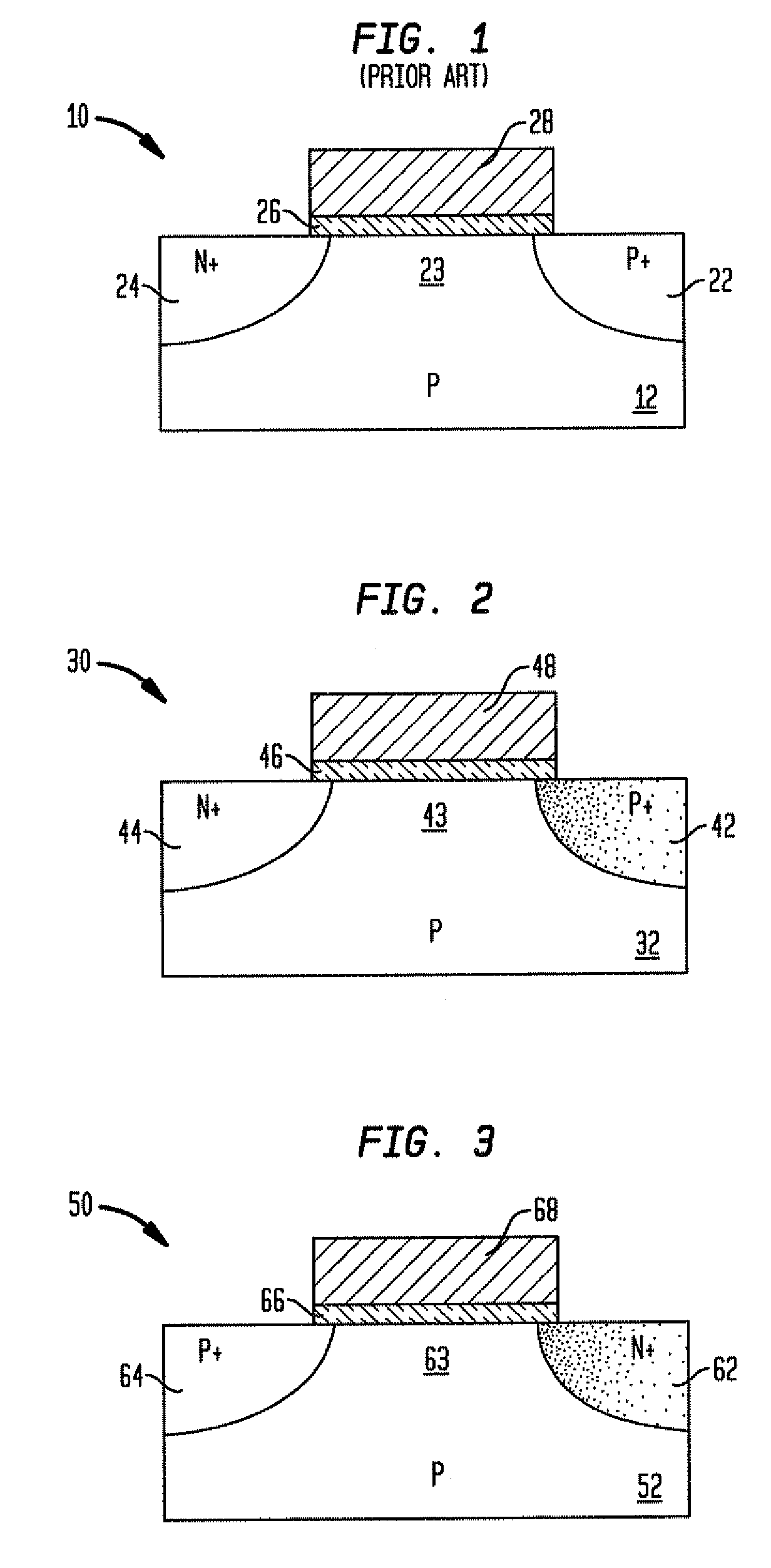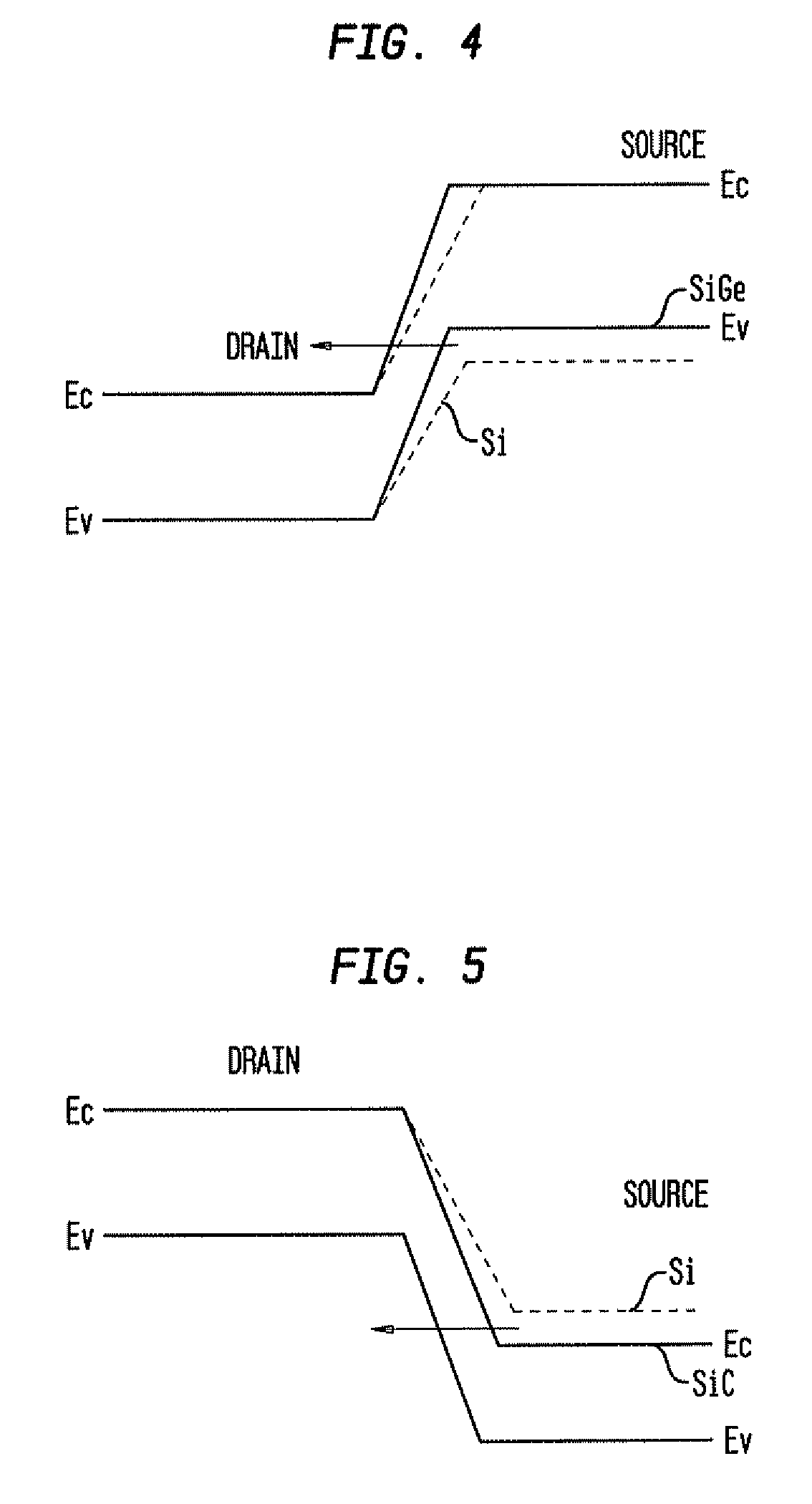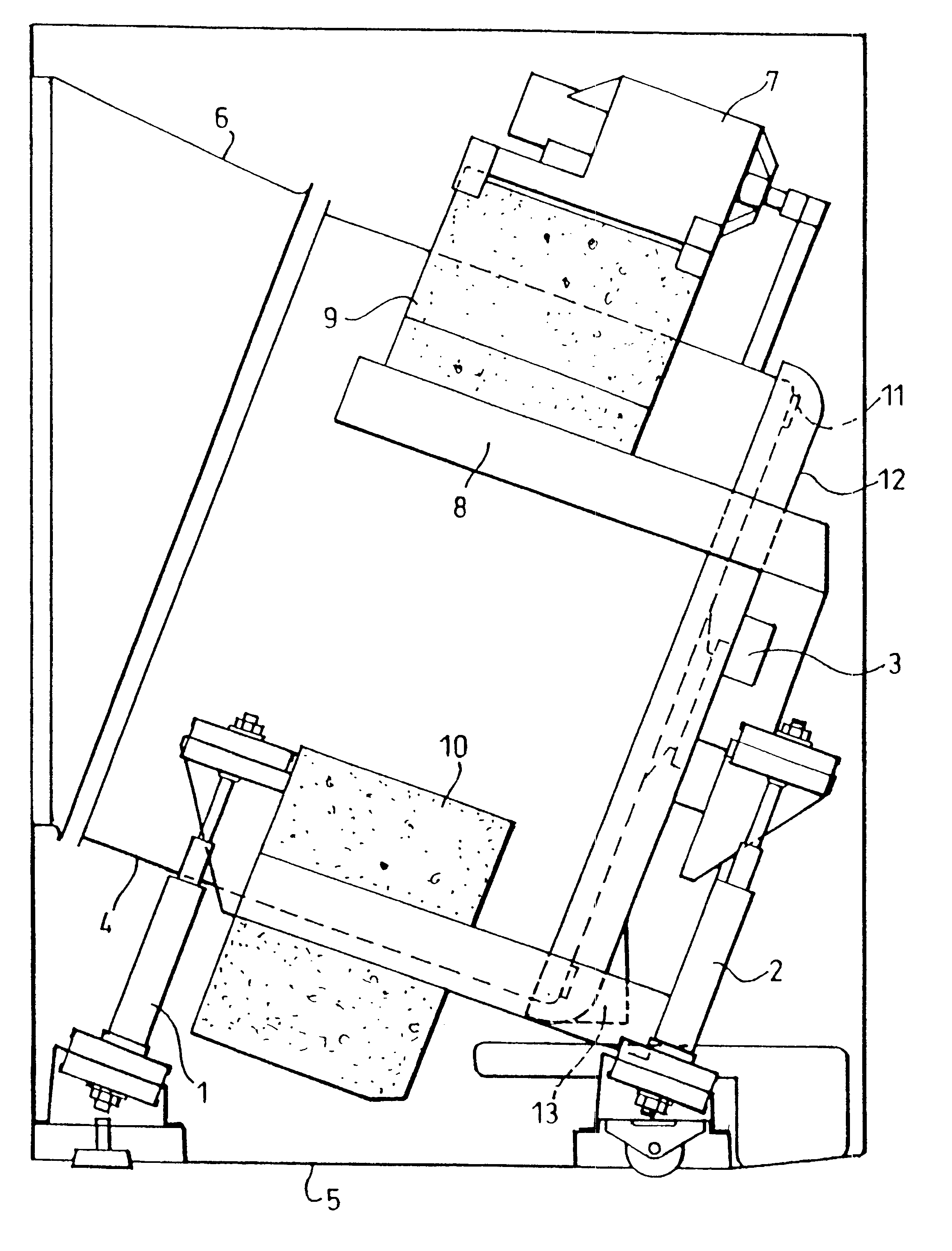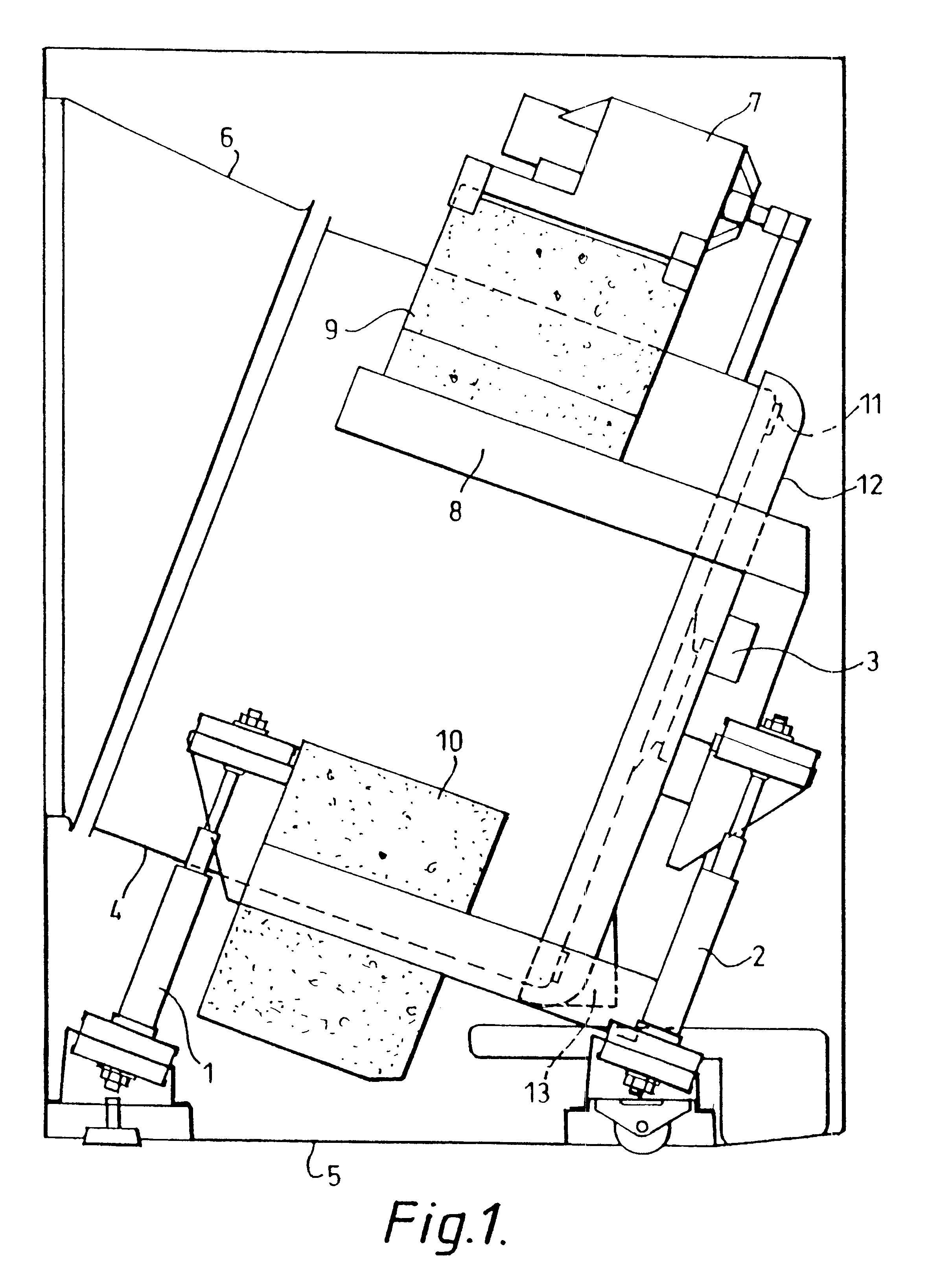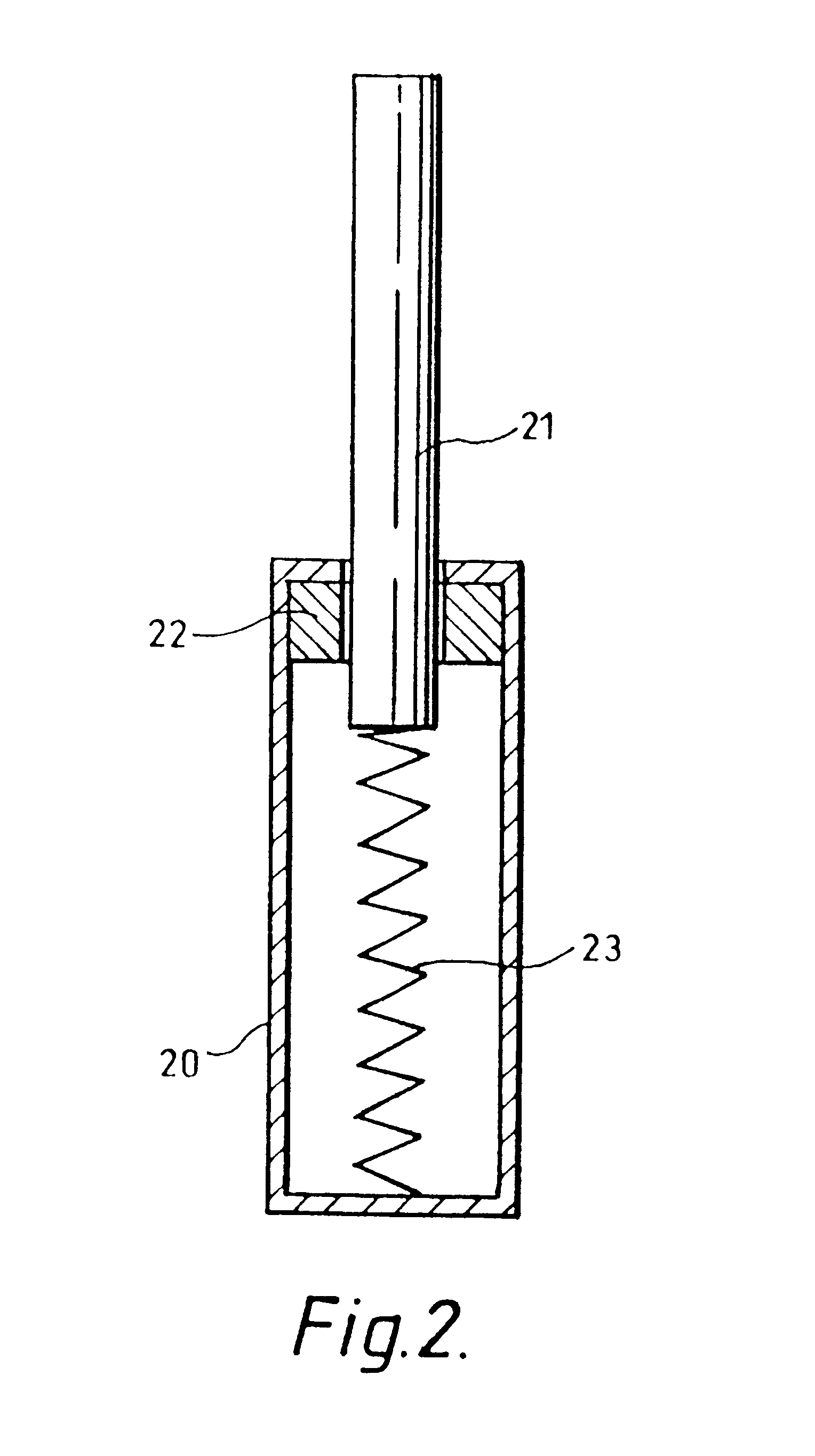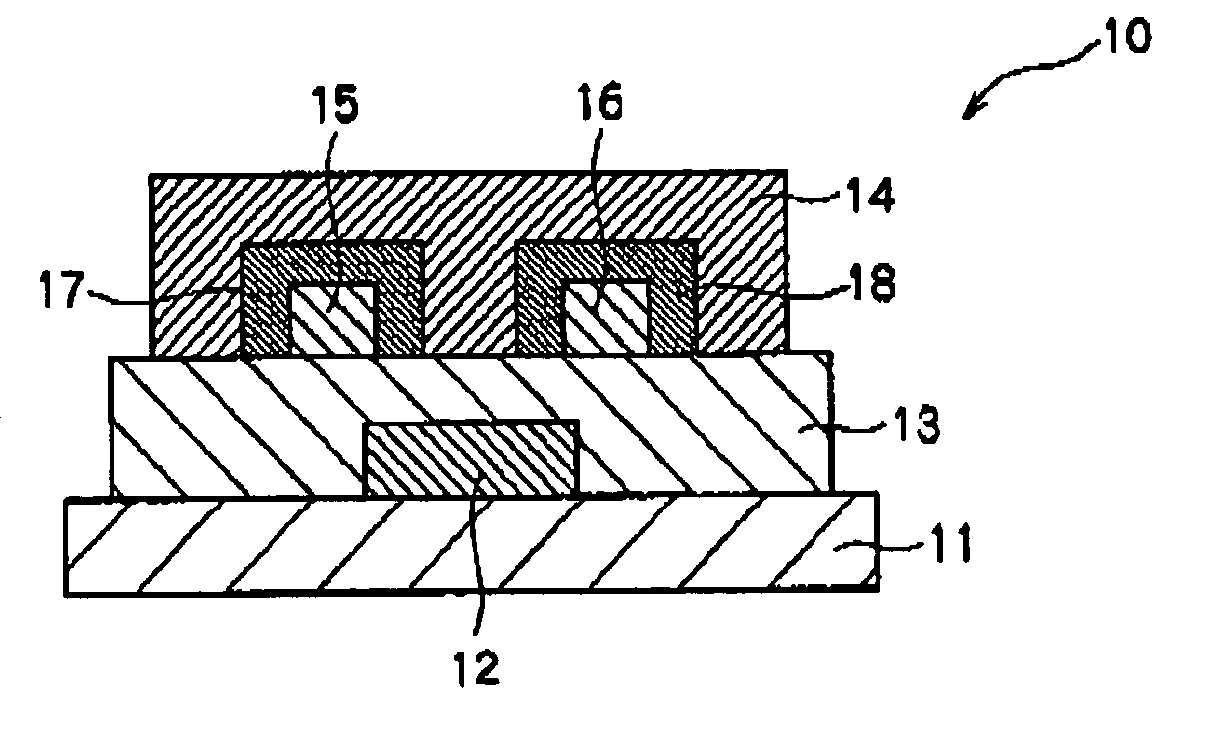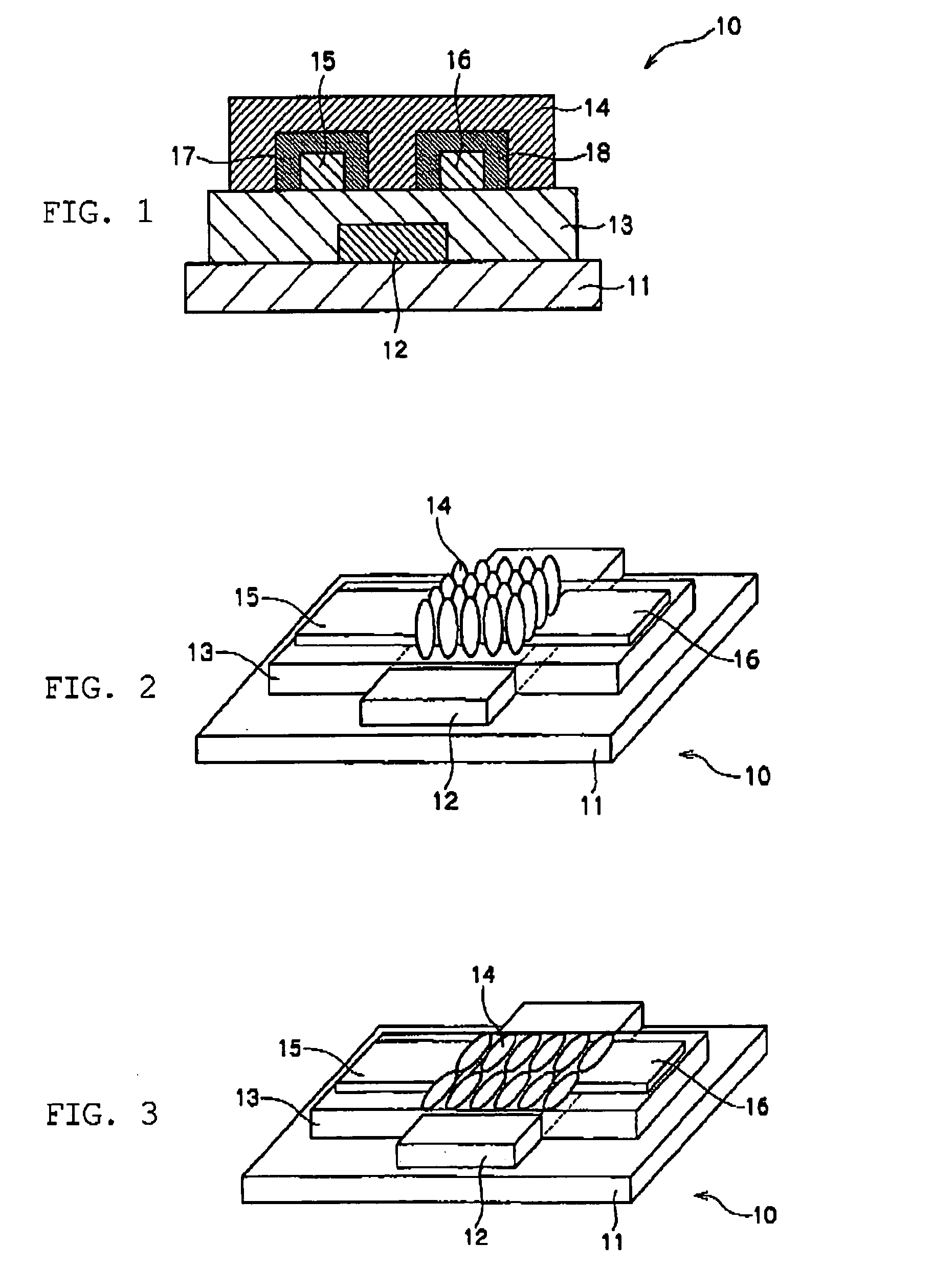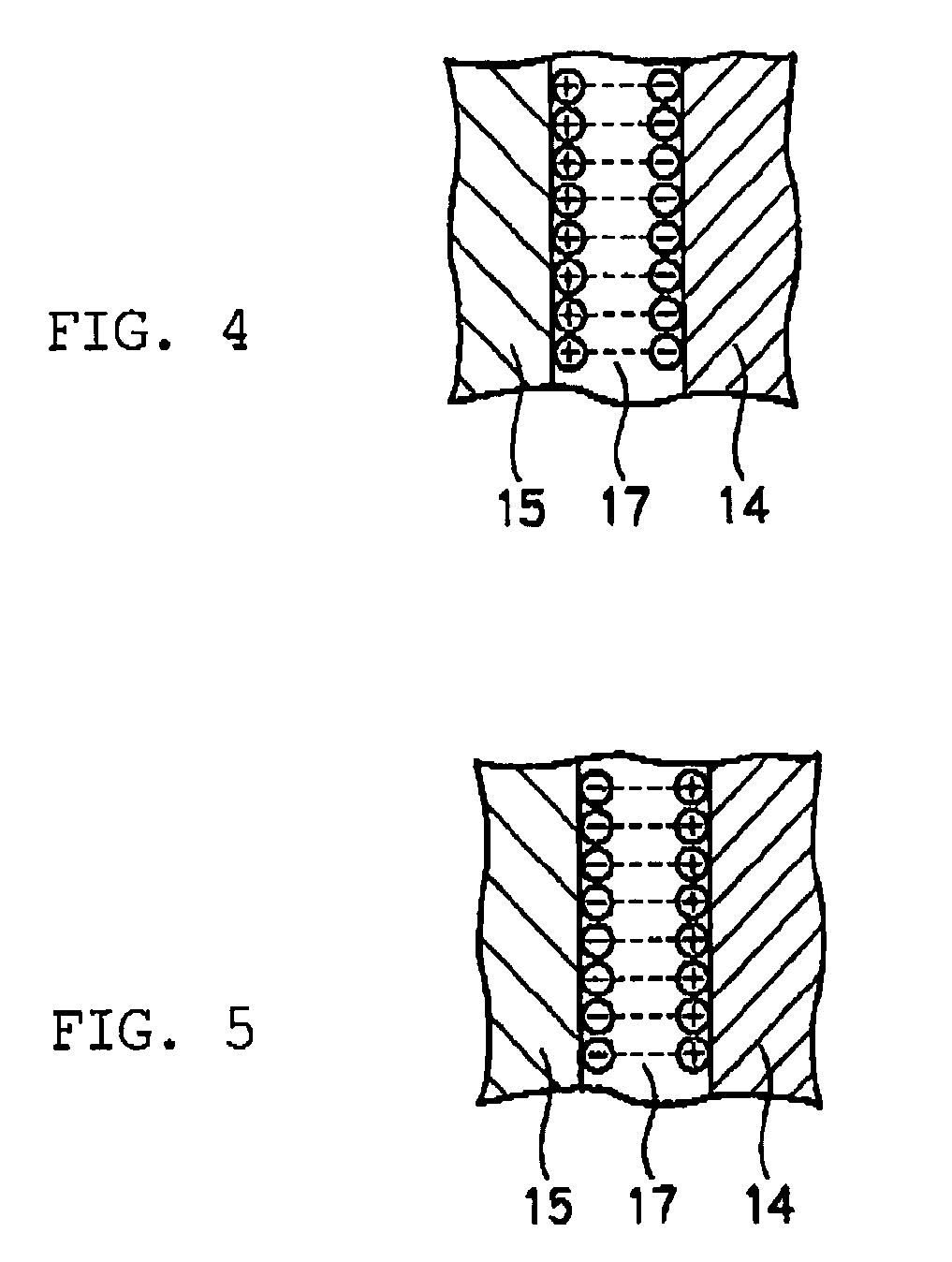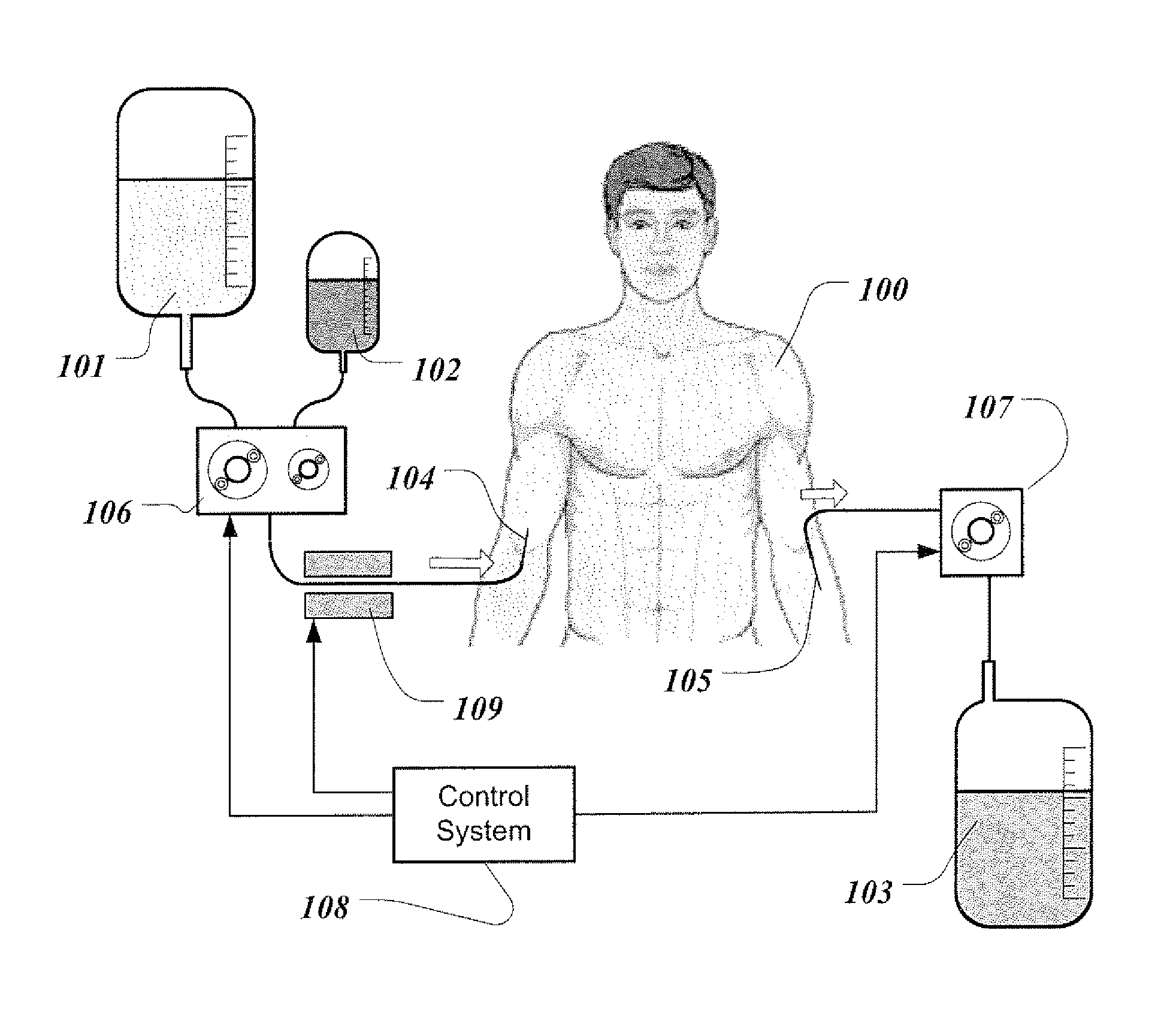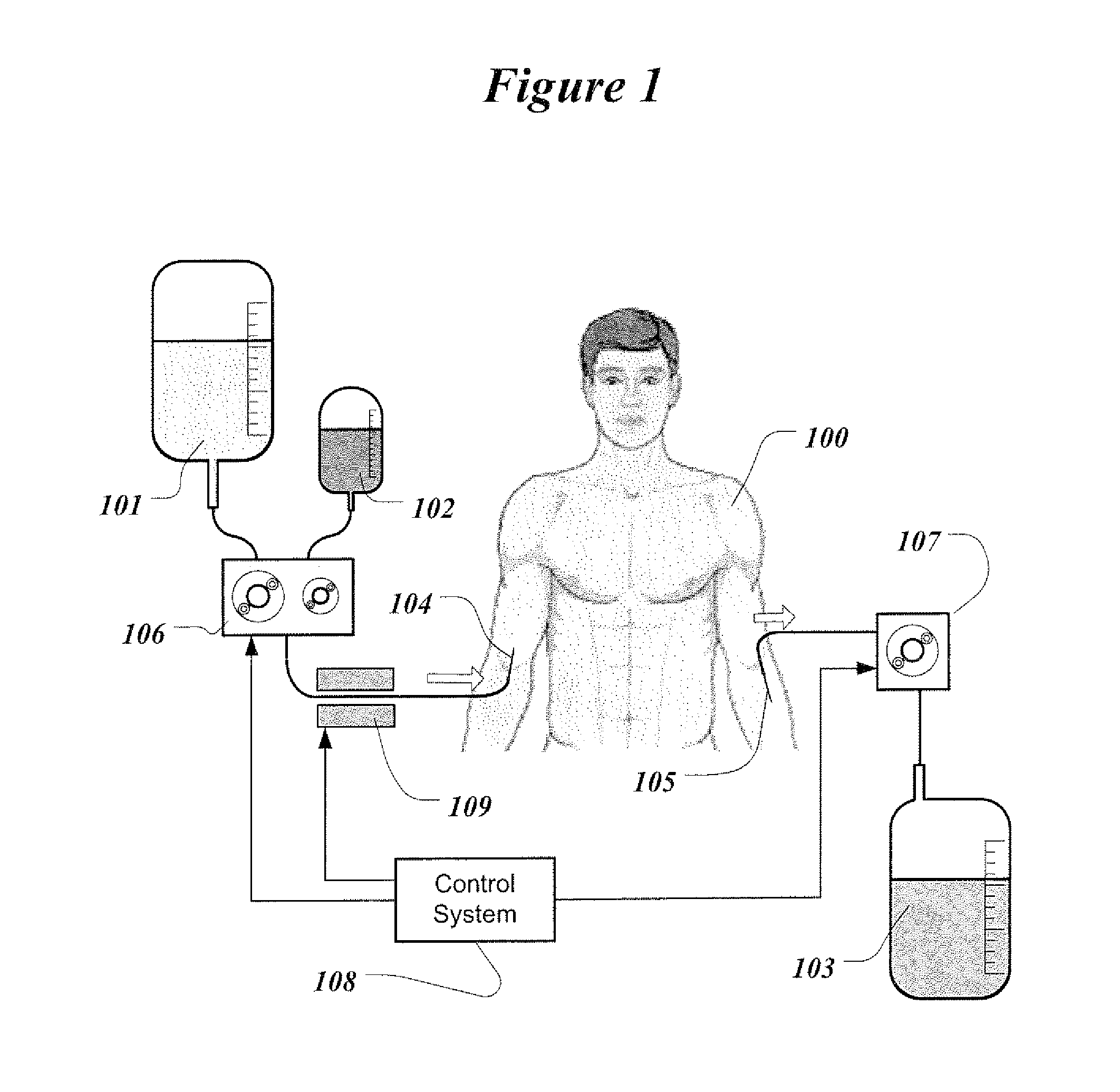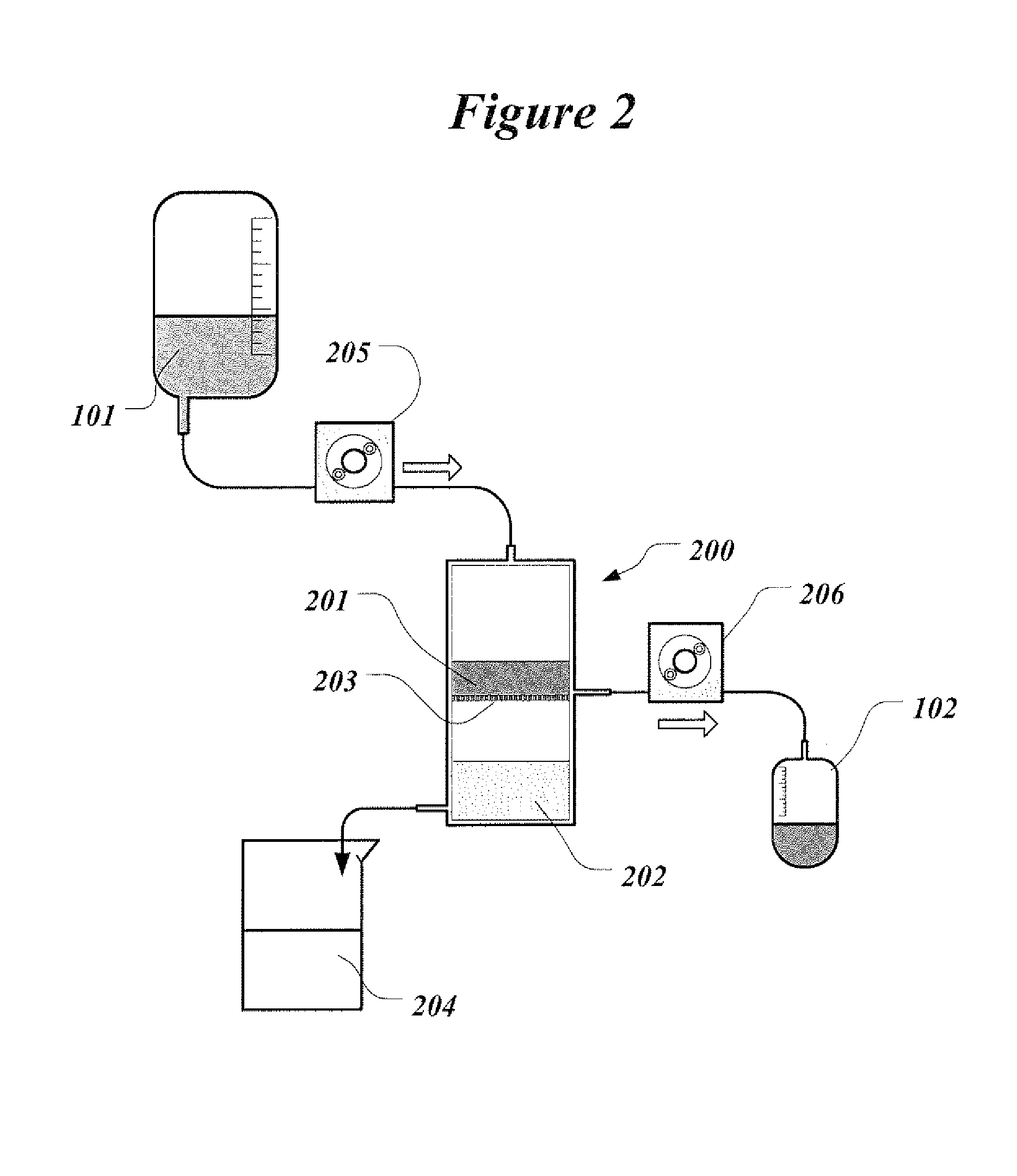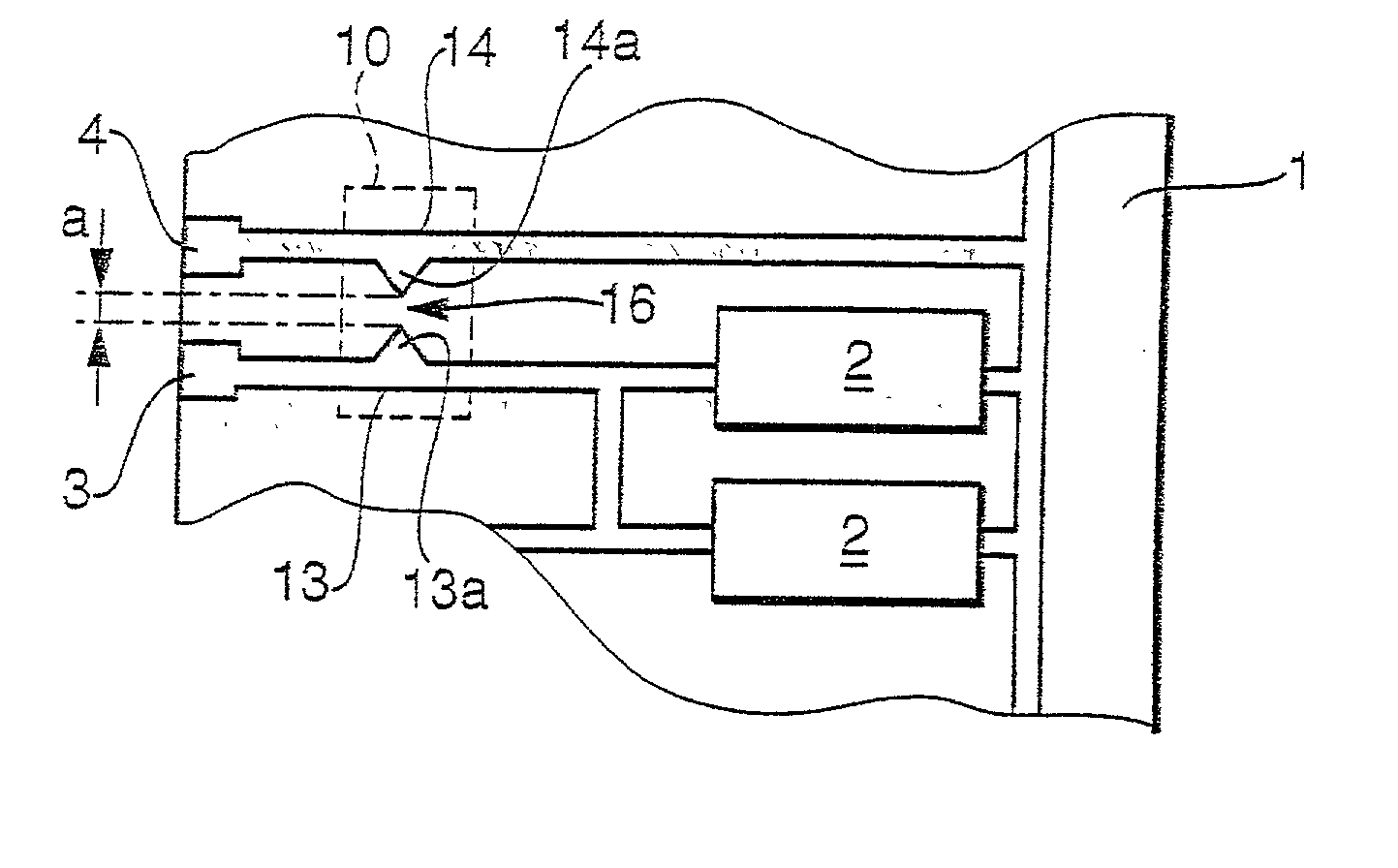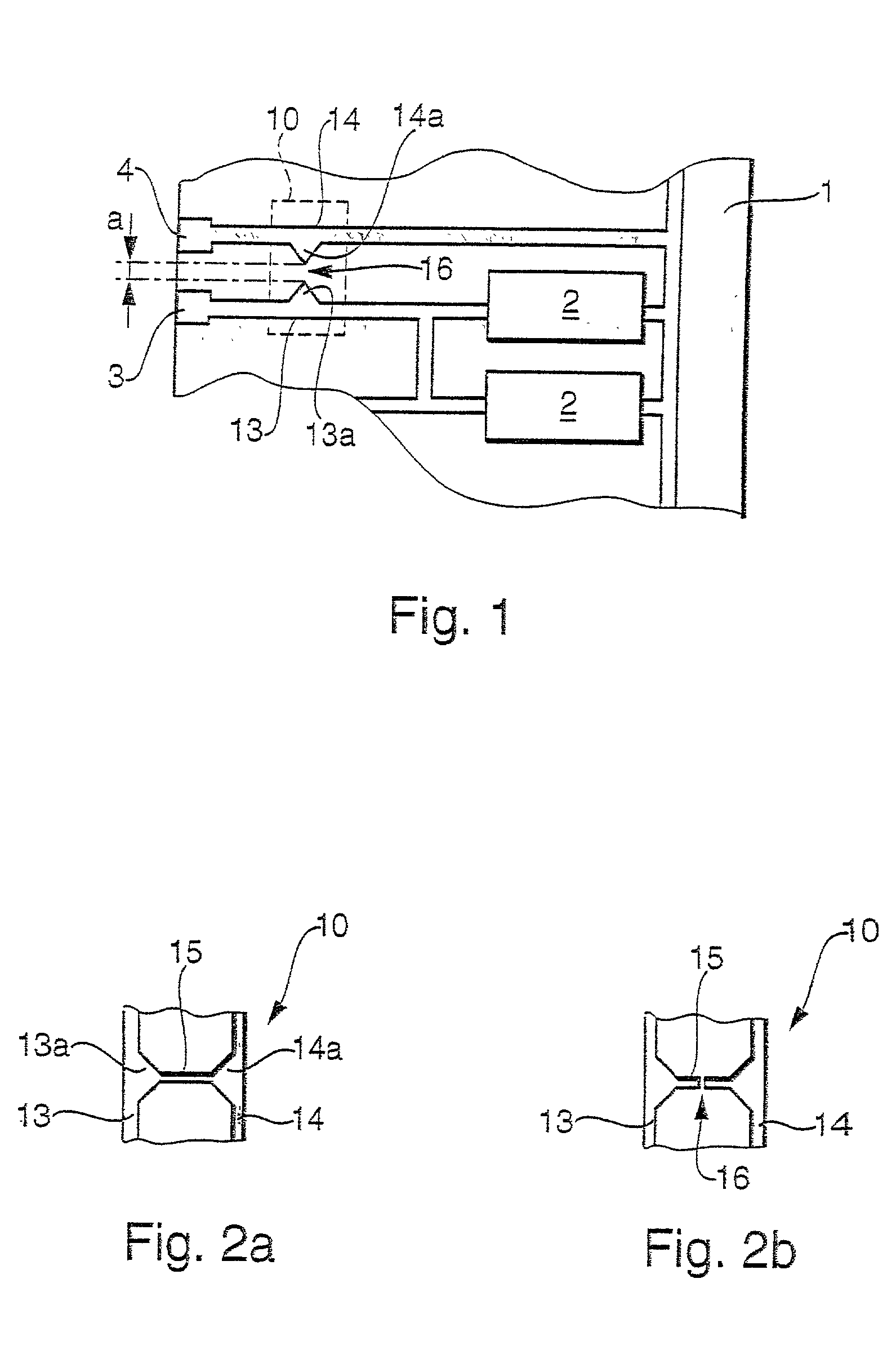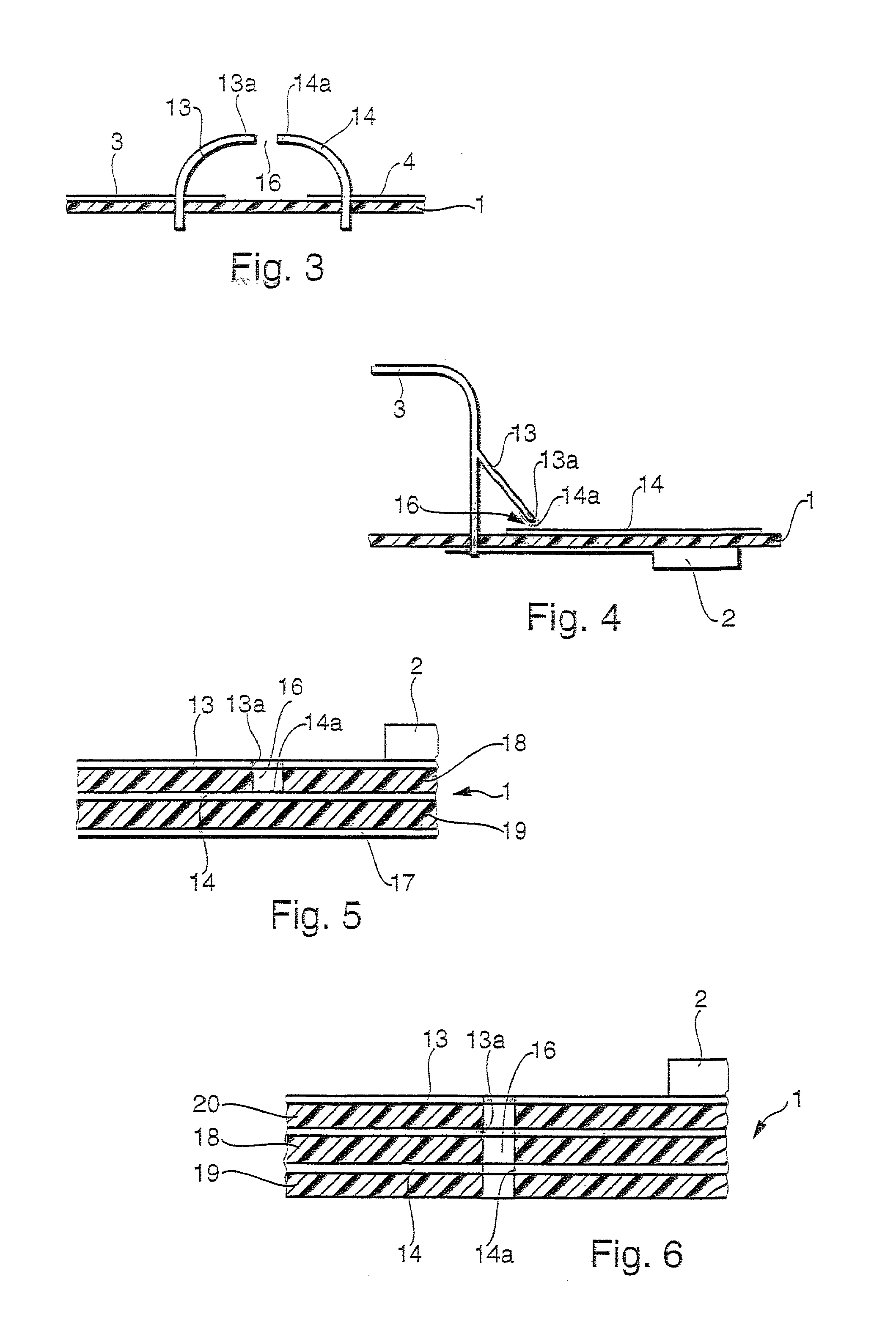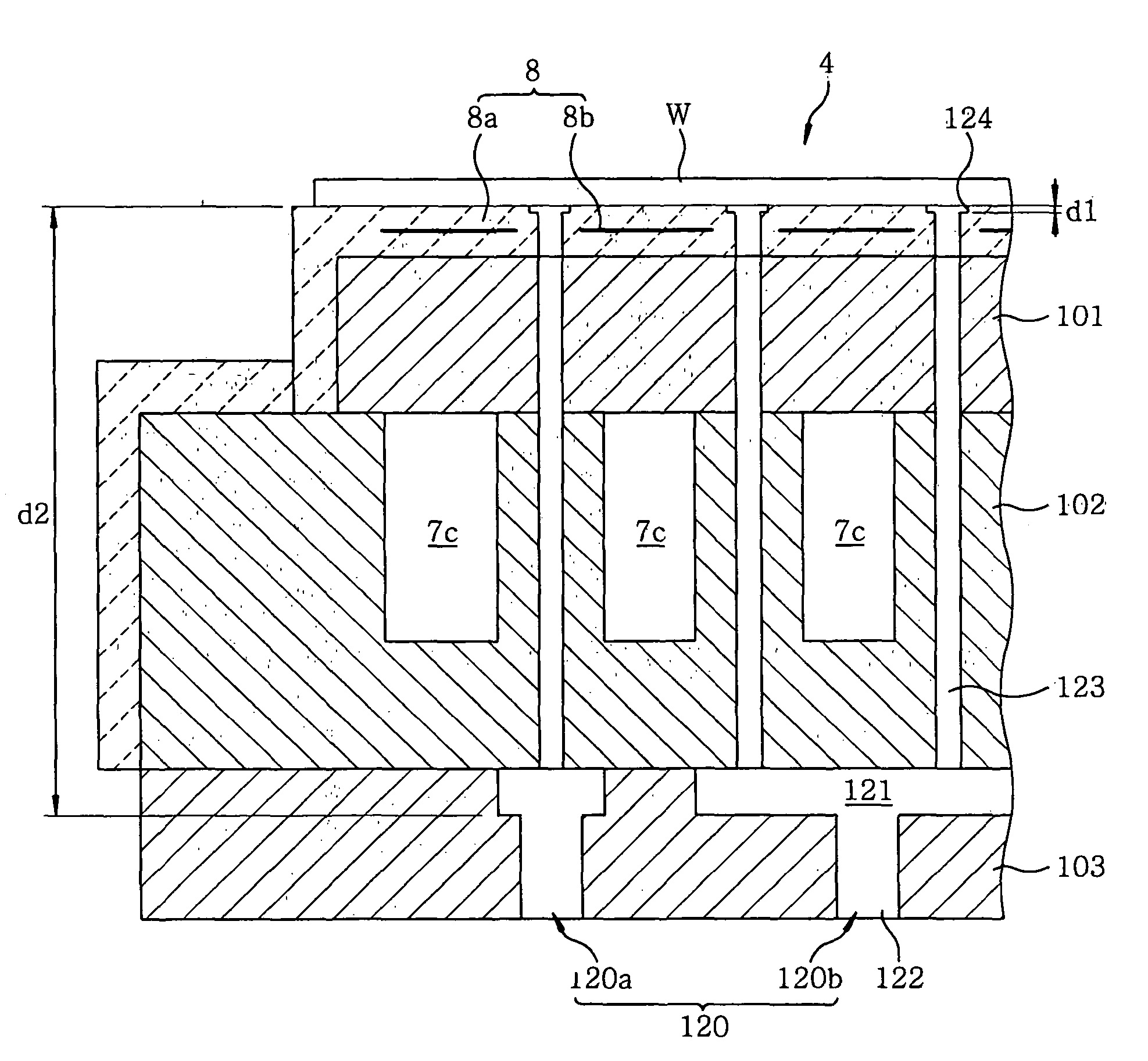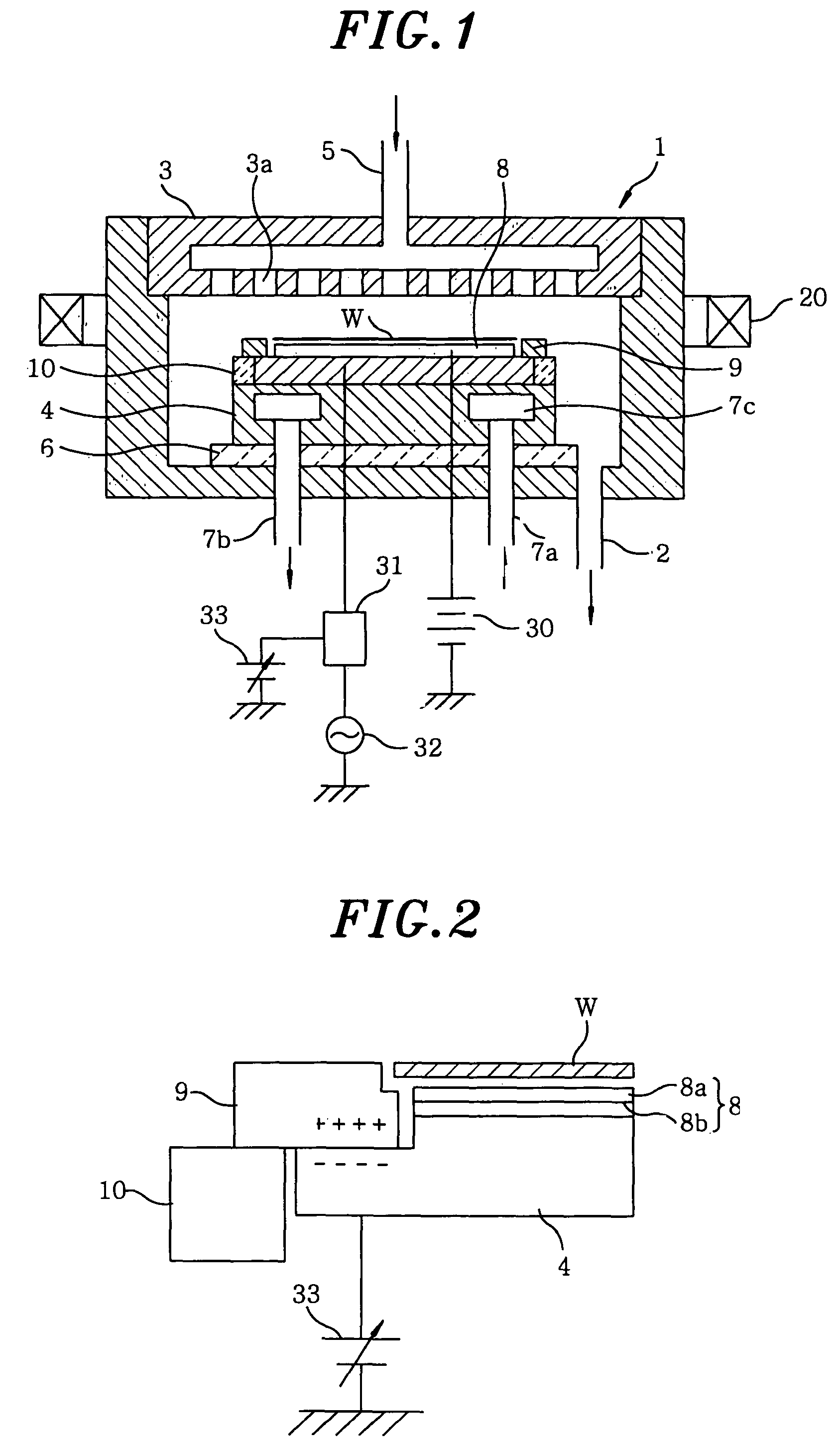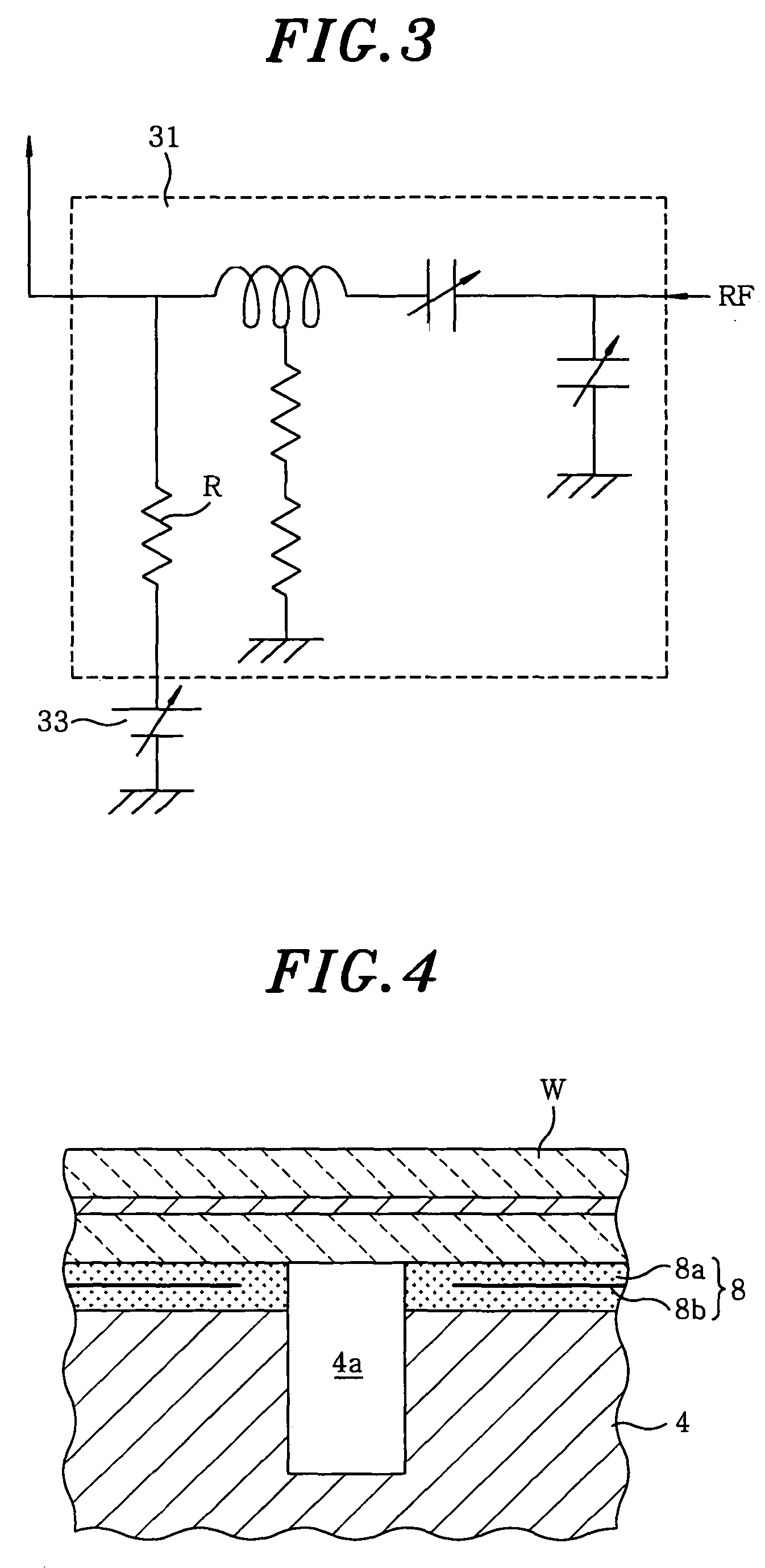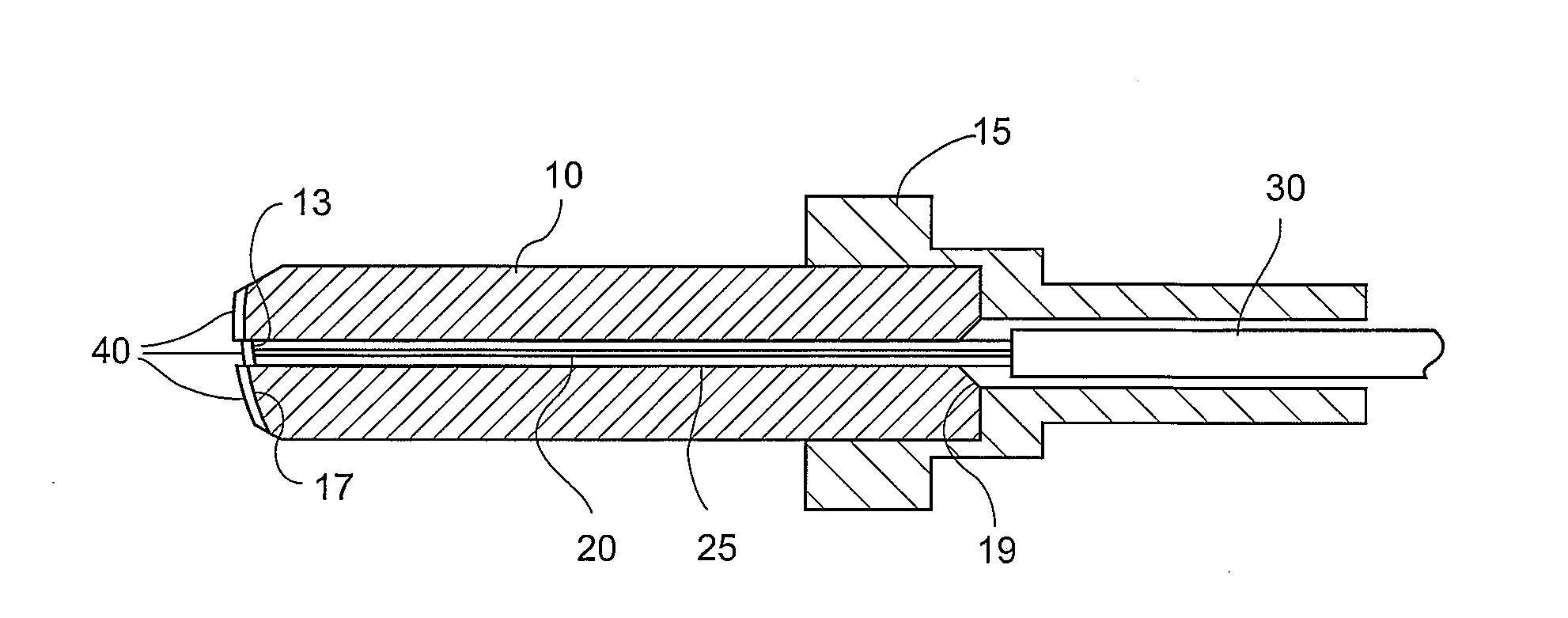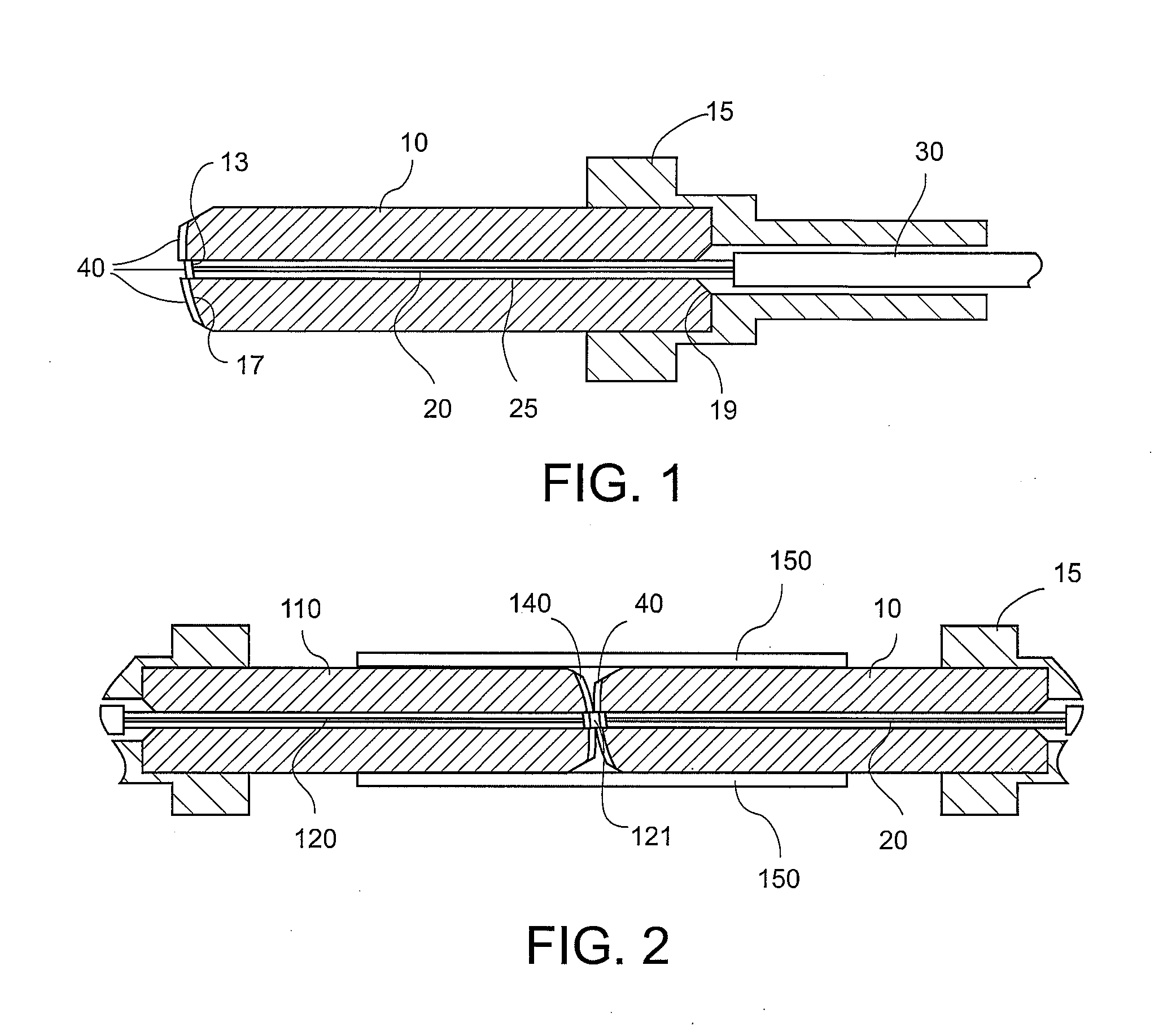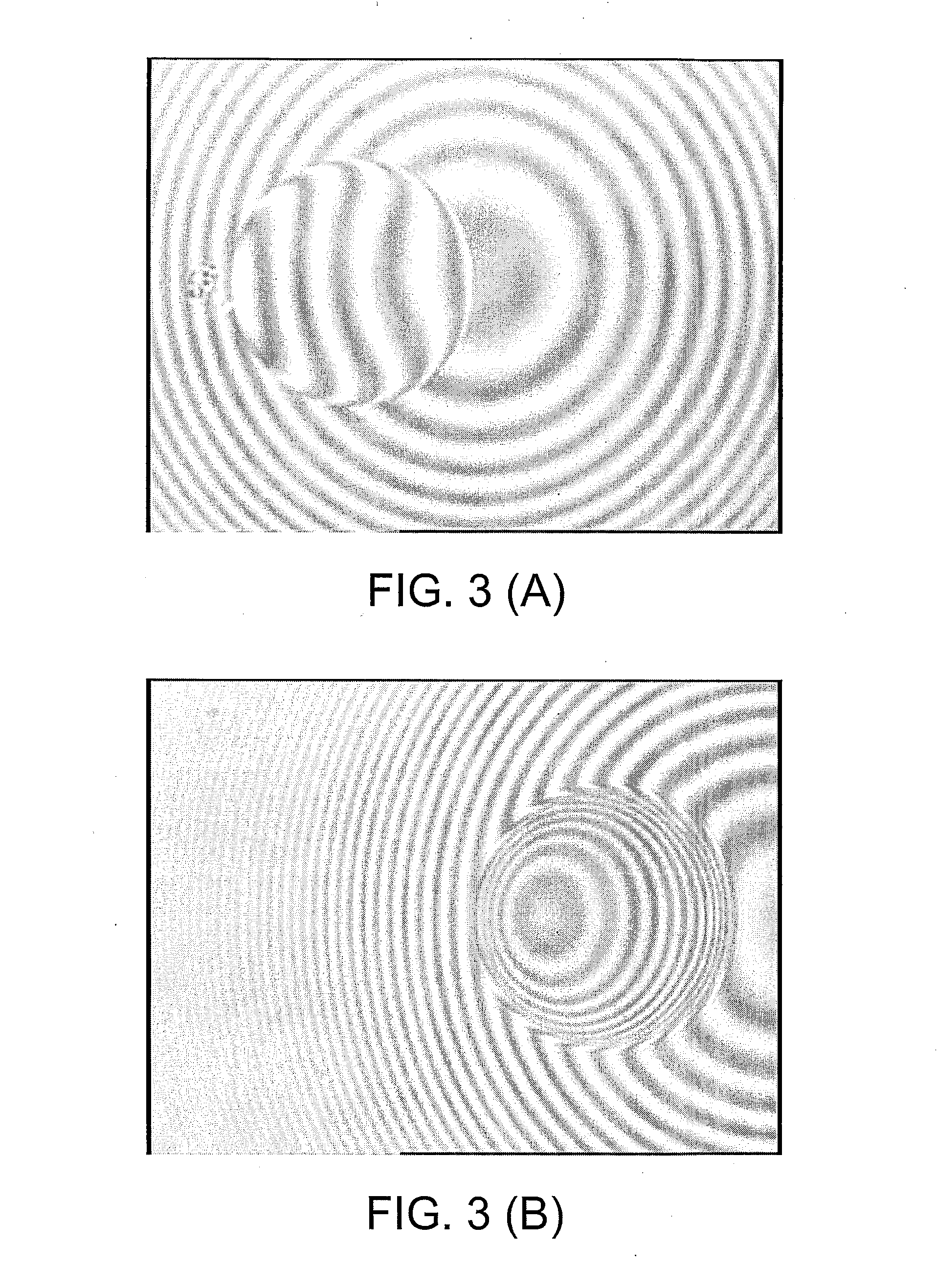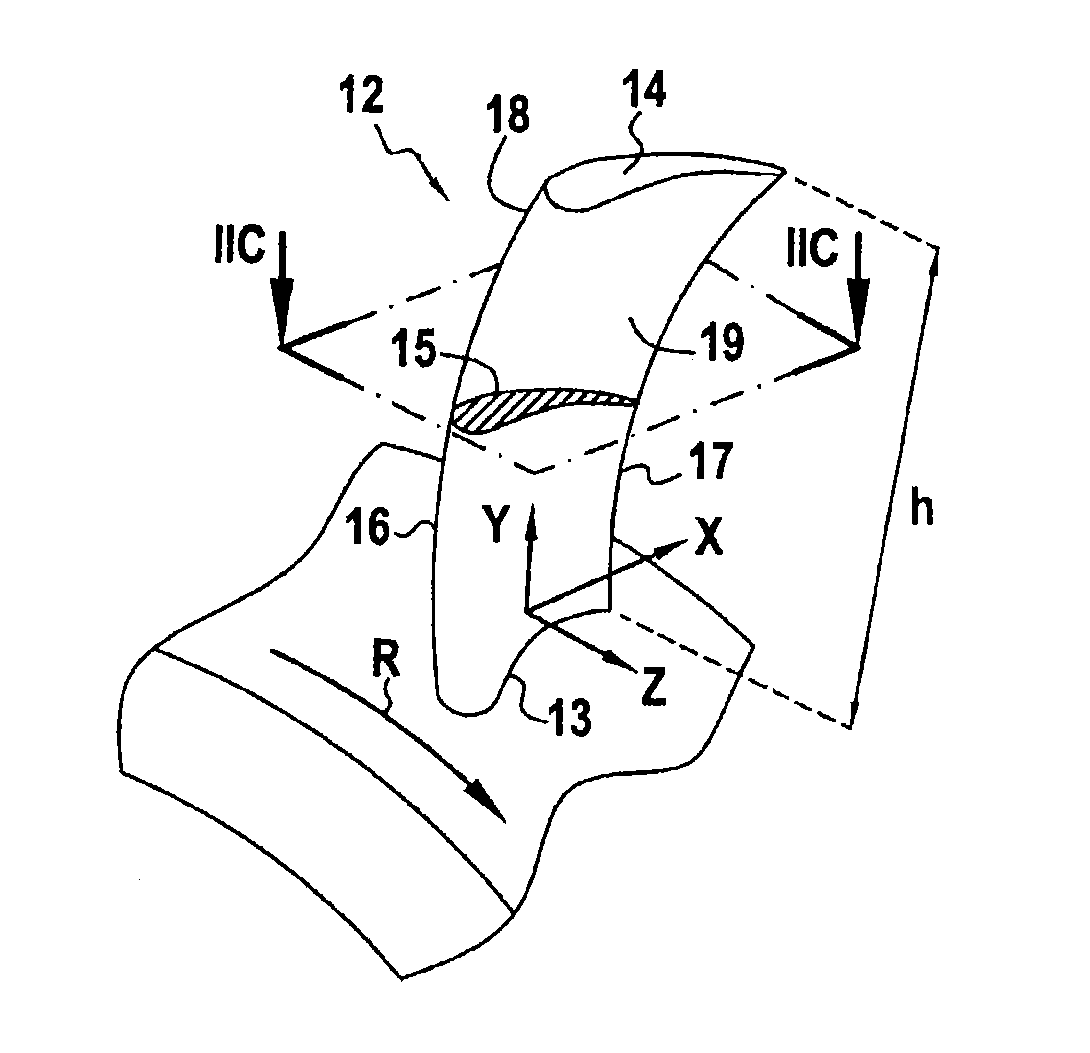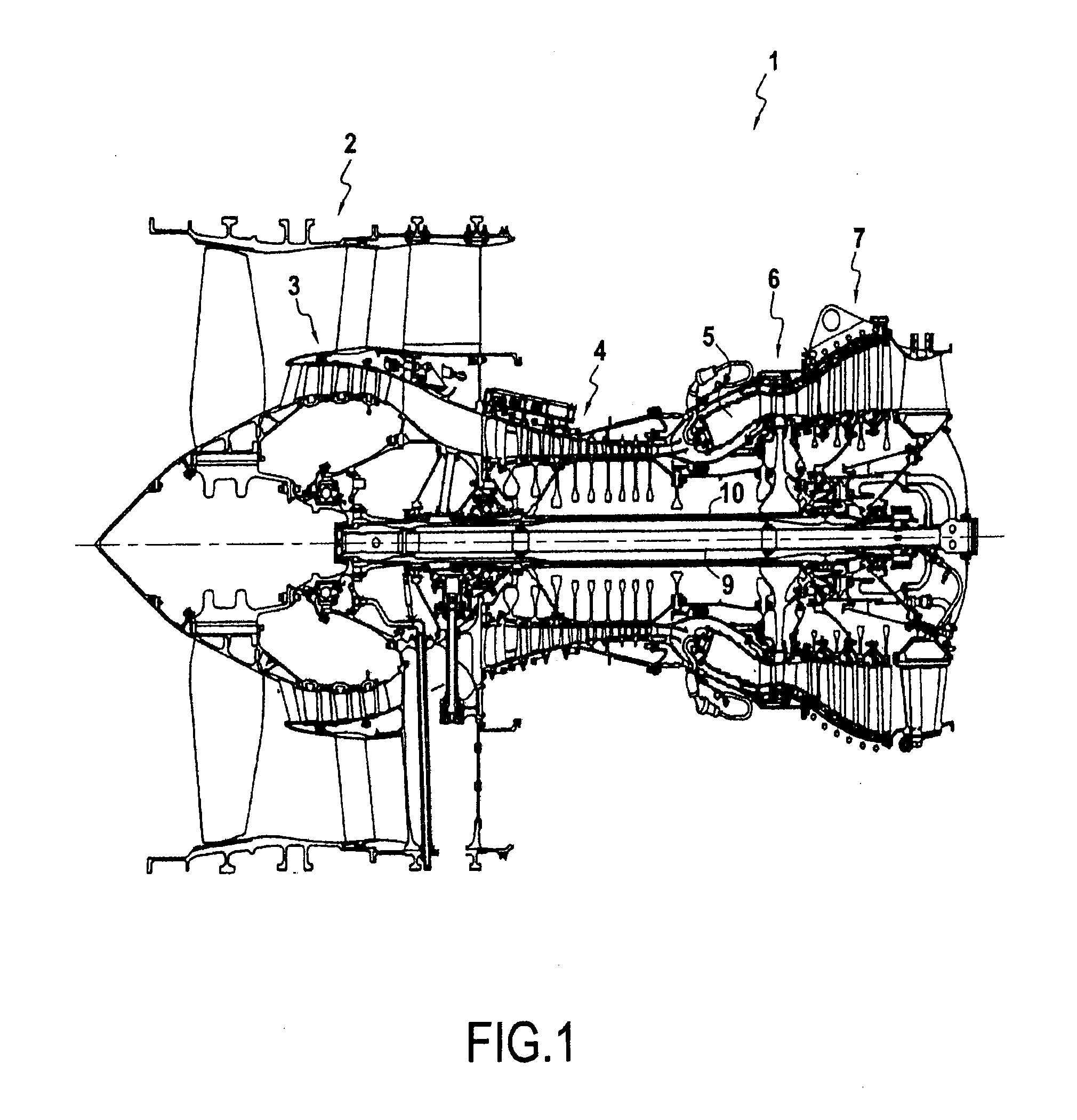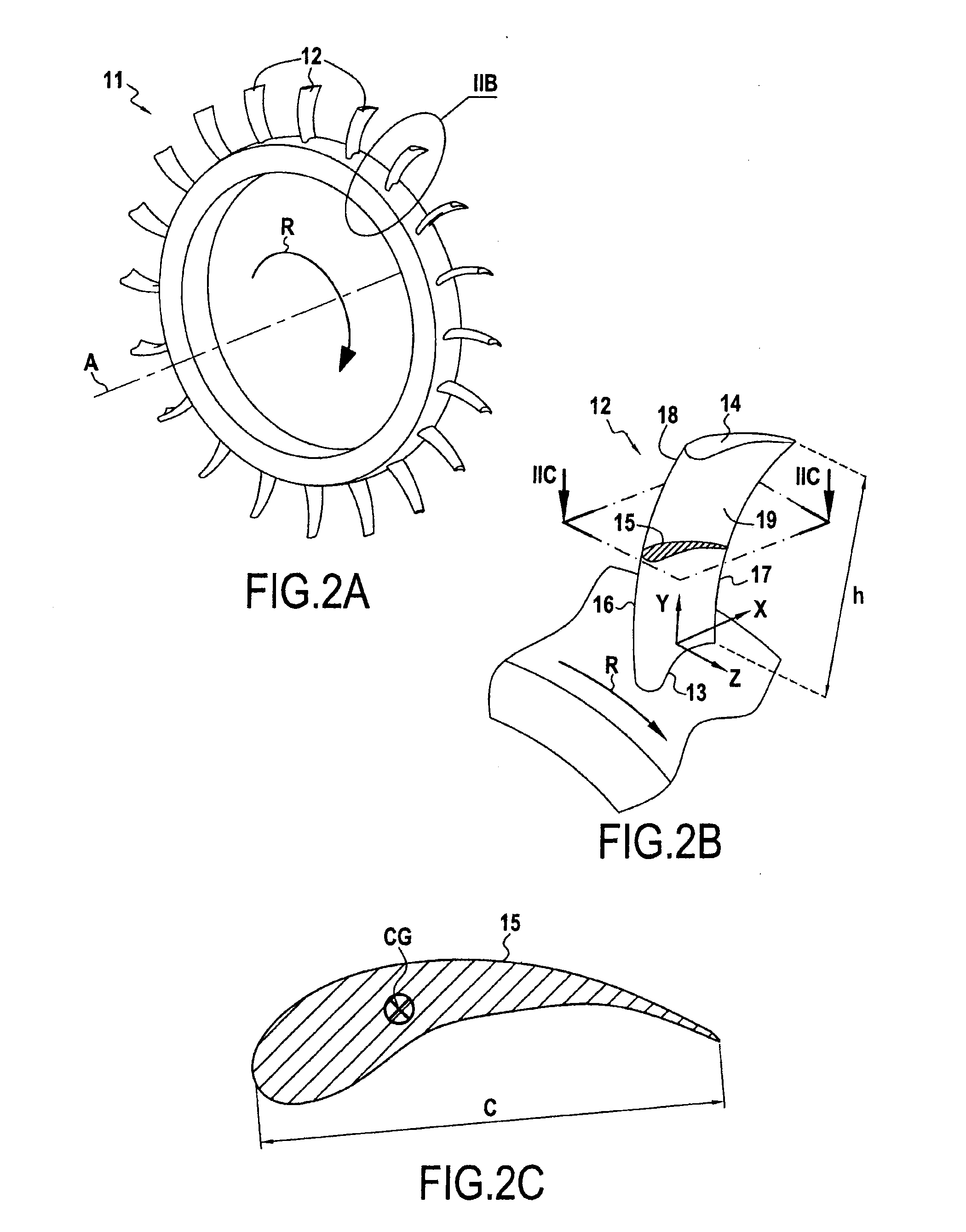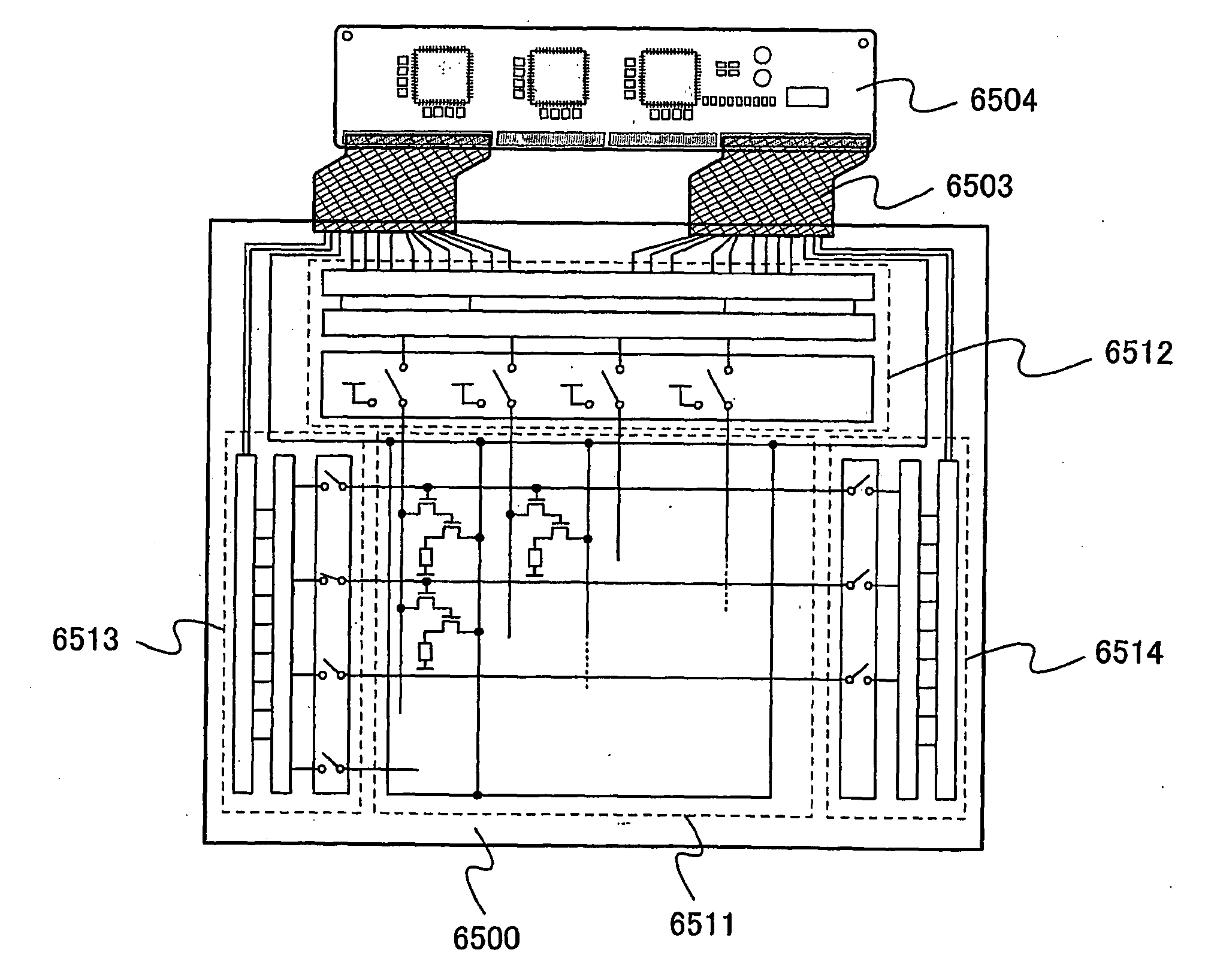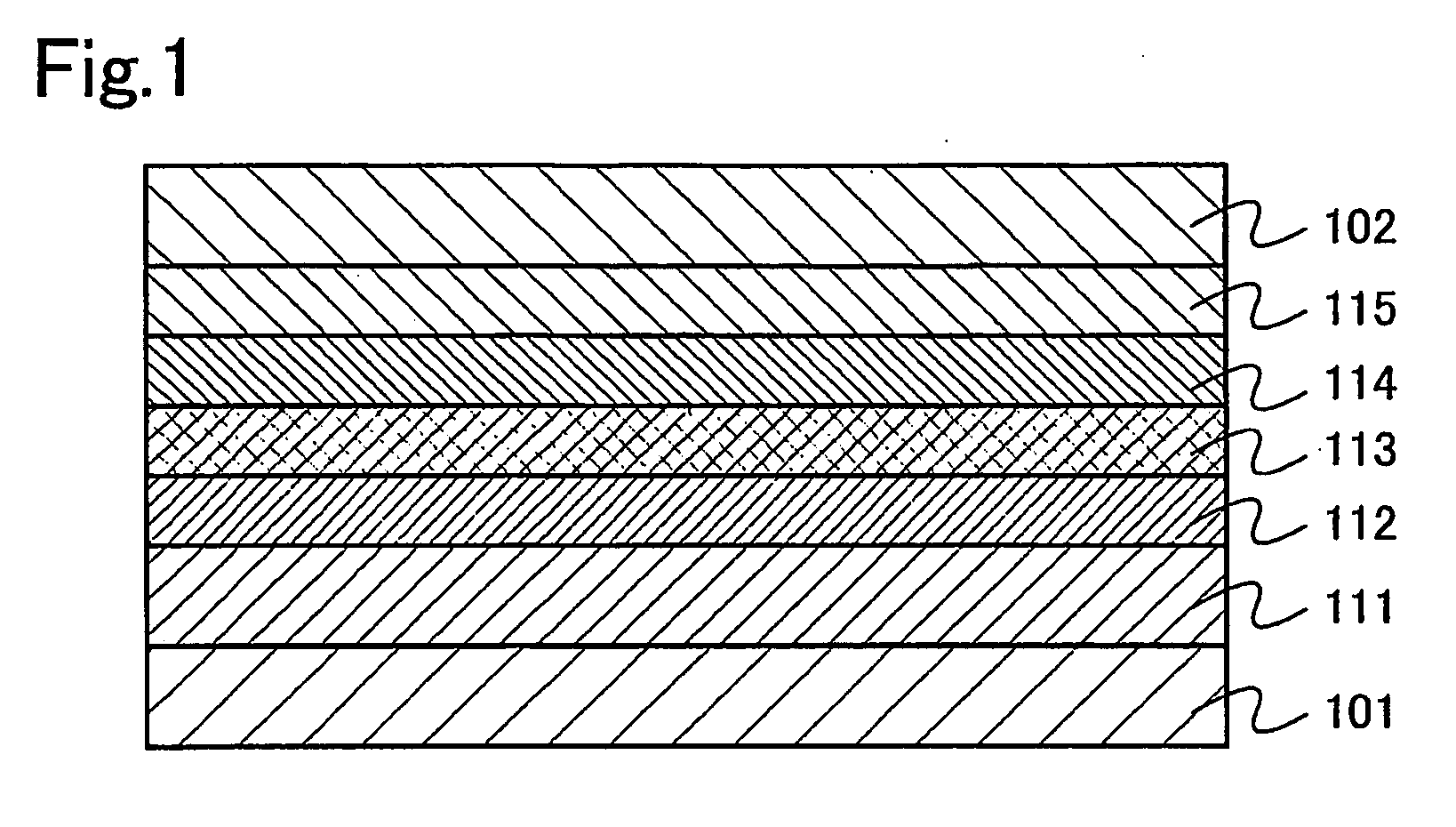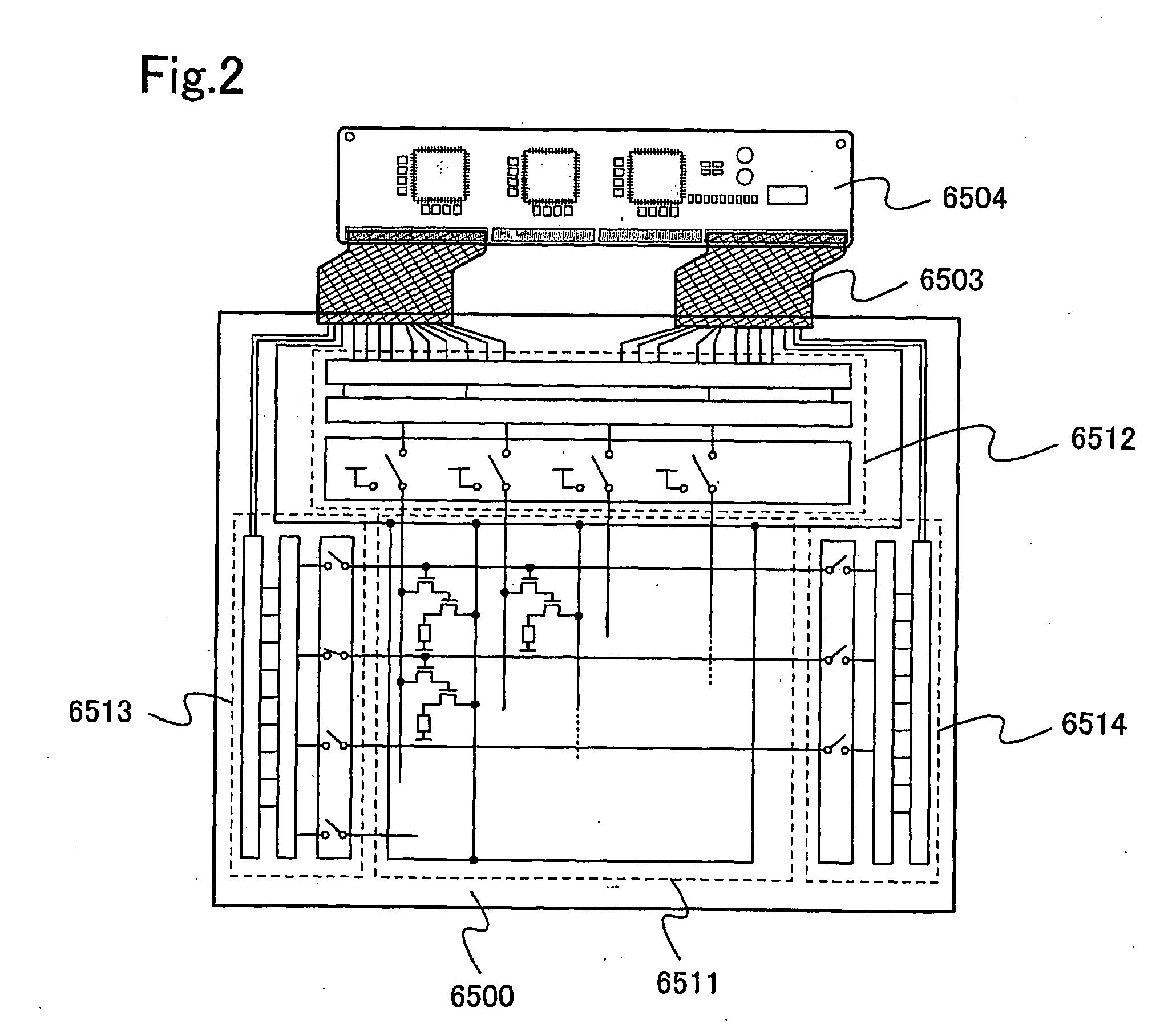Patents
Literature
698results about How to "Avoid large gaps" patented technology
Efficacy Topic
Property
Owner
Technical Advancement
Application Domain
Technology Topic
Technology Field Word
Patent Country/Region
Patent Type
Patent Status
Application Year
Inventor
Medical manipulator for use with an imaging device
InactiveUS6665554B1Easy to insertLess stressSurgical needlesVaccination/ovulation diagnosticsDegrees of freedomEngineering
A manipulator for use in medical procedures can manipulate a medical tool with one or more degrees of freedom with respect to a patient. The manipulator is particularly useful for positioning a medical tool with respect to a patient disposed inside an imaging device such as a computer tomography machine.
Owner:MICRODEXTERITY SYST
Vacuum Processing Chamber for Very Large Area Substrates
InactiveUS20080050536A1Essential productivityIncrease in sizeElectric discharge tubesChemical vapor deposition coatingNuclear engineeringLarge size
A plasma reactor for PECVD treatment of large-size substrates according to the invention comprises a vacuum process chamber as an outer chamber and at least one inner reactor with an electrode showerhead acting as RF antenna, said inner reactor again comprising a reactor bottom and a reactor top, being sealingly connected at least during treatment of substrates in the plasma reactor and separated at least during loading / unloading of the substrates. Further embodiments comprise a sealing for said reactor to / bottom and a suspender for the RF antenna / electrode showerhead.
Owner:OERLIKON SOLAR AG (TRUEBBACH)
Catheter device
ActiveUS20090093796A1Maximum pump performanceImprove performancePump componentsSurgeryDrive shaftMechanical engineering
The catheter device comprises a drive shaft connected to a motor, and a rotor mounted on the drive shaft at the distal end section. The rotor has a frame structure which is formed by a screw-like boundary frame and rotor struts extending radially inwards from the boundary frame. The rotor struts are fastened to the drive shaft by their ends opposite the boundary frame. Between the boundary frame and the drive shaft extends an elastic covering. The frame structure is made of an elastic material such that, after forced compression, the rotor unfolds automatically.
Owner:AIS AACHEN INNOVATIVE SOLUTIONS
Method of fabrication of a AL/GE bonding in a wafer packaging environment and a product produced therefrom
ActiveUS7442570B2Robust and mechanical contactHighly controllableAcceleration measurement using interia forcesSemiconductor/solid-state device detailsFoundryHermetic seal
A method of bonding of germanium to aluminum between two substrates to create a robust electrical and mechanical contact is disclosed. An aluminum-germanium bond has the following unique combination of attributes: (1) it can form a hermetic seal; (2) it can be used to create an electrically conductive path between two substrates; (3) it can be patterned so that this conduction path is localized; (4) the bond can be made with the aluminum that is available as standard foundry CMOS process. This has the significant advantage of allowing for wafer-level bonding or packaging without the addition of any additional process layers to the CMOS wafer.
Owner:INVENSENSE
Method of fabrication of ai/ge bonding in a wafer packaging environment and a product produced therefrom
ActiveUS20060208326A1RobustHighly controllableAcceleration measurement using interia forcesSemiconductor/solid-state device detailsFoundryHermetic seal
A method of bonding of germanium to aluminum between two substrates to create a robust electrical and mechanical contact is disclosed. An aluminum-germanium bond has the following unique combination of attributes: (1) it can form a hermetic seal; (2) it can be used to create an electrically conductive path between two substrates; (3) it can be patterned so that this conduction path is localized; (4) the bond can be made with the aluminum that is available as standard foundry CMOS process. This has the significant advantage of allowing for wafer-level bonding or packaging without the addition of any additional process layers to the CMOS wafer.
Owner:INVENSENSE
Catheter device
ActiveUS8439859B2Maximum pump performanceImprove performanceStarters with fluid-driven auxillary enginesHeart stimulatorsDrive shaftCatheter device
The catheter device comprises a drive shaft connected to a motor, and a rotor mounted on the drive shaft at the distal end section. The rotor has a frame structure which is formed by a screw-like boundary frame and rotor struts extending radially inwards from the boundary frame. The rotor struts are fastened to the drive shaft by their ends opposite the boundary frame. Between the boundary frame and the drive shaft extends an elastic covering. The frame structure is made of an elastic material such that, after forced compression, the rotor unfolds automatically.
Owner:AIS AACHEN INNOVATIVE SOLUTIONS
Heterojunction tunneling field effect transistors, and methods for fabricating the same
InactiveUS20070178650A1Increase currentEnhance junction currentSemiconductor/solid-state device manufacturingDiodeHeterojunctionDopant
The present invention relates to a heterojunction tunneling effect transistor (TFET), which comprises spaced apart source and drain regions with a channel region located therebetween and a gate stack located over the channel region. The drain region comprises a first semiconductor material and is doped with a first dopant species of a first conductivity type. The source region comprises a second, different semiconductor material and is doped with a second dopant species of a second, different conductivity type. The gate stack comprises at least a gate dielectric and a gate conductor. When the heterojunction TFET is an n-channel TFET, the drain region comprises n-doped silicon, while the source region comprises p-doped silicon germanium. When the heterojunction TFET is a p-channel TFET, the drain region comprises p-doped silicon, while the source region comprises n-doped silicon carbide.
Owner:IBM CORP
Organic electroluminescent device
InactiveUS20060257684A1Improve efficiencyLow efficiencyDischarge tube luminescnet screensElectroluminescent light sourcesTriplet stateElectron
An organic electroluminescence device comprising a cathode, an anode and at least one layer comprising a phosphorescent light emitting material and a host material which is sandwiched between the cathode and the anode and further comprising an electron injecting layer which is adhered to the light emitting layer and is capable of transporting electrons, wherein an ionization potential of the host material is 5.9 eV or smaller, and wherein an energy gap of the electron transporting material in the electron injecting layer is smaller than that of the host material in the light emitting layer or wherein a triplet energy of the electron transporting material in the electron injecting layer is smaller than that of the host material in the light emitting layer. It emits phosphorescent light with enhanced efficiency because it comprises a light emitting layer and an electron injecting layer both satisfying specified condition and employs a light emitting layer capable of electron transporting.
Owner:IDEMITSU KOSAN CO LTD
Electromechanical generator for converting mechanical vibrational energy into electrical energy
ActiveUS7586220B2Quality improvementSmall currentReciprocating/oscillating/vibrating magnetic circuit partsMachines/enginesFixed positionVibrational energy
An electromechanical generator for converting mechanical vibrational energy into electrical energy, the electromechanical generator comprising a housing, an electrically conductive coil assembly fixedly mounted in the housing, the coil assembly having radially inner and outer sides, and upper and lower edges, thereof, a mount for the coil assembly extending inwardly of the radially inner side for fixing the coil assembly in a fixed position in the housing, a magnetic core assembly movably mounted in the housing for linear vibrational motion along an axis, and a biasing device mounted between the housing and the magnetic core assembly to bias the magnetic core assembly in opposed directions along the axis towards a central position, wherein the magnetic core assembly encloses the electrically conductive coil assembly on the radially outer side and on the upper and lower edges, and on a part of the radially inner side, the magnetic core assembly having a gap on a radially inner portion thereof through which the mount extends, and the radially inner portion including two opposed magnets spaced along the axis.
Owner:HITACHI RAIL LTD +1
Data Link Layer Tunneling Technique for High-Speed Data in a Noisy Wireless Environment
InactiveUS20080235553A1Improve throughputAvoid large gapsError prevention/detection by using return channelFrequency-division multiplex detailsCommunications systemData link layer
In accordance with the invention, a data link layer tunneling technique is disclosed for improving the throughput of high speed data in noisy wireless environments. The method for recovering lost frames transmitted between a packet sending unit and a packet receiving unit in a data communications system, and generally comprises the steps of: (a) identifying a failure to successfully receive a missed frame at the packet receiving unit; (b) establishing a logical tunnel channel at the packet receiving unit to acknowledge the next successfully received frame; (c) starting a first timer at the packet receiving unit; (c) upon receiving a tunnel establishment request from the packet receiving unit, the packet sending unit resending the missed frame on the logical tunnel channel and starting a second timer; and (d) the packet sending unit resending the missed frame a specified number of times until receiving an acknowledgement from the packet receiving unit.
Owner:AT&T MOBILITY II LLC
Chemical vapor deposition apparatus and method
InactiveUS20060046059A1High densityGreat and uniform weightLayered productsChemical vapor deposition coatingCarbon compositesCircular disc
Apparatus such as a furnace muffle (11) for use in a CVI / CVD furnace. The apparatus includes a bottom (12), a top (13), and an outer wall (3) defining an interior space (1) in the apparatus, and a passive heat distribution element (7, 9) located within the interior space (1) and apart from the outer wall (3). Preferably, the bottom (12) and top (12) include perforated plates and the outer wall (3) is cylindrical in shape and all are made of graphite or carbon-carbon composite material and the passive heat distribution element (7, 9) is cylindrical in shape and includes graphite or carbon-carbon composite discs having no spacers therebetween. Also, a method for densifying a porous carbon preform (5), which method includes the steps of: (a) providing the apparatus (11); (b) charging the apparatus (11) with a plurality of stacks of annular porous carbon preforms (5), the preforms being separated from one another by spacers (15); (c) locating the charged apparatus (11) in a furnace at a temperature in the range of 950-1100° C. and a pressure in the range of 5-40 torr; and (d) circulating a natural gas reactant blended with up to 15% propane through the apparatus for 150-900 hours. Also, a batch of carbon-carbon composite preforms made by the method, wherein the density of the batch of preforms is at least 0.5 g / cc higher than the density of a batch of preforms made by an otherwise identical process in which the apparatus does not contain a passive heat distribution element located within its interior. The preforms may be configured as aircraft landing system brake discs or racing car brake discs.
Owner:HONEYWELL INT INC
Pivotable and sealable cap assembly for opening in a large container
InactiveUS6053348AAvoid large gapsFunction increaseTank vehiclesClosure using stoppersEngineeringMechanical engineering
A cap unit (10) for a container (38) has a cap (20) and an annular skirt (12). The skirt (12) is mounted in the container (38) defining an aperture, the cap (20) being movable between a first position and a second position. In the first position the cap (20) covers the aperture and seals it, and in the second position the cap uncovers the aperture, the cap (20) being journalled pivotably around an axis (26) perpendicular to the plan defined by the aperture and placed outside the aperture so that the cap may swing between the first position and the second position. Furthermore, the cap (20) and the skirt (12) have respective claw-formed catching means (14, 16, 18) which are adapted to fix the cap (20) in relation to the skirt (12) and allow the cap (20) to swing from a first to a second position. The cap unit (10) has driving means (34) for production of swinging of the cap (20) and the cap unit (10) has an inflatable sealing ring (22) mounted in the cap (20) for sealing against the upper surface of the skirt (12) when the cap (20) is in its first position, or alternatively mounted in the skirt (12) for sealing against the opposite surface of the cap (20).
Owner:MORCH LEO
Prosthesis shaft with active air release
The invention relates to a cup-shaped prosthesis shaft consisting of an air-tight and essentially rigid material comprising a sealing means for protecting against the entry of air from the proximal open side, said shaft being used in prostheses for replacing limbs. The inside of the shaft is provided with at least one pump device such that relative movements between the stump and the shaft during the use of the prosthesis pump air out of the inside of the prosthesis shaft via flow channels and monoway valves to the outside of the prosthesis shaft. The pump action is obtained by varying the volume of a compartment formed from flexible or elastic films, said compartment being arranged adjacently to the strump in the main extension thereof. The compartment is either fixed to the inner wall of a rigid prosthesis shaft, or built into the wall of a flexible and elastic removable stump coating which is arranged, as part of the prosthesis shaft, between the stump and a rigid frame.
Owner:OTTO BOCK HEALTHCARE IP GMBH & CO KG
Adhesive sheet for artificial nail
An adhesive sheet for an artificial nail comprises a releasable protective film having, at a tip end side of a bare nail to which a double-sided adhesive sheet member is attached, a peeling tongue piece having a width smaller than the width of the double-sided adhesive sheet member and projecting outward from the double-sided adhesive sheet member, wherein the double-sided adhesive sheet member and the releasable protective film are chamfered in a convex R shape from a base end of the peeling tongue piece toward both sides in a width direction.
Owner:MURAKI
Continuous separator plate for use with a disk drive
InactiveUS6930857B1Improve seismic performanceAvoid large gapsUndesired vibrations/sounds insulation/absorptionRecord information storageMechanical engineering
Disclosed is a continuous separator plate for use with a disk drive. The continuous separator plate includes a substantially circular continuous outer circumference and a substantially circular continuous inner circumference. A continuous radial portion may be defined between the substantially circular continuous outer and inner circumferences. The continuous radial portion is to be disposed between at least one disk of the disk drive and either the cover or the base of the disk drive, respectively. Further, the continuous radial portion includes a disk side that faces the at least one disk and an opposite side that faces either the cover or the base, respectively. The continuous separator plate further includes a head stack assembly (HSA) accommodation section to accommodate an HSA.
Owner:WESTERN DIGITAL TECH INC
Diaphragm activated micro-electromechanical switch
InactiveUS20060017533A1Low insertion lossImprove isolationElectrostatic/electro-adhesion relaysDecorative surface effectsElectricityEngineering
A micro-electromechanical (MEM) RF switch provided with a deflectable membrane (60) activates a switch contact or plunger (40). The membrane incorporates interdigitated metal electrodes (70) which cause a stress gradient in the membrane when activated by way of a DC electric field. The stress gradient results in a predictable bending or displacement of the membrane (60), and is used to mechanically displace the switch contact (30). An RF gap area (25) located within the cavity (250) is totally segregated from the gaps (71) between the interdigitated metal electrodes (70). The membrane is electrostatically displaced in two opposing directions, thereby aiding to activate and deactivate the switch. The micro-electromechanical switch includes: a cavity (250); at least one conductive path (20) integral to a first surface bordering the cavity; a flexible membrane (60) parallel to the first surface bordering the cavity (250), the flexible membrane (60) having a plurality of actuating electrodes (70); and a plunger (40) attached to the flexible membrane (60) in a direction away from the actuating electrodes (70), the plunger (40) having a conductive surface that makes electric contact with the conductive paths, opening and closing the switch.
Owner:GLOBALFOUNDRIES US INC
Nitride semiconductor light-emitting device and optical apparatus including the same
InactiveUS6924512B2Improve luminous efficiencyHigh crystallinityOptical wave guidanceLaser detailsLight emitting deviceQuantum
A nitride semiconductor light emitting device includes an emission layer (106) having a multiple quantum well structure where a plurality of quantum well layers and a plurality of barrier layers are alternately stacked. The quantum well layer is formed of XN1-x-y-zAsxPySbz (0≦x≦0.15, 0≦y≦0.2, 0≦z≦0.05, x+y+z>0) where X represents one or more kinds of group III elements. The barrier layer is formed of a nitride semiconductor layer containing at least Al.
Owner:SHARP KK
Synchronous moving double-axis hinge
InactiveUS20150267450A1Increase frictionImprove impact performanceDigital data processing detailsWing accessoriesDrive shaftEngineering
A synchronous moving double-axis hinge comprises a support member, a first transmitting assembly and a second transmitting assembly mounted onto the support member, and a transmission element installed on the support member. The first transmitting assembly includes a first transmission shaft and a first helical gear. The second transmitting assembly includes a second transmission shaft and a second helical gear. The transmission element includes a hinge pin and a driven helical gear. The driven helical gear has a first engaging zone to engage with the first helical gear and a second engaging zone to engage with the second helical gear. The hinge pin has a third extension axis crossing with a first extension axis of the first transmission shaft and a second extension axis of the second transmission shaft. Thus the crossed helical gears can effectively amplify the contact among the gear teeth to make transmission steadier.
Owner:SINHER TECH INC
Thermally-assisted perpendicular magnetic recording system with write pole surrounding an optical channel and having recessed pole tip
ActiveUS20080068748A1Minimizing optical power lossAvoid accidental deletionRecord information storageRecording/reproducing/erasing methodsEngineeringWavelength
A thermally-assisted perpendicular magnetic recording head and system has a head carrier that supports an optical channel for the transmission of radiation to the recording layer, a write pole for directing a magnetic field to the recording layer, and an electrical coil for inducing the magnetic field from the write pole. The optical channel has a radiation exit face with an aperture at the recording-layer-facing surface of the head carrier. The write pole has a pole tip with an end face that is recessed from the recording-layer-facing surface. The write pole tip is tapered down to the end faces. The pole tip taper and the recession of the end face concentrates the write field at the middle of the perpendicular magnetic recording layer where the radiation from the optical channel is incident. The characteristic dimension of the aperture and the spacing between the aperture and the recording layer are both less than the wavelength of the radiation. The radiation source may be a laser diode mounted to the head carrier.
Owner:WESTERN DIGITAL TECH INC
Wiring board and method of manufacturing the same
ActiveUS20100147574A1Low costImprove reliabilitySemiconductor/solid-state device detailsPrinted circuit aspectsElectrical and Electronics engineeringPackage on package
A wiring board (package) has a structure in which multiple wiring layers are stacked one on top of another with insulating layers each interposed between corresponding two of the wiring layers, and the wiring layers are connected to each other through vias formed in the insulating layers. In the peripheral region around the chip mounting area of the outermost insulating layer on one of both surfaces of the board, a pad is formed in a bump shape to cover a surface of a portion of the outermost insulating layer, the portion being formed to protrude, and a pad whose surface is exposed from the insulating layer is arranged in the chip mounting area. A chip is flip-chip bonded to the pad of the package, and another package is bonded to the bump shaped pad in a peripheral region around the chip (package-on-package bonding).
Owner:SHINKO ELECTRIC IND CO LTD
Carbazole Derivative, Light-Emitting Element Material, Light-Emitting Element, and Light-Emitting Device
InactiveUS20100069647A1High color purityImprove electrochemical stabilityOrganic chemistrySolid-state devicesWide bandLight emitting device
An object is to provide a carbazole derivative which has a wide band gap and with which excellent blue color purity is obtained. In addition, another object is to provide highly reliable light-emitting elements, light-emitting devices, lighting devices, and electronic devices in which the carbazole derivative is used. Carbazole derivatives represented by the general formulas (1), (P1), and (M1) are provided. Further, light-emitting elements, light-emitting devices, and electronic devices which are formed using the carbazole derivative represented any of the general formulas (1), (P1), and (M1) are provided.
Owner:SEMICON ENERGY LAB CO LTD
Heterojunction tunneling field effect transistors, and methods for fabricating the same
InactiveUS20080050881A1Enhance junction currentEnhancing tunneling currentSemiconductor/solid-state device manufacturingDiodeHeterojunctionDopant
The present invention relates to a heterojunction tunneling effect transistor (TFET), which comprises spaced apart source and drain regions with a channel region located therebetween and a gate stack located over the channel region. The drain region comprises a first semiconductor material and is doped with a first dopant species of a first conductivity type. The source region comprises a second, different semiconductor material and is doped with a second dopant species of a second, different conductivity type. The gate stack comprises at least a gate dielectric and a gate conductor. When the heterojunction TFET is an n-channel TFET, the drain region comprises n-doped silicon, while the source region comprises p-doped silicon germanium. When the heterojunction TFET is a p-channel TFET, the drain region comprises p-doped silicon, while the source region comprises n-doped silicon carbide.
Owner:INT BUSINESS MASCH CORP
Washing machine
InactiveUS6516638B1Prolong lifeDrums is largePortable framesOther washing machinesEngineeringMechanical engineering
Owner:TITAN WASHING MACHINE
Organic semiconductor device
InactiveUS20060054883A1Low working voltageAvoid large gapsTransistorSolid-state devicesCharge carrierOrganic semiconductor
The present invention provides an organic semiconductor device comprising an organic semiconductor layer having good charge carrier transport property, wherein a carrier injection to the organic semiconductor layer is easy. The above problem is solved by an organic semiconductor device comprising a first electrode and a second electrode facing to each other, and an organic semiconductor layer provided in between the first electrode and the second electrode, wherein a charge carrier injection promoting layer is formed in between the organic semiconductor layer and at least one electrode of the first electrode and the second electrode.
Owner:DAI NIPPON PRINTING CO LTD
Blood exchange dialysis method and apparatus
InactiveUS20080045877A1Low costIncrease blood flowOther blood circulation devicesDialysis systemsRegimenProtein composition
A method and apparatus for replacement of renal function by periodically removing a substantial volume of patient's blood and simultaneously replacing it with the reconstituted blood. Reconstituted blood consists of the patient's own condensed blood cells and proteins diluted with the sterile physiologic solution. As a result, small molecules and excess water are periodically removed and discarded. Blood cells and proteins are safely stored to be used at the next therapy session.
Owner:G&L CONSULTING
Device for protecting an electric and/or electronic component arranged on a carrier substrate against electrostatic discharges
InactiveUS20020151200A1Low production costReduce discharge voltagePrinted circuit assemblingFinal product manufactureOvervoltageContact element
The proposal relates to a device for protecting an electrical and / or electronic component, arranged on a carrier substrate, from electrostatic discharges, an overvoltage occurring in the case of discharge at a carrier-substrate contact element connected to the component being diverted to a ground connection, bypassing the component. It is proposed that the protective device include a first electroconductive structure conductively connected to the jeopardized contact element, and a second electroconductive structure arranged adjacent to the first structure on the carrier substrate and conductively connected to the ground connection. Mutually facing sections of the electroconductive structures are set apart spatially from one another by a defined gap in such a way that an overvoltage transmitted to the contact element is transferred by a spark discharge in the gap from the section of the first electroconductive structure to the section of the second electroconductive structure, and is diverted to the ground connection.
Owner:ROBERT BOSCH GMBH
Plasma procesor and plasma processing method
InactiveUS8056503B2Avoid accidental dischargeImprove productivityElectric discharge tubesSemiconductor/solid-state device manufacturingEngineeringElectric potential energy
An etching chamber 1 incorporates a focus ring 9 so as to surround a semiconductor wafer W provided on a lower electrode 4. The plasma processor is provided with an electric potential control DC power supply 33 to control the electric potential of this focus ring 9, and so constituted that the lower electrode 4 is supplied with a DC voltage of, e.g., −400 to −600 V to control the electric potential of the focus ring 9. This constitution prevents surface arcing from developing along the surface of a substrate to be processed.
Owner:TOKYO ELECTRON LTD
Non-contact optical fiber connector component
InactiveUS20130163930A1Eliminate transmission lossEnhanced couplingCoupling light guidesMetal working apparatusFiberEngineering
An optical fiber connector component that is useful for joining and connecting fiber cables, particularly in the field. A joinder component includes a fiber ferrule coaxially housing a short section of optical fiber with a rearward flanged sleeve that allows the fiber to extend through it. Rearwardly the flanged sleeve extends into a connector body where a fusion splice of the fiber section to the main fiber cable is hidden. Forwardly, the fiber facet and ferrule have anti-reflection coatings and are configured so that the fiber has an output facet recessed slightly relative to the forward polished end surface of the ferrule so that when two ferrule end surfaces are brought together in an adapter, respective fiber facets are slightly spaced apart thereby avoiding wear on fiber facets due to physical contact, yet having good optical communication.
Owner:ARRAYED FIBEROPTICS CORP
Turbomachine rotor blade
ActiveUS20150118059A1Reduce riskControl interferencePropellersEngine manufactureEngineeringDistal segment
A turbomachine rotor blade including a blade root and a blade tip spaced apart by a blade height, including at least one intermediate segment between the blade root and the blade tip that presents forward sweep over at least 50% of the blade height, and a distal segment with backward sweep between the intermediate segment and the blade tip, the distal segment also presenting a positive tangential angle of inclination.
Owner:SN DETUDE & DE CONSTR DE MOTEURS DAVIATION S N E C M A
Carbazole derivative, and light emitting element material, light emitting element, and electronic appliance obtained using the same
ActiveUS20090058261A1Easy to trapEnhancing recombinationOrganic chemistryDischarge tube luminescnet screensAntioxidative responseAryl
An object is to provide a carbazole derivative that is useful as a raw material in manufacturing a light emitting element material having resistance to repetition of an oxidation reaction. The carbazole derivative is represented by General Formula (1) in the following. In General Formula (1), R1 represents any one selected from an alkyl group having 1 to 4 carbon atoms such as methyl, ethyl, and tert-butyl, and an aryl group having 1 to 12 carbon atoms such as phenyl, biphenyl, and naphthyl.
Owner:SEMICON ENERGY LAB CO LTD
Features
- R&D
- Intellectual Property
- Life Sciences
- Materials
- Tech Scout
Why Patsnap Eureka
- Unparalleled Data Quality
- Higher Quality Content
- 60% Fewer Hallucinations
Social media
Patsnap Eureka Blog
Learn More Browse by: Latest US Patents, China's latest patents, Technical Efficacy Thesaurus, Application Domain, Technology Topic, Popular Technical Reports.
© 2025 PatSnap. All rights reserved.Legal|Privacy policy|Modern Slavery Act Transparency Statement|Sitemap|About US| Contact US: help@patsnap.com
